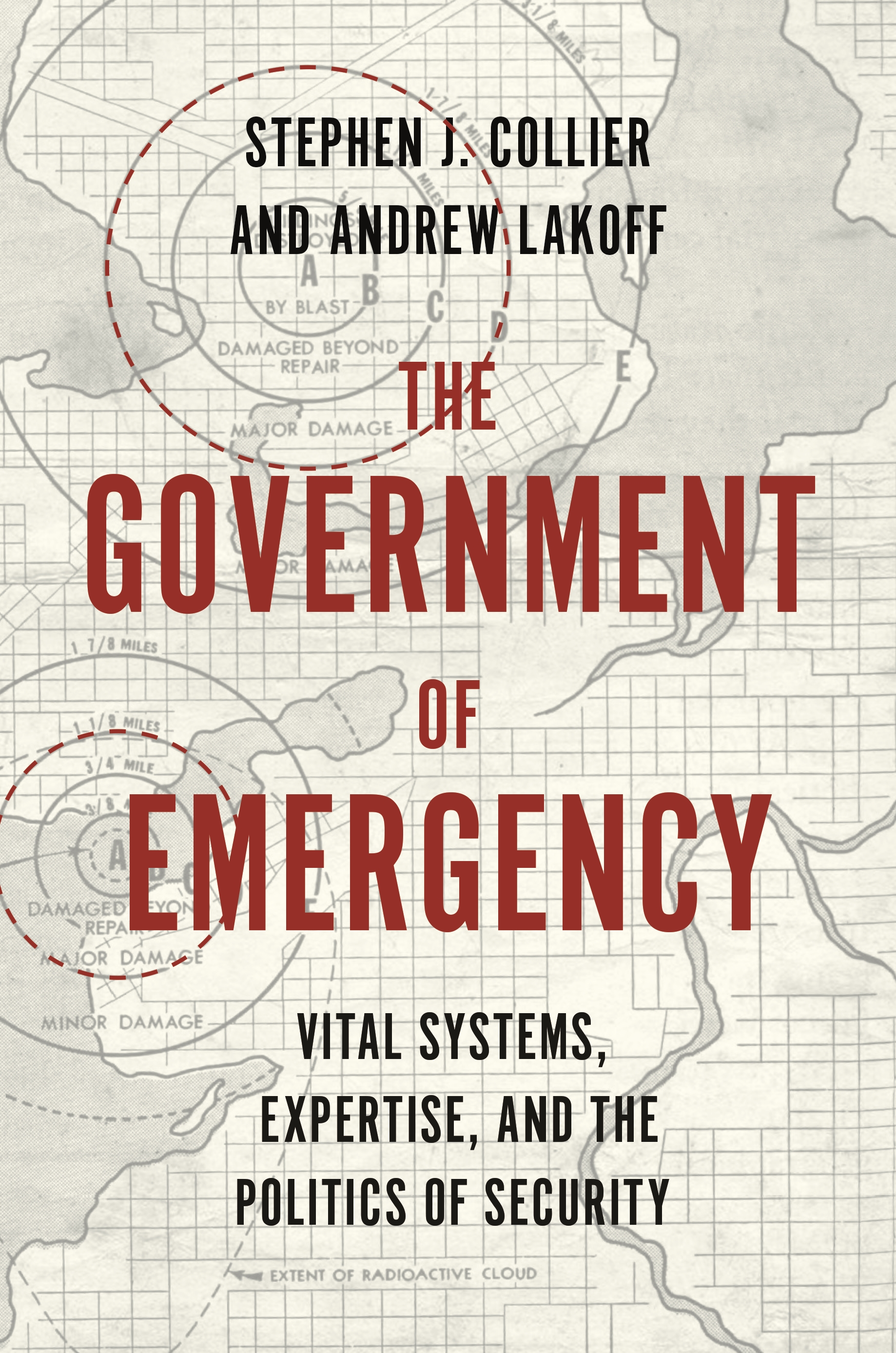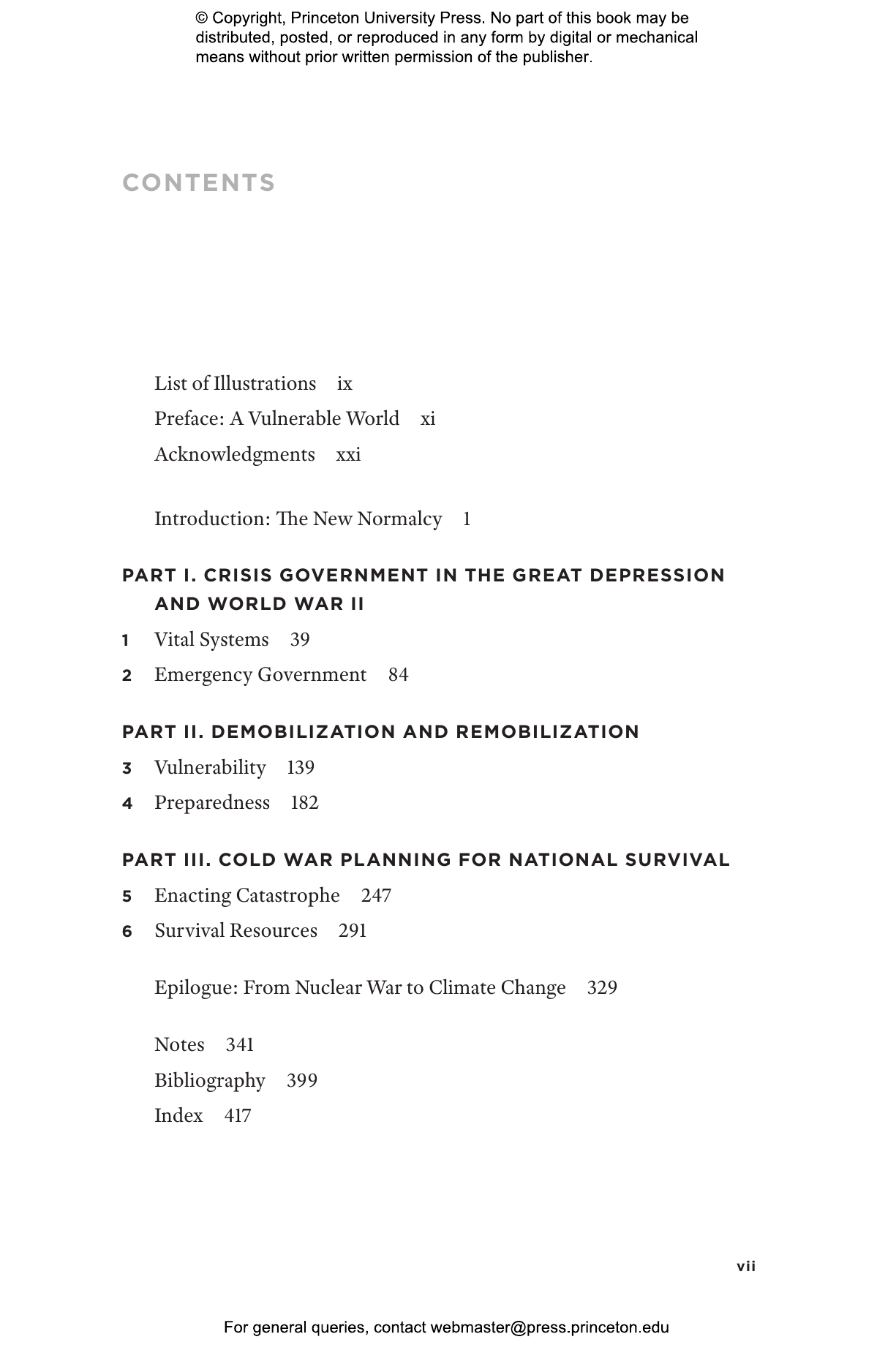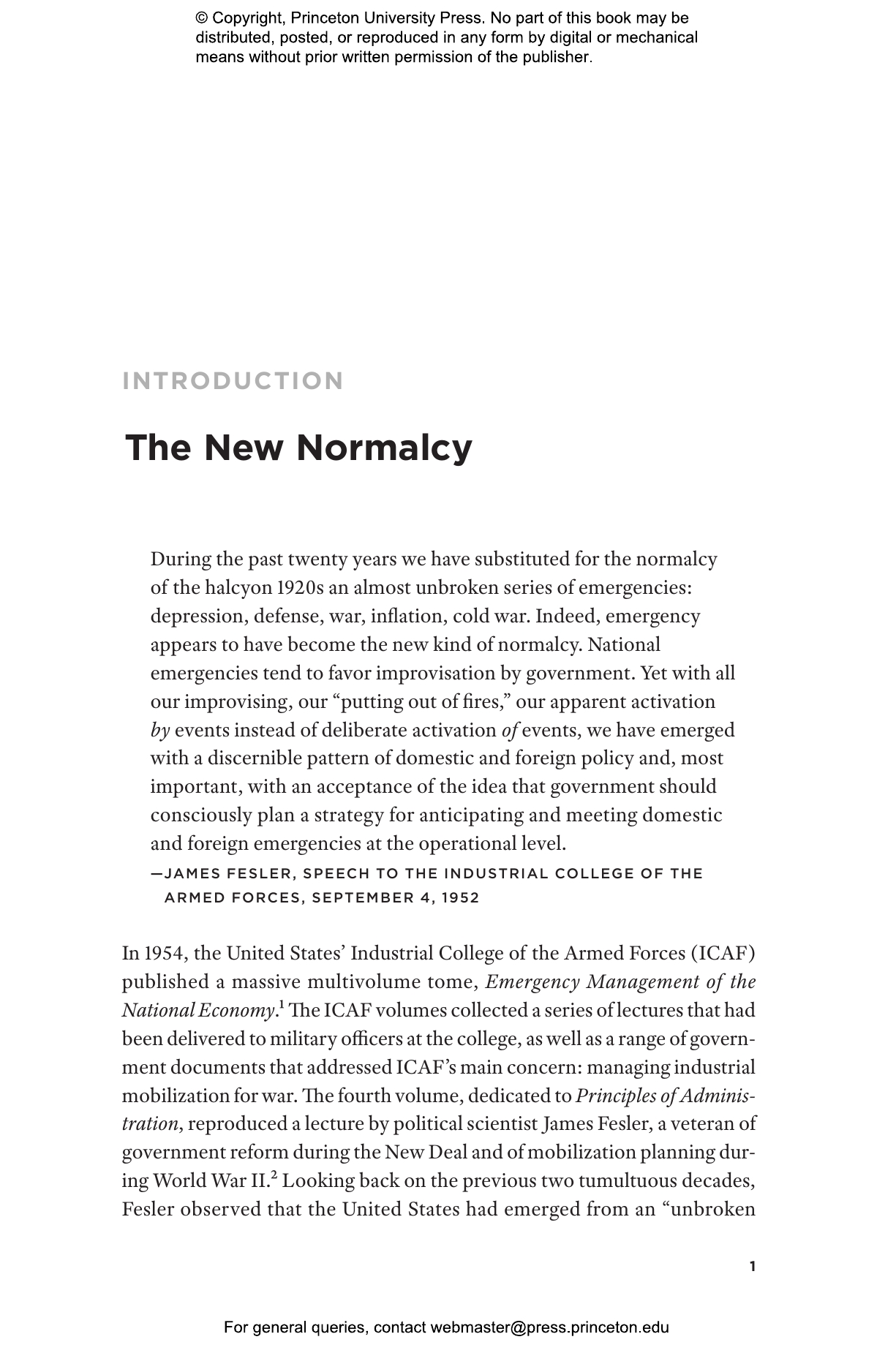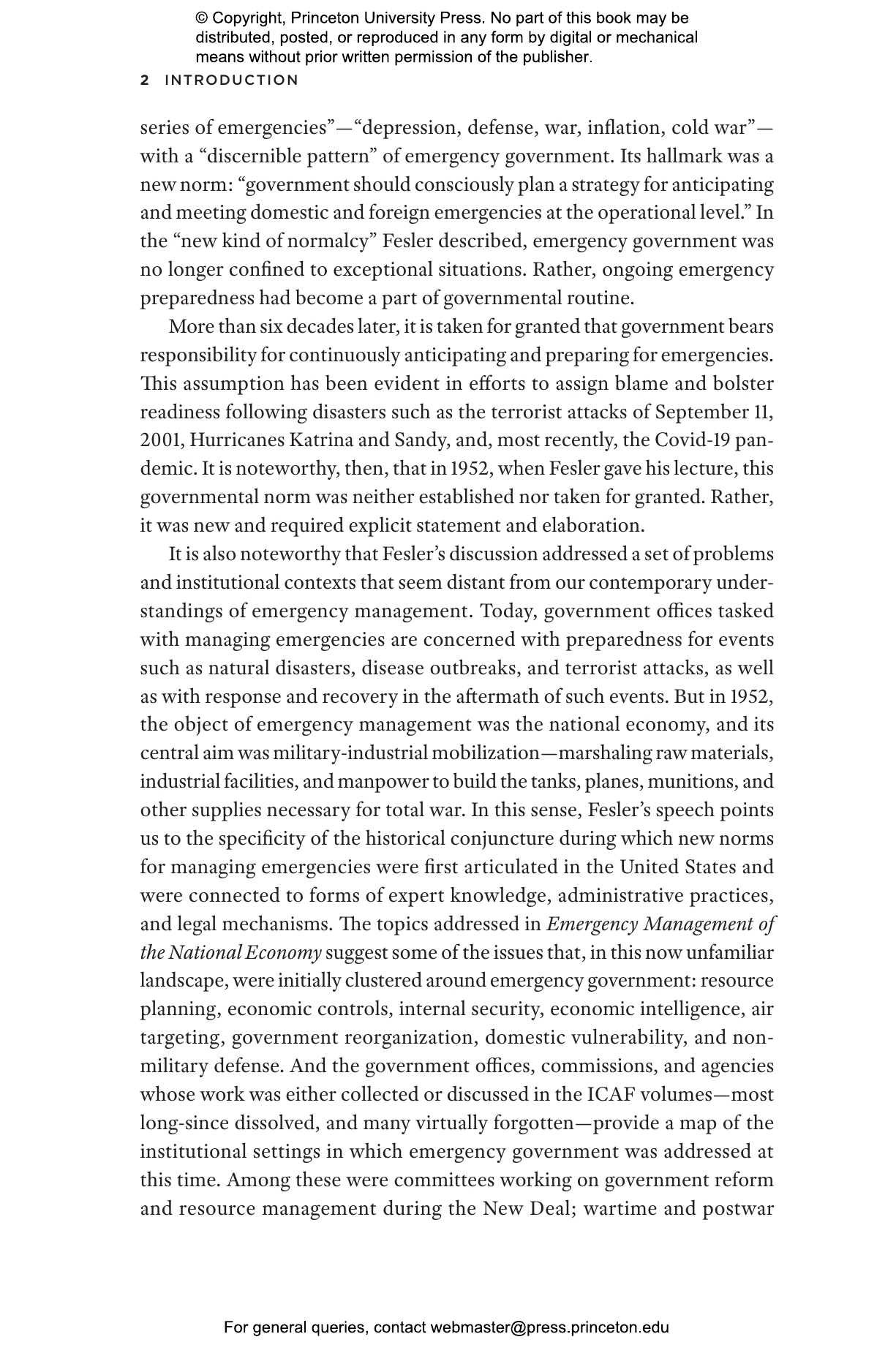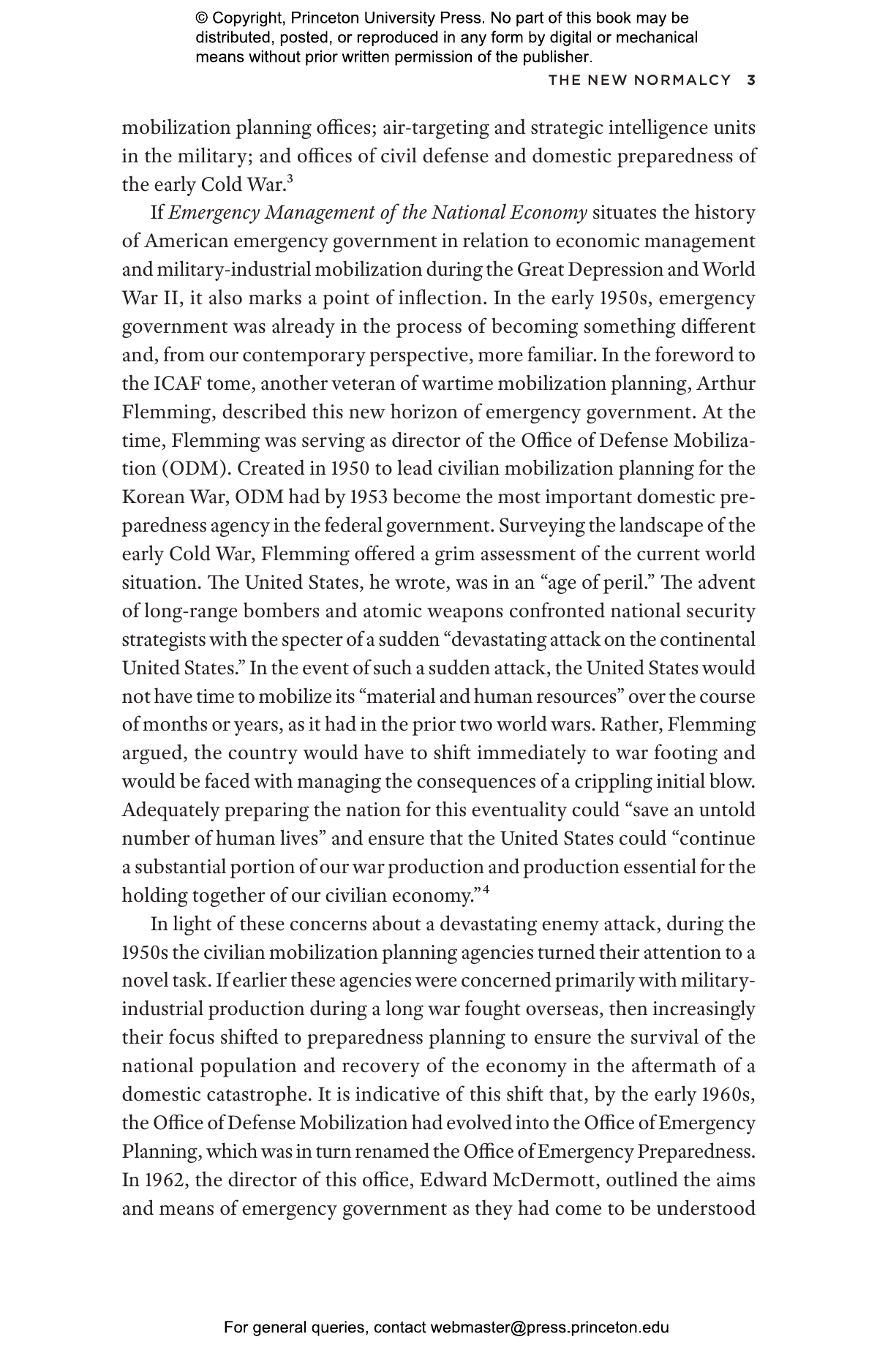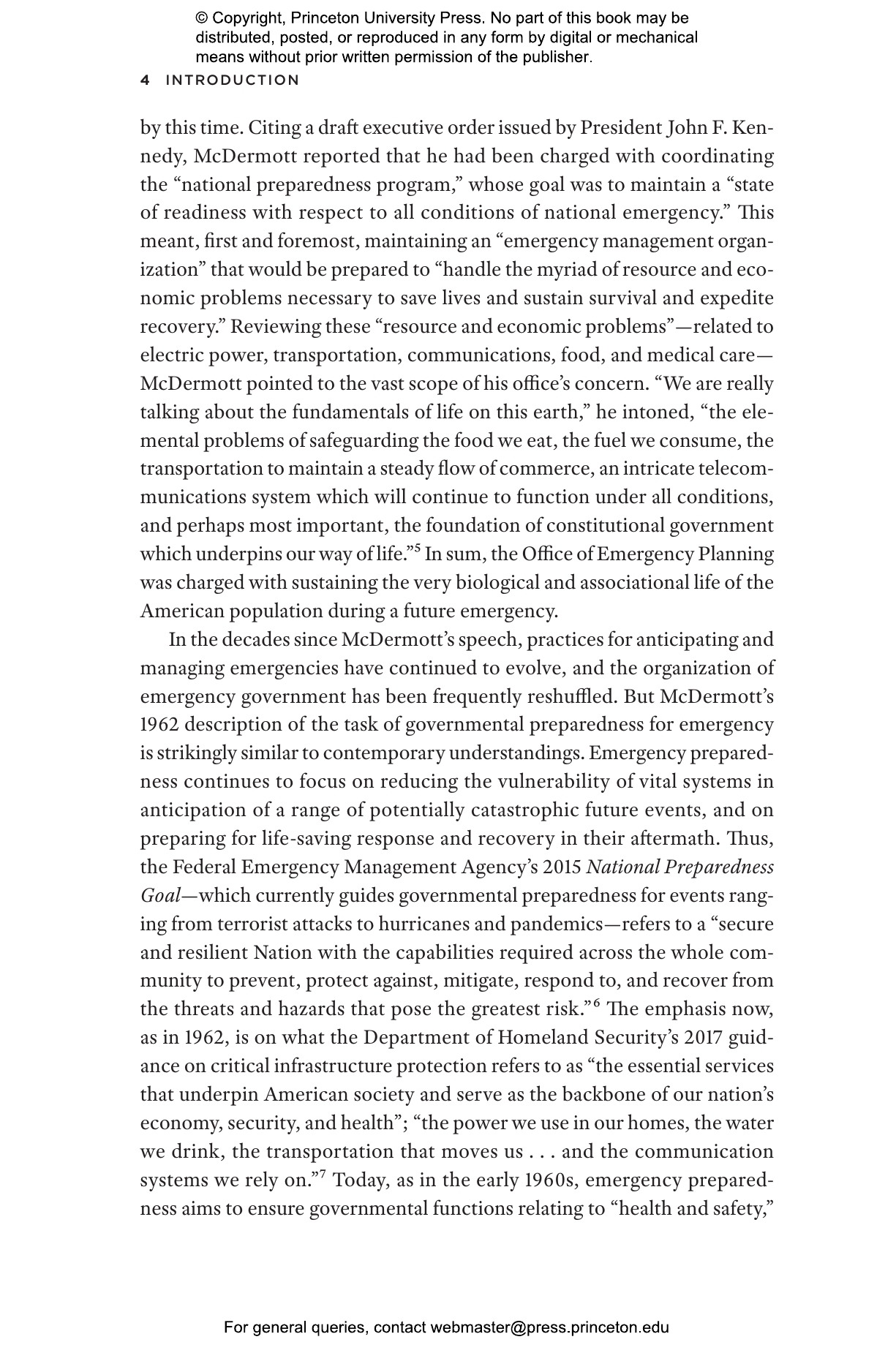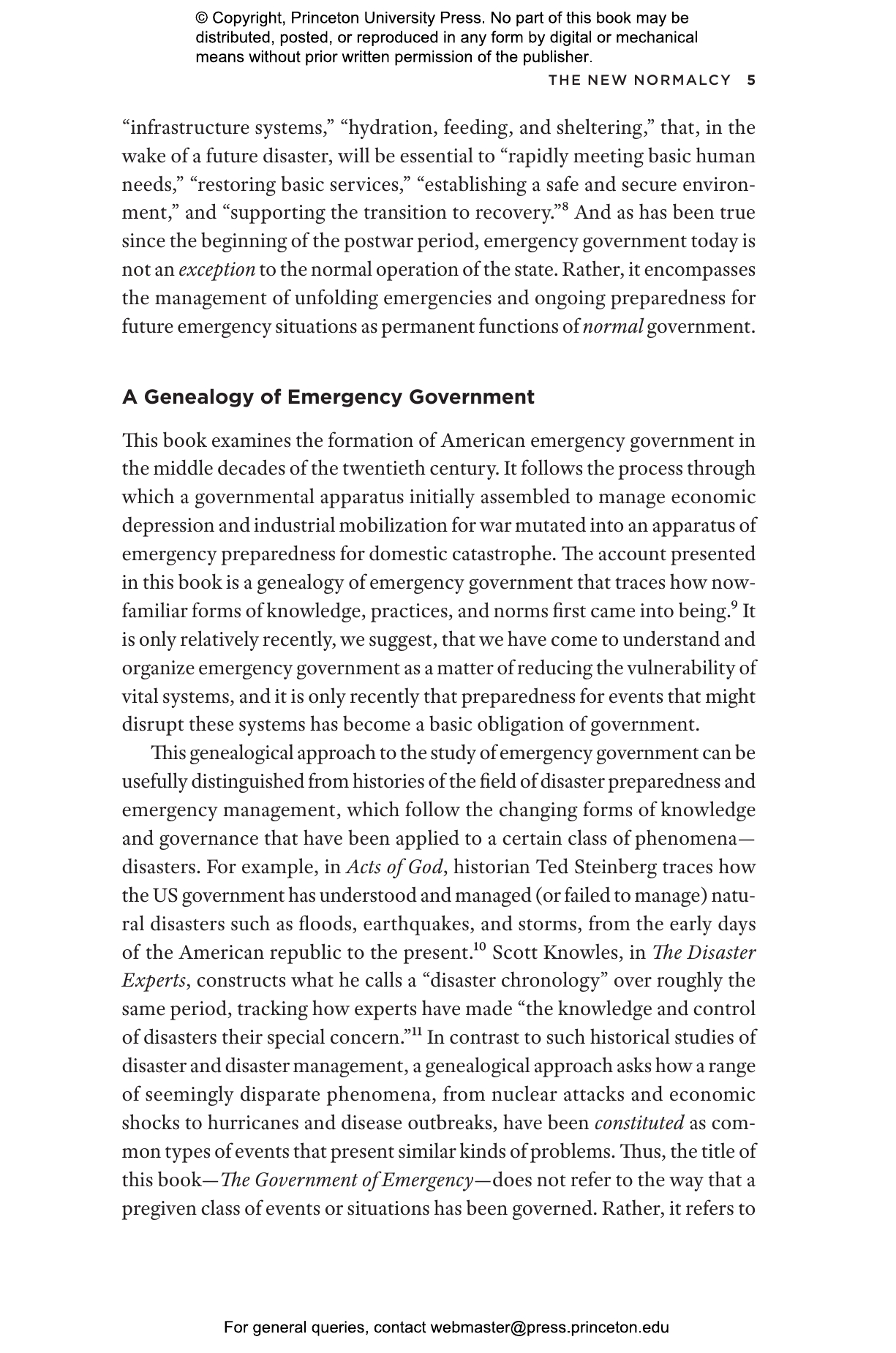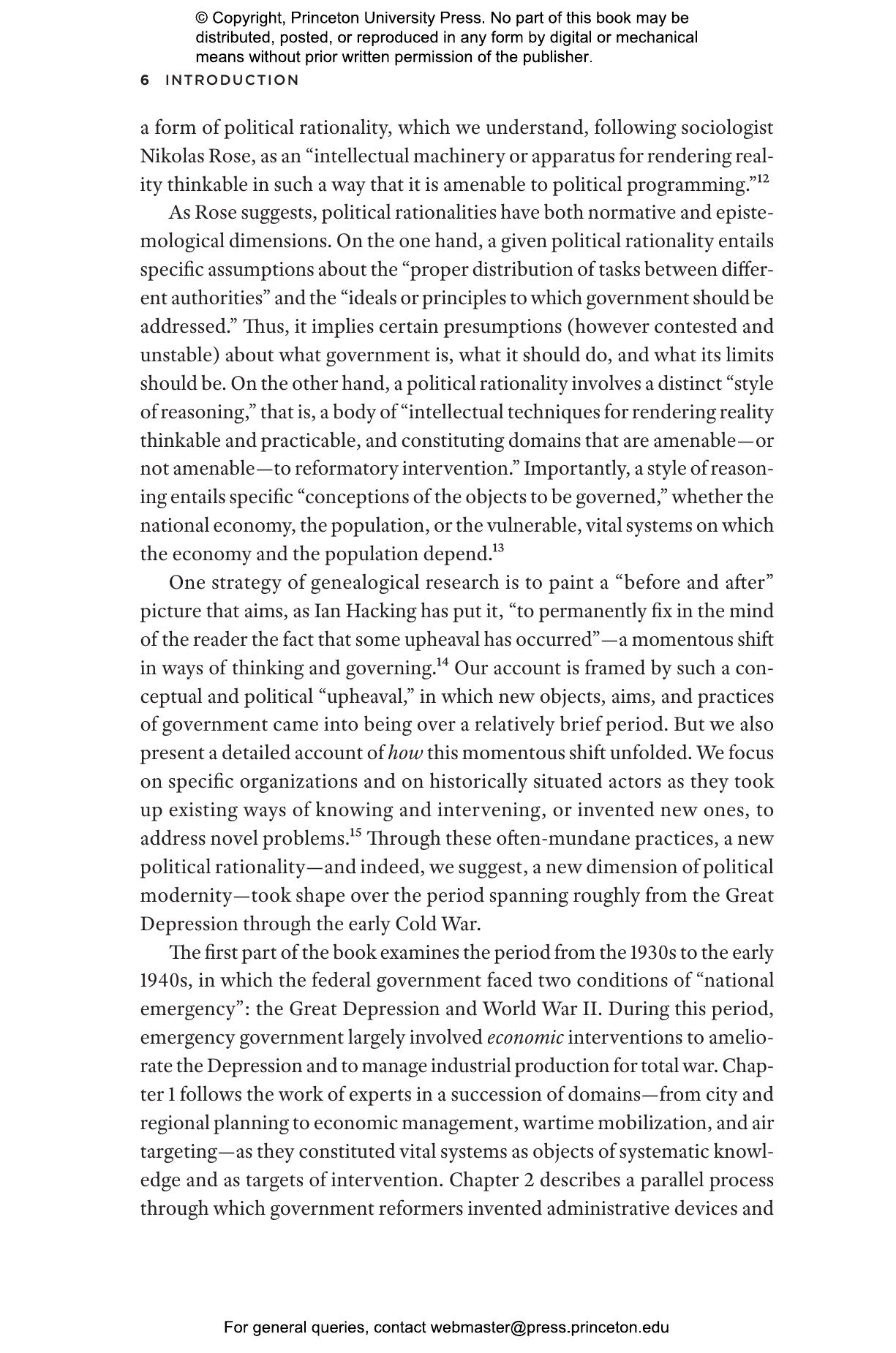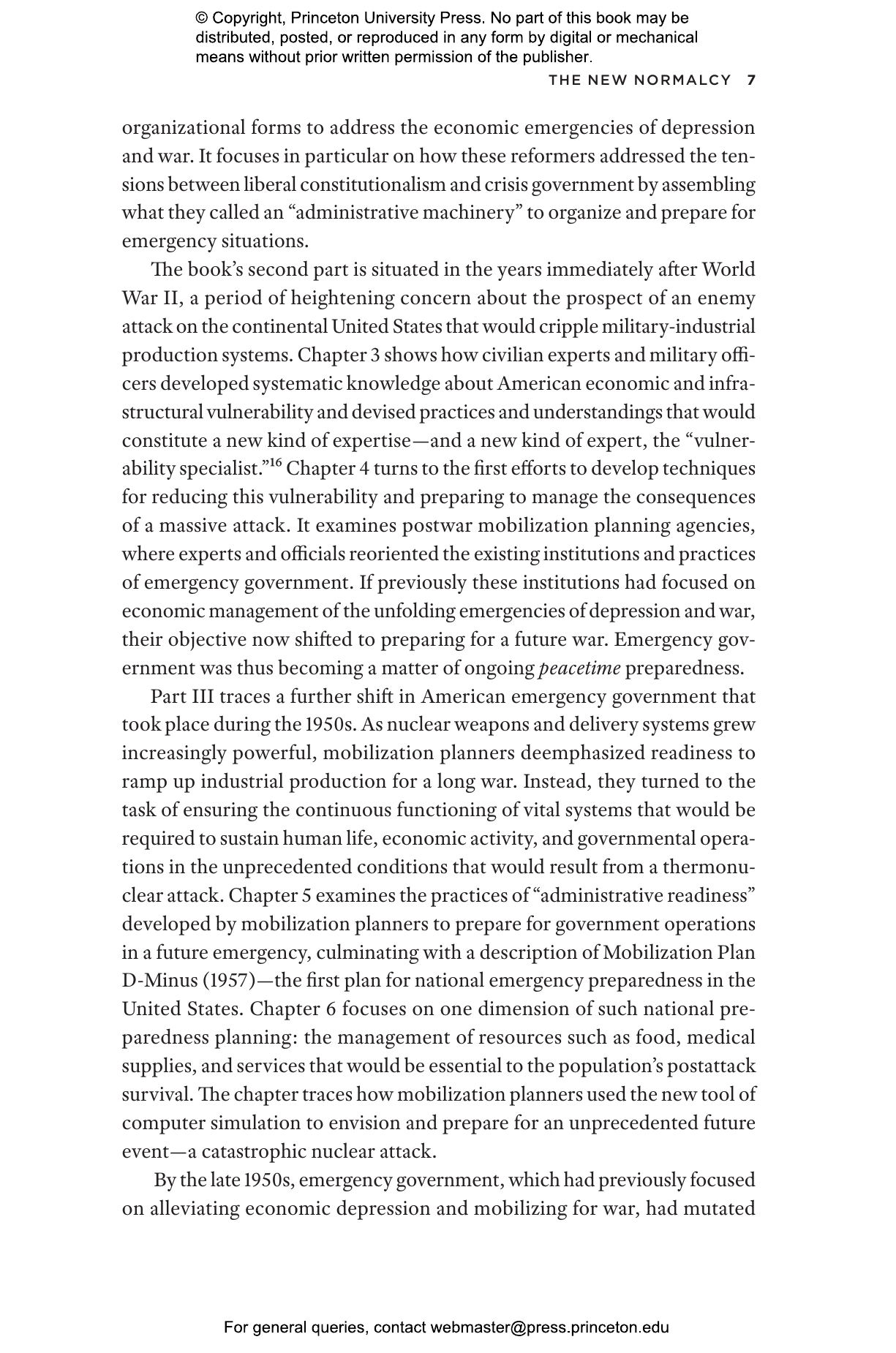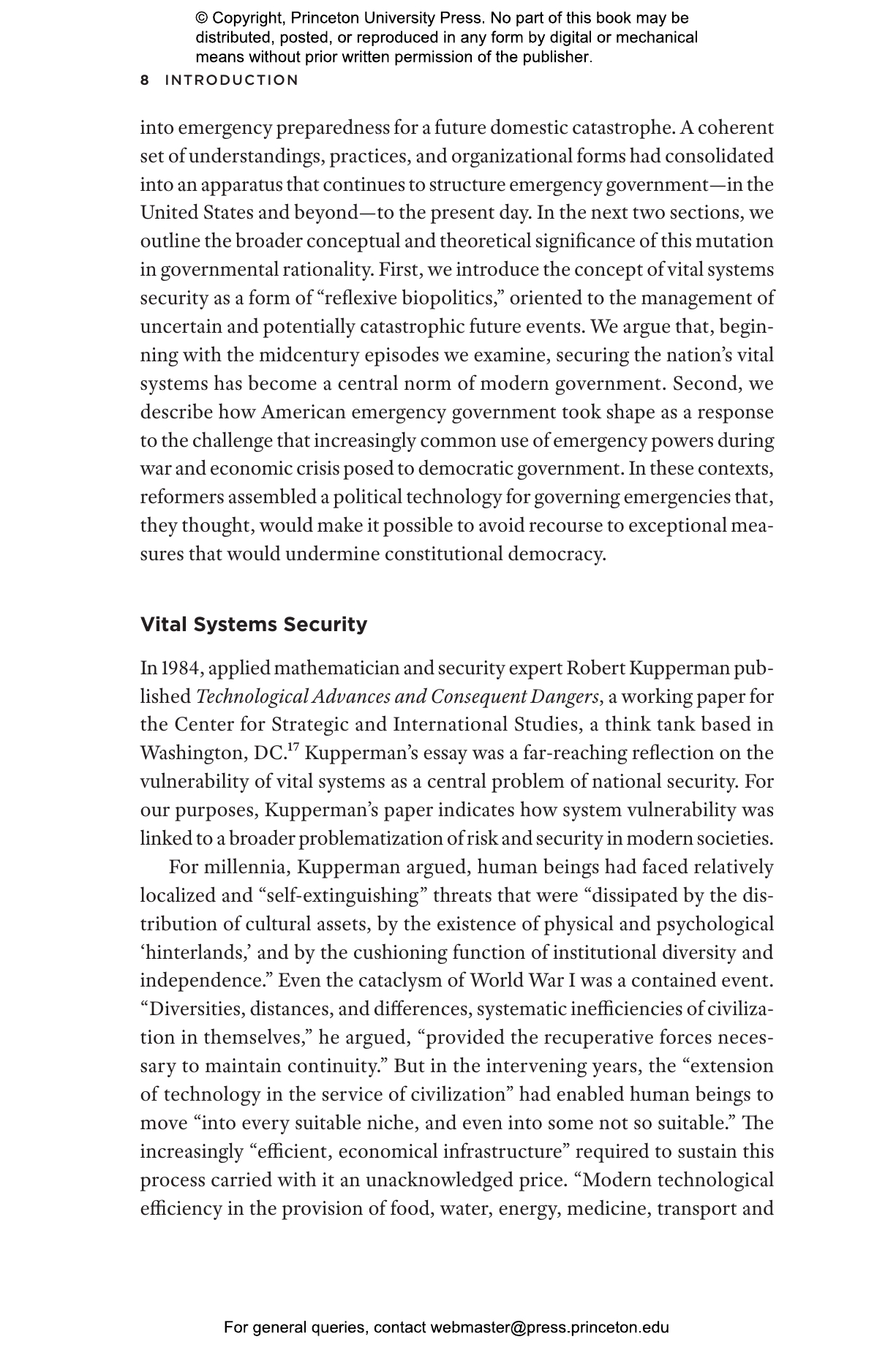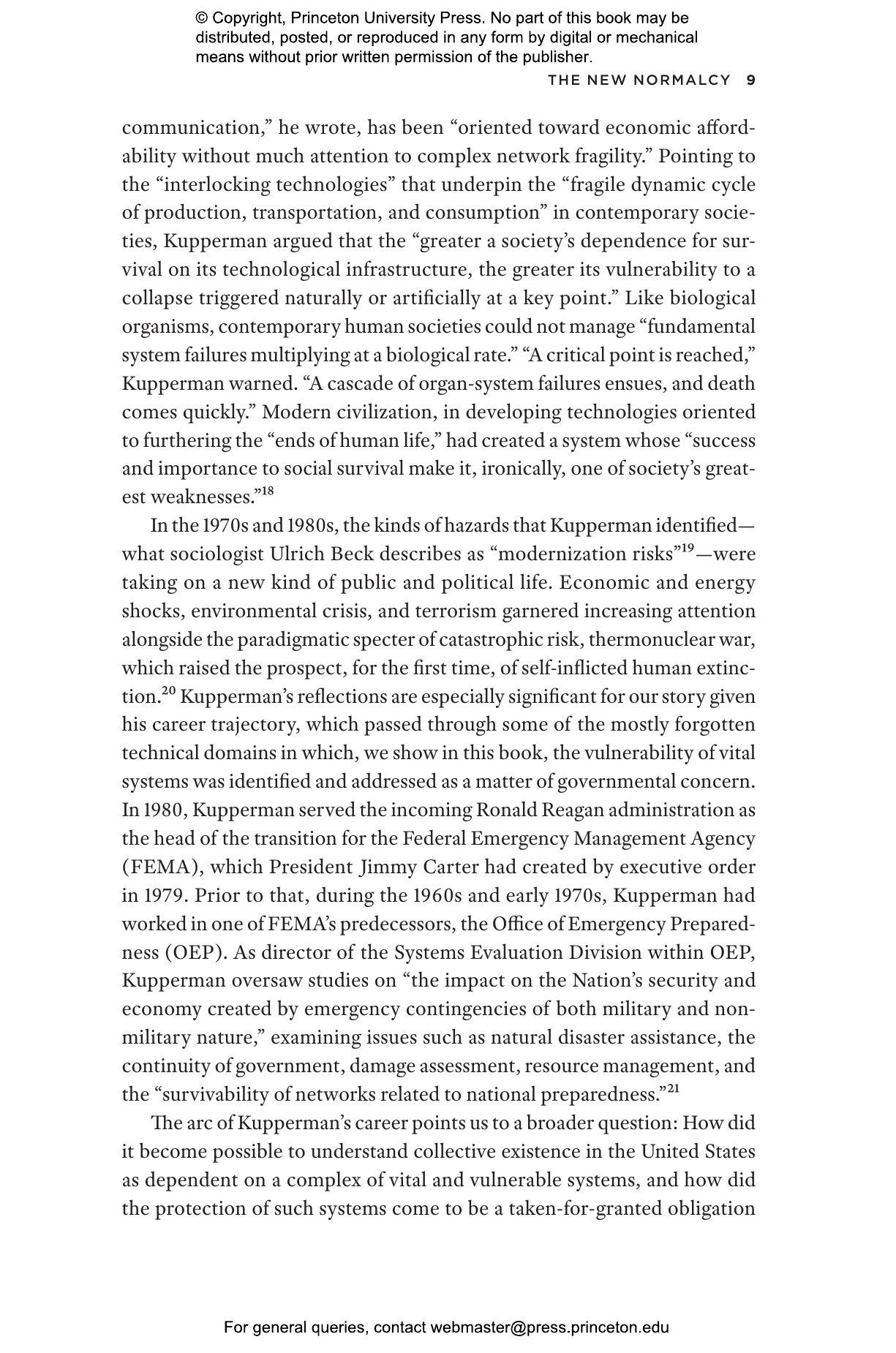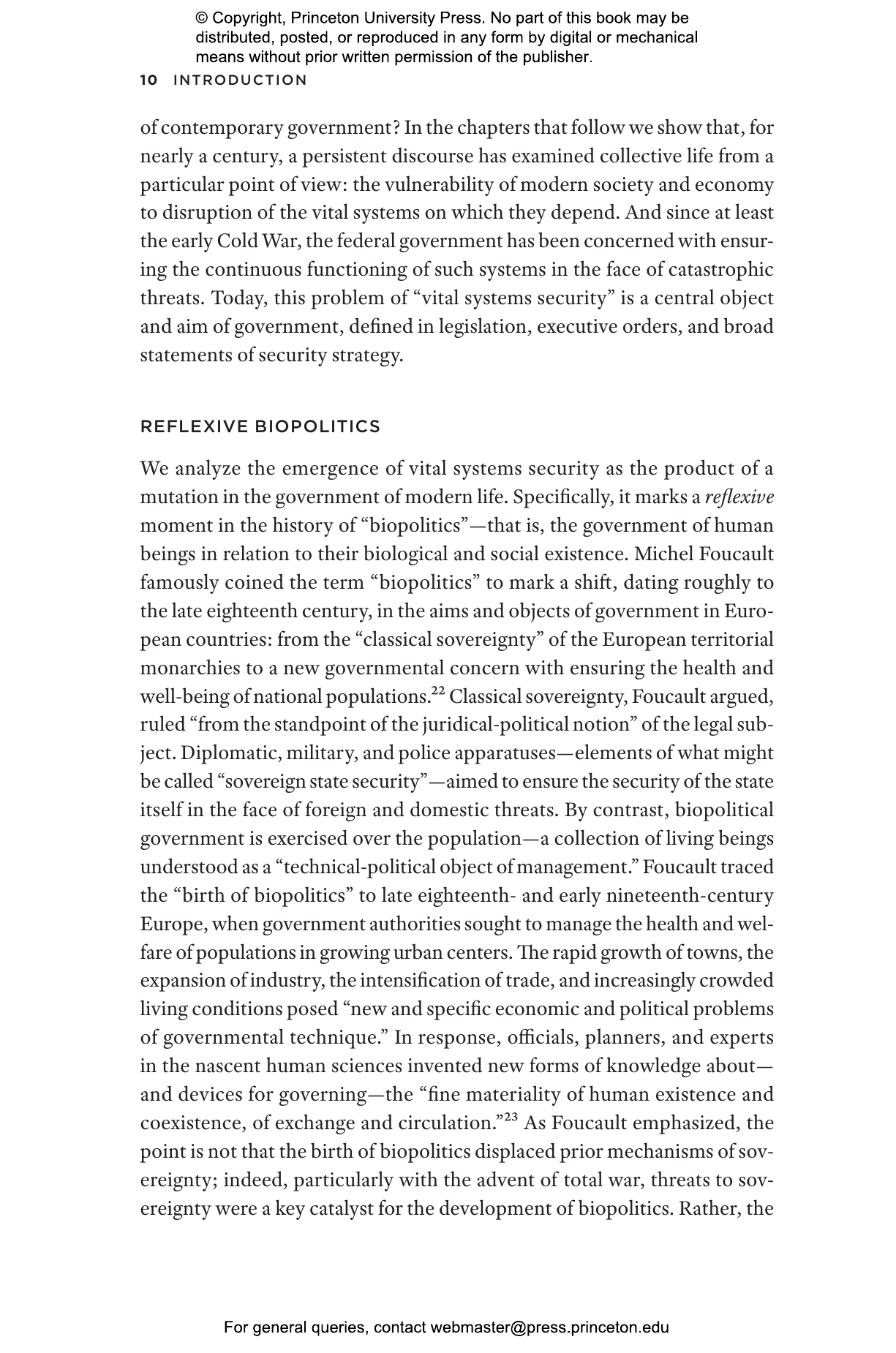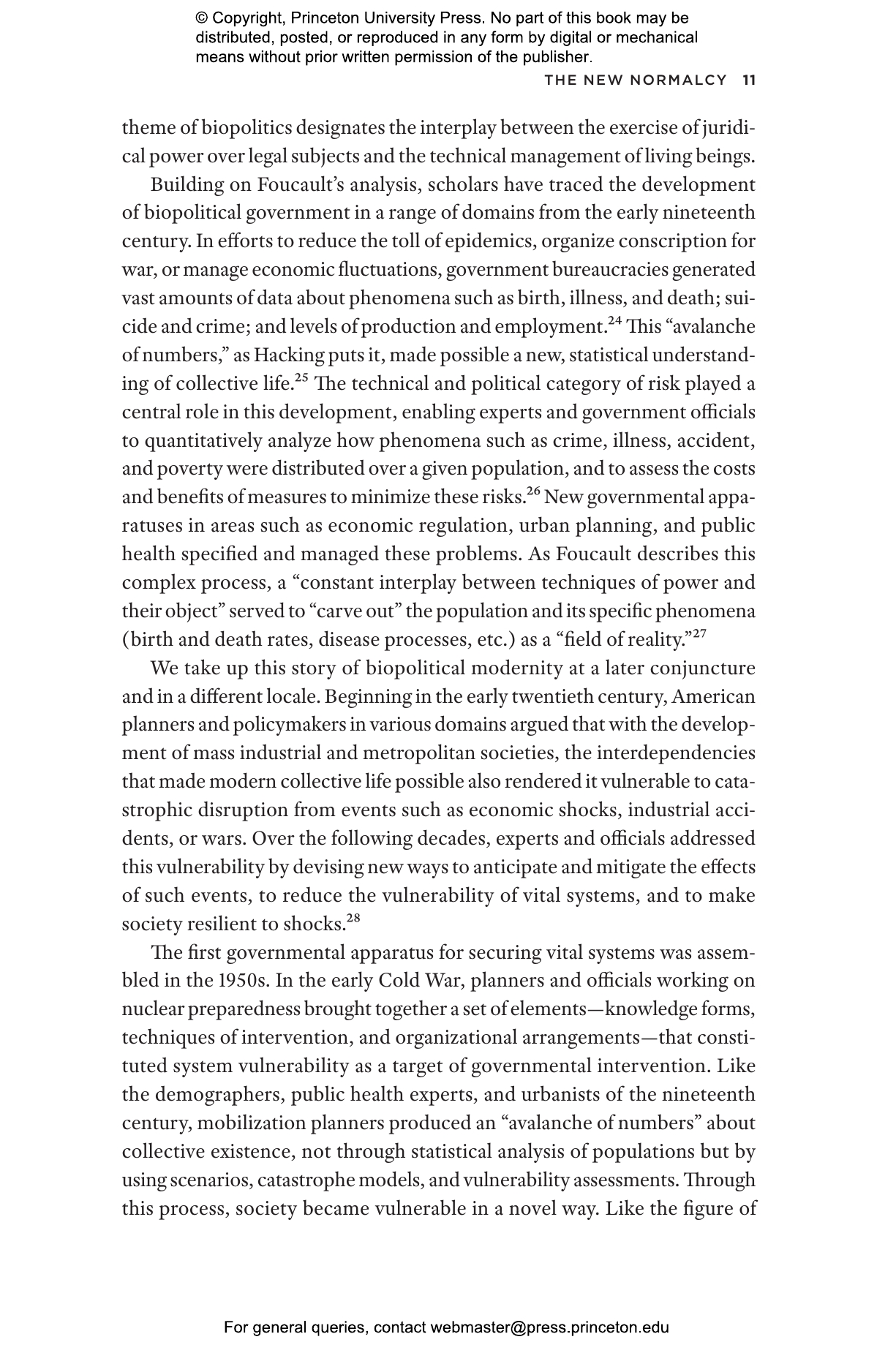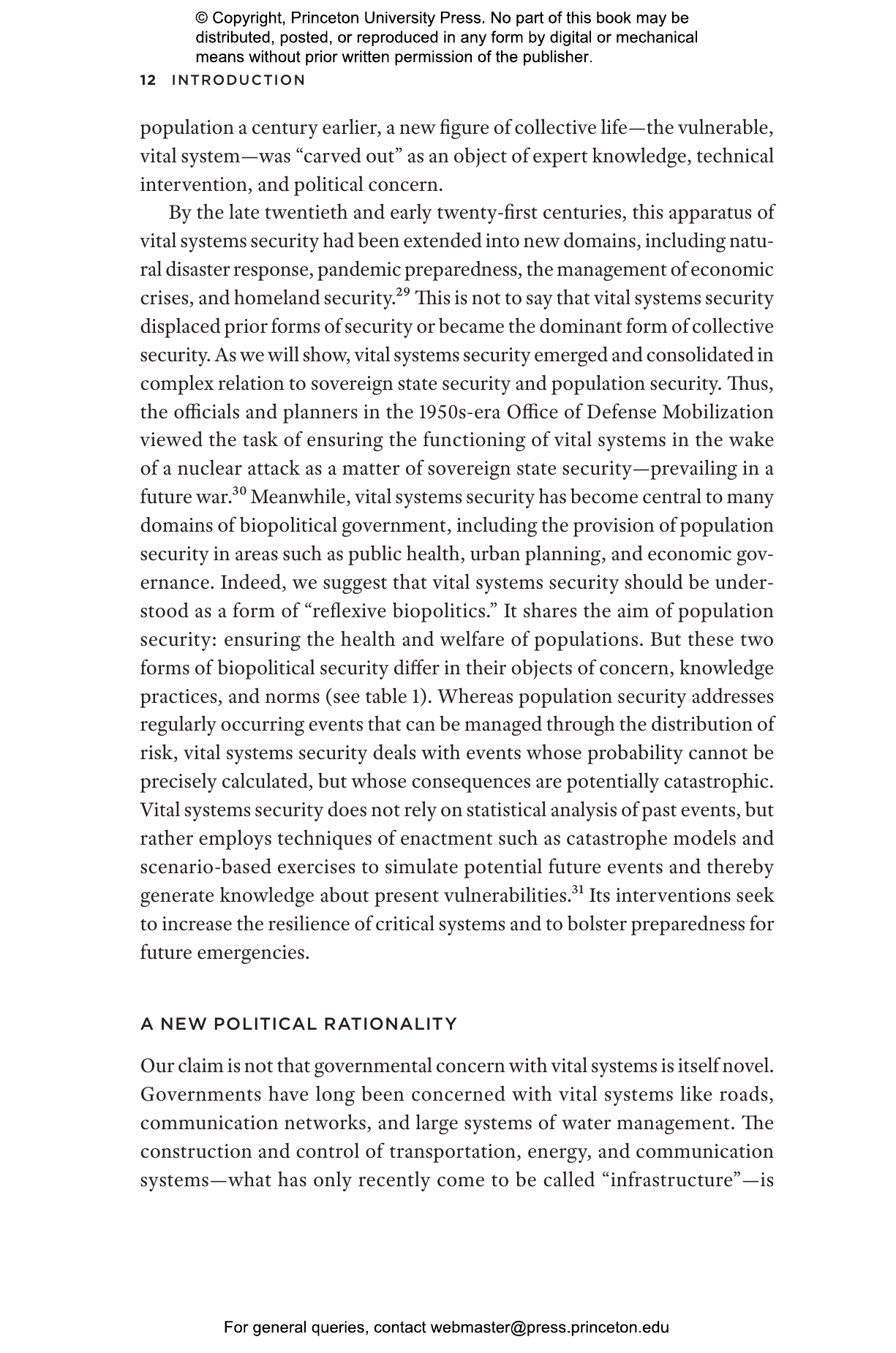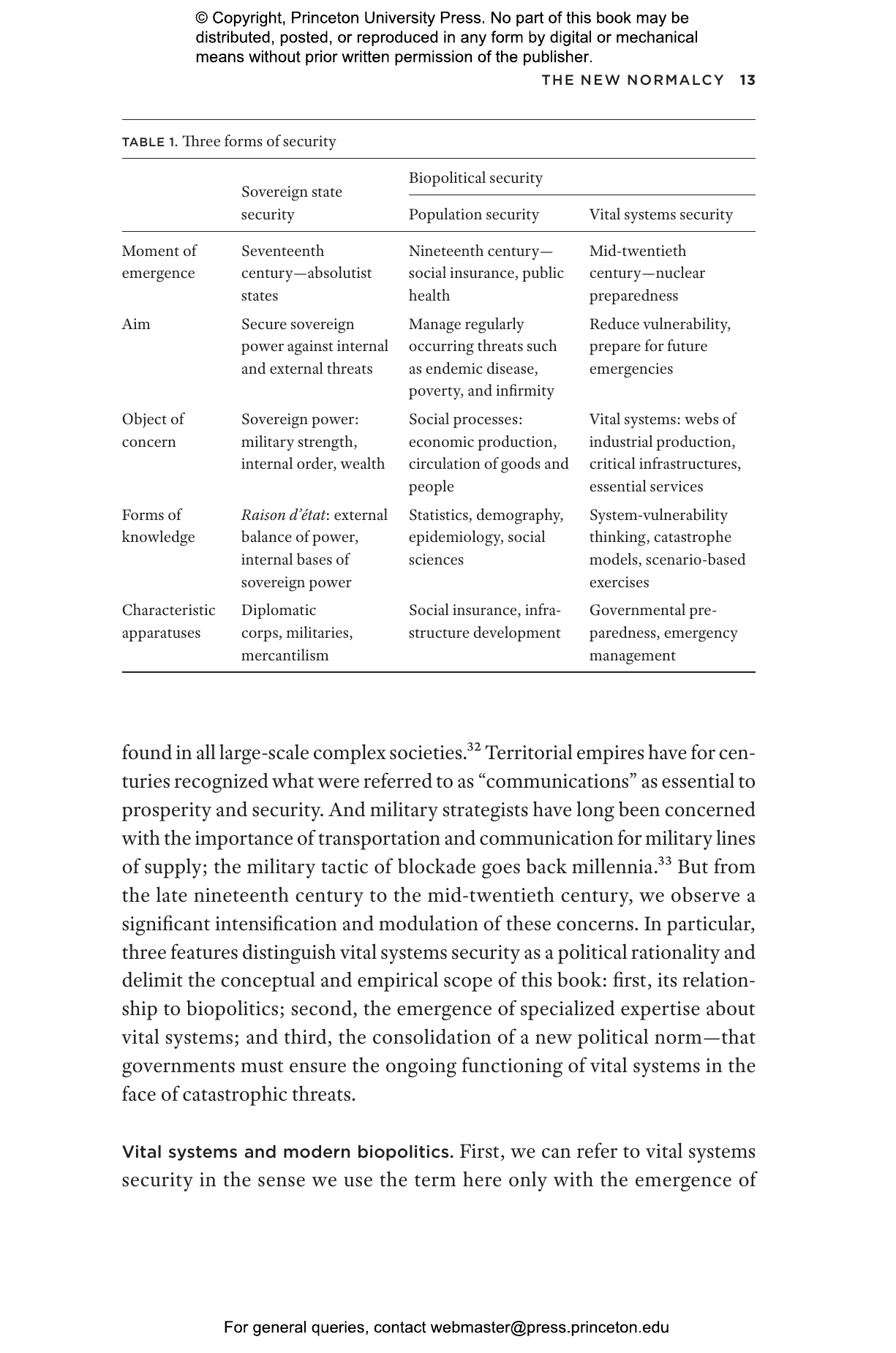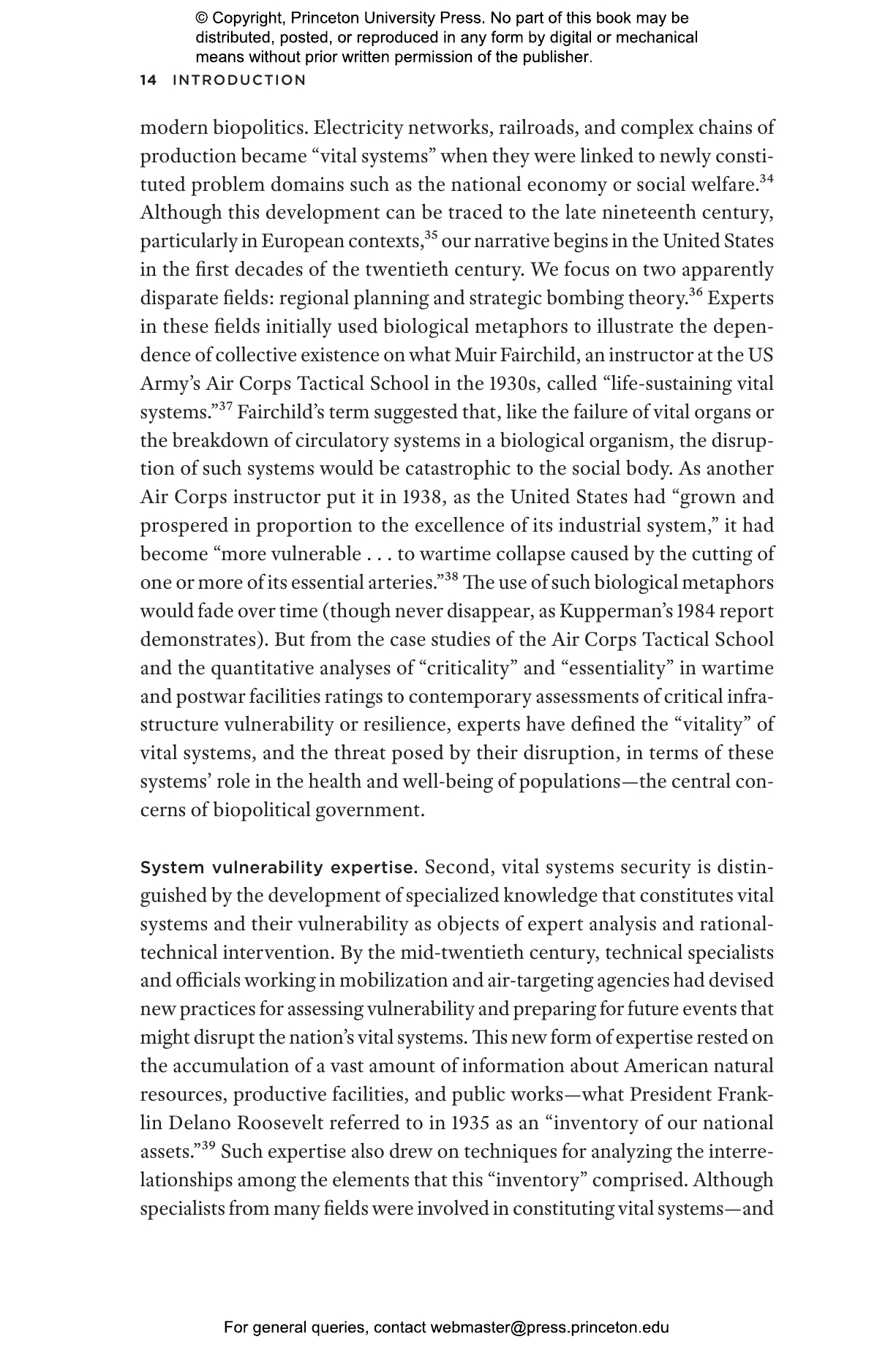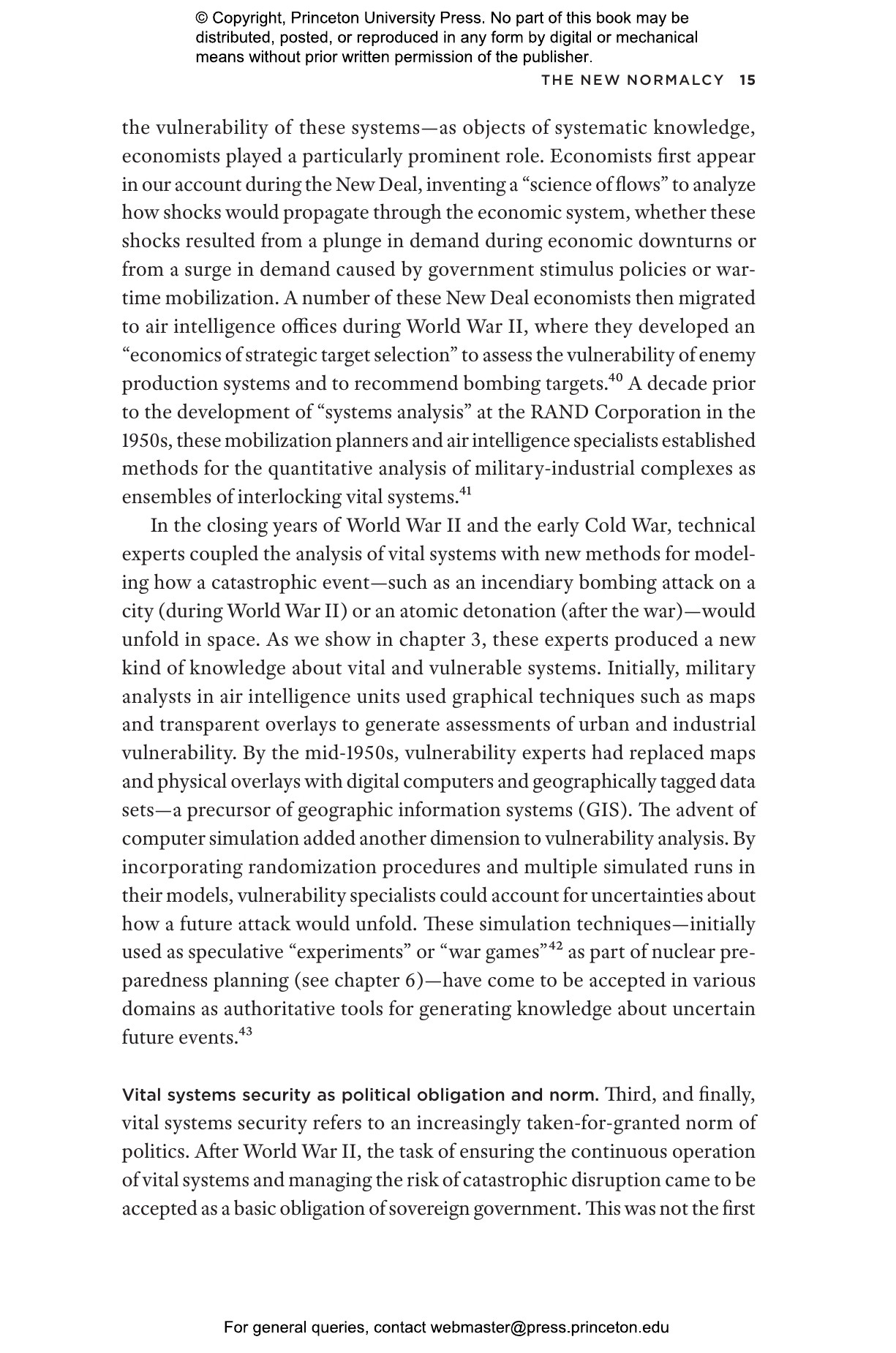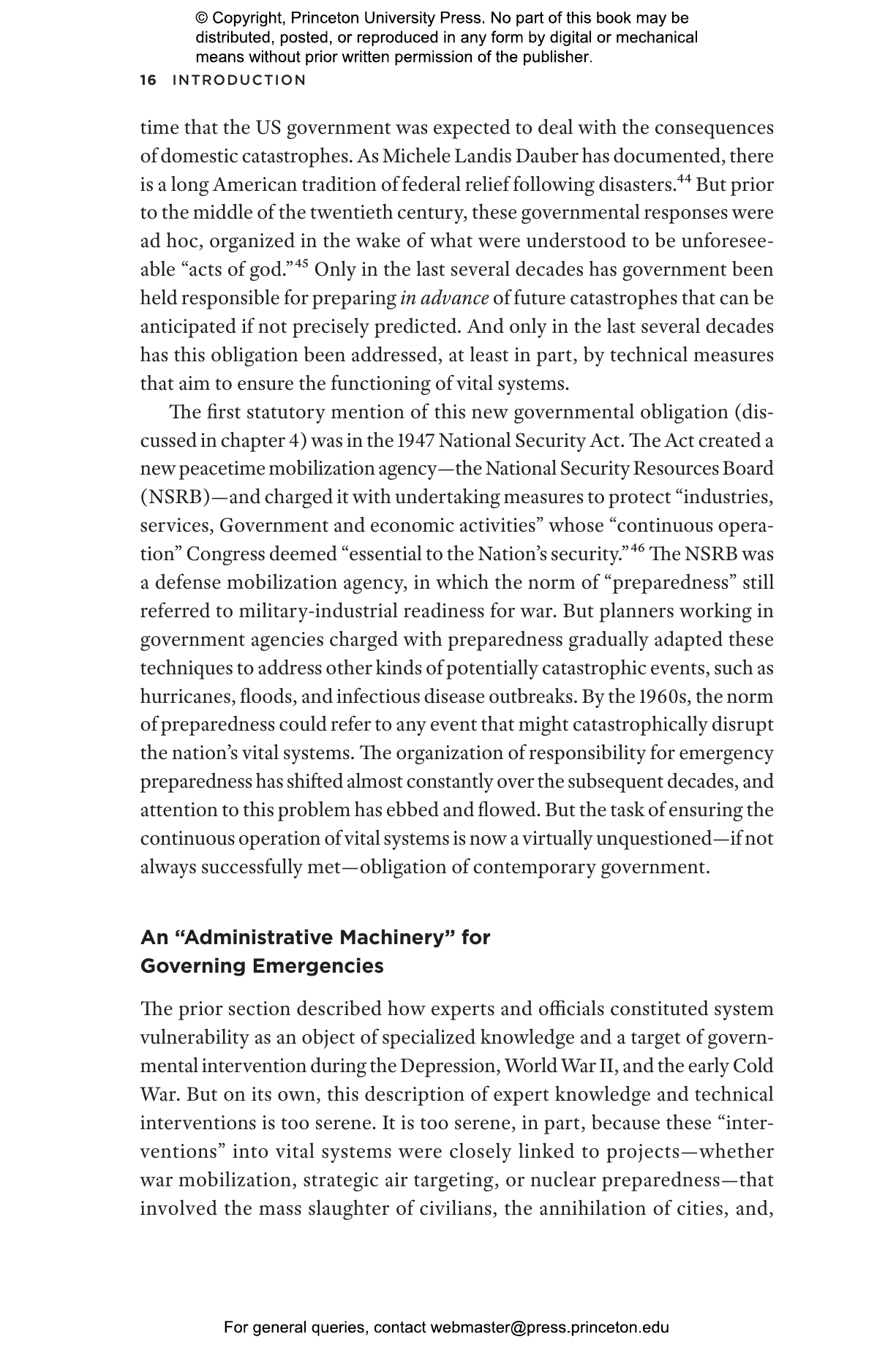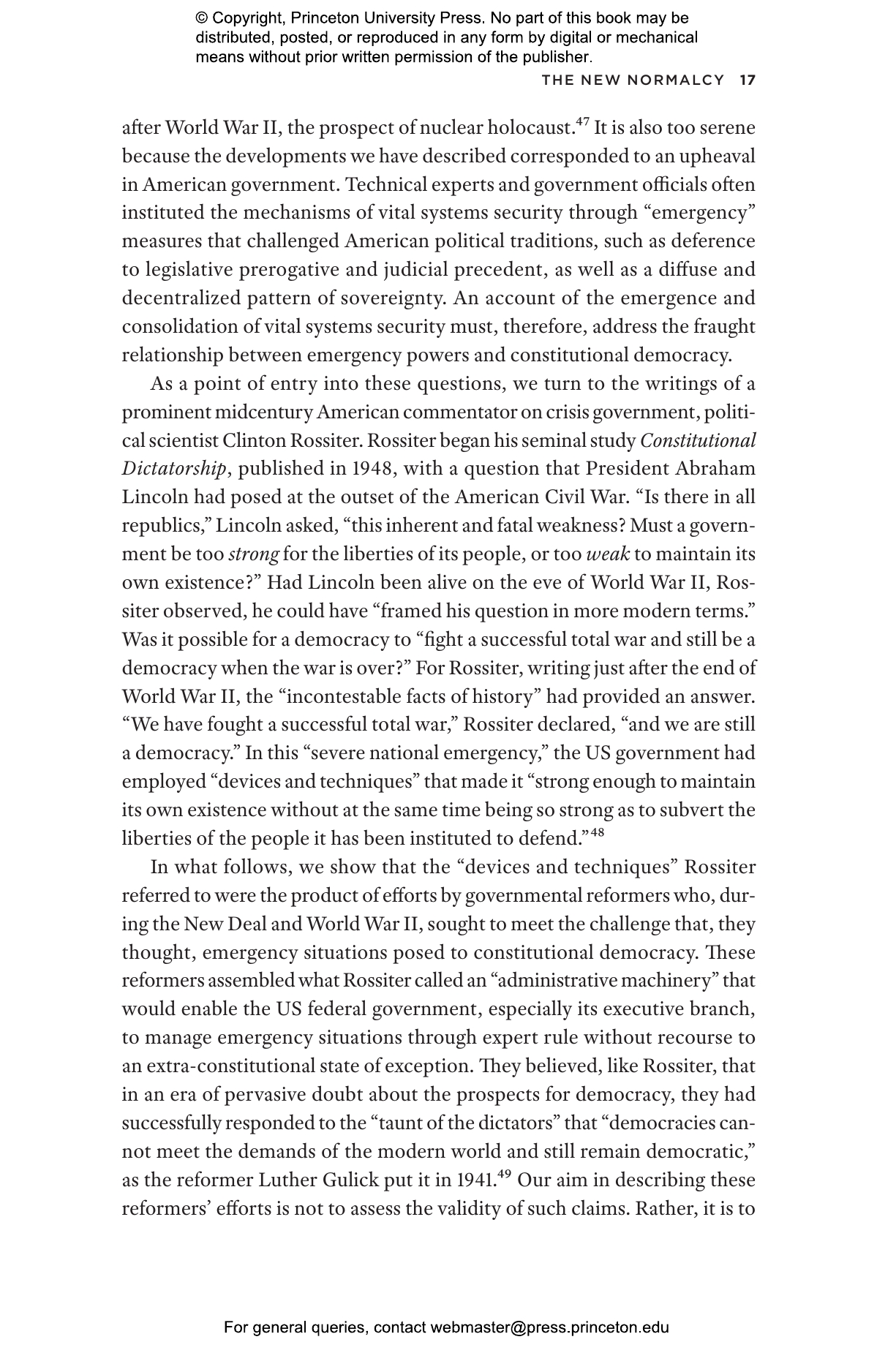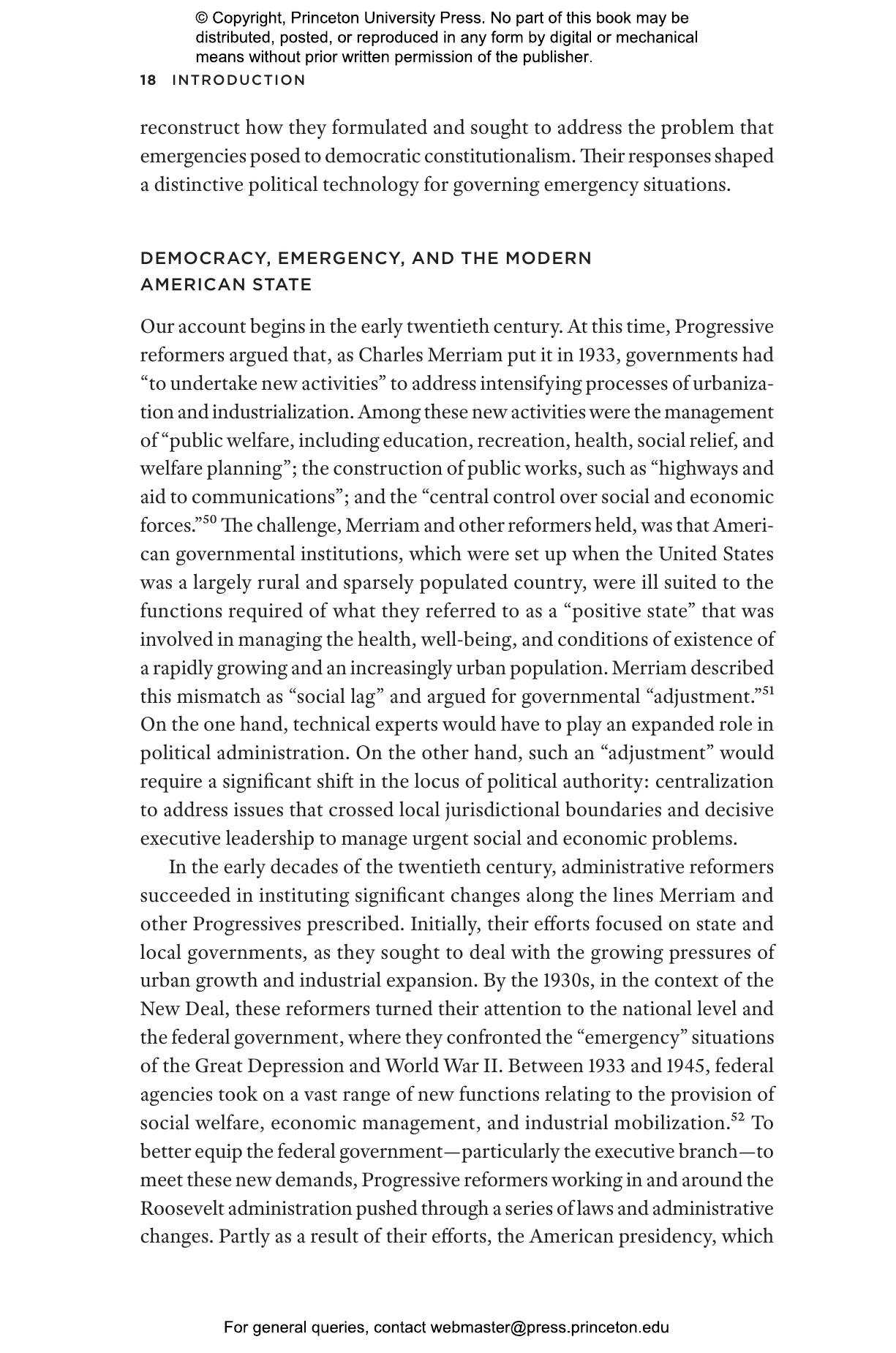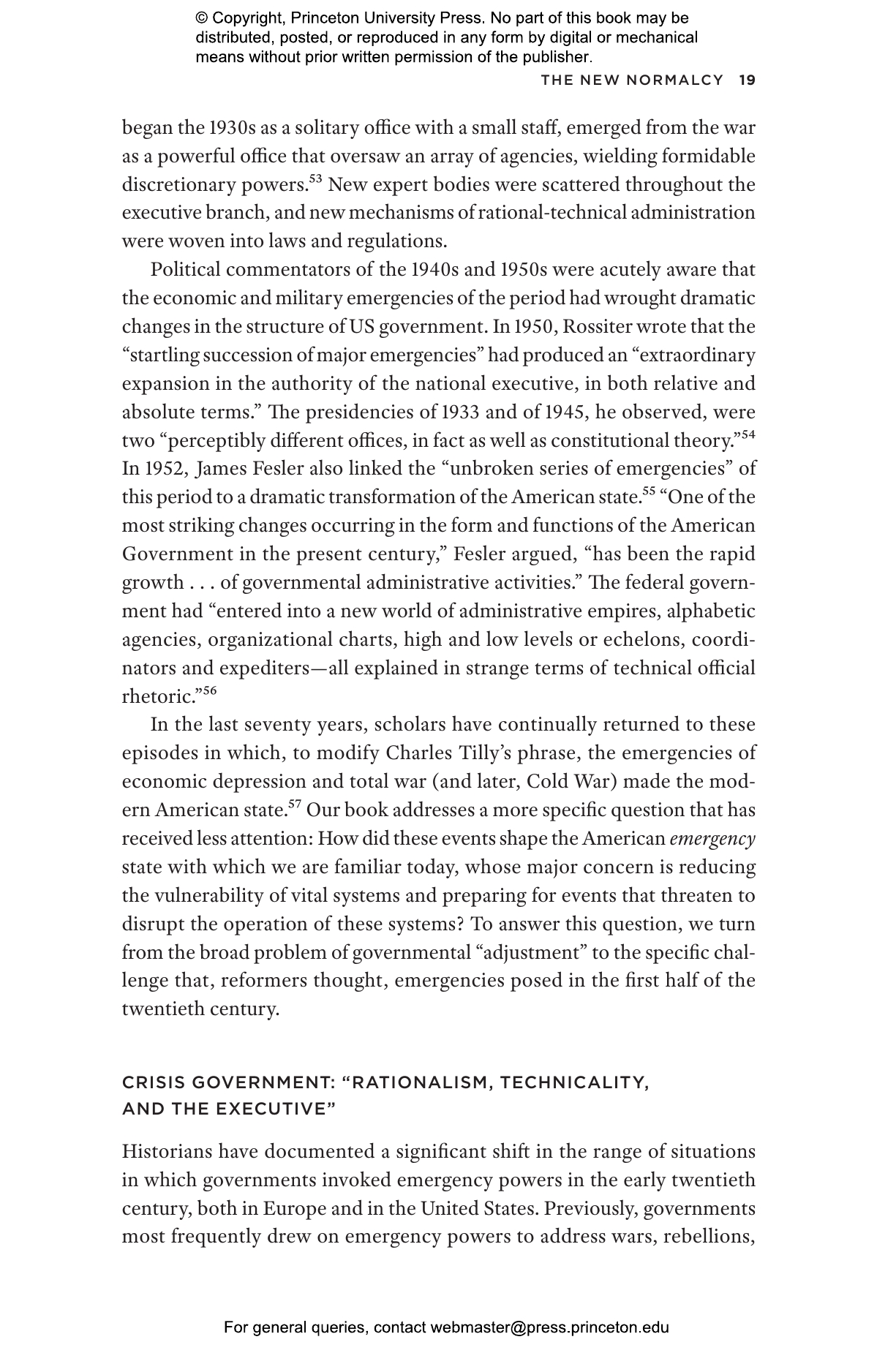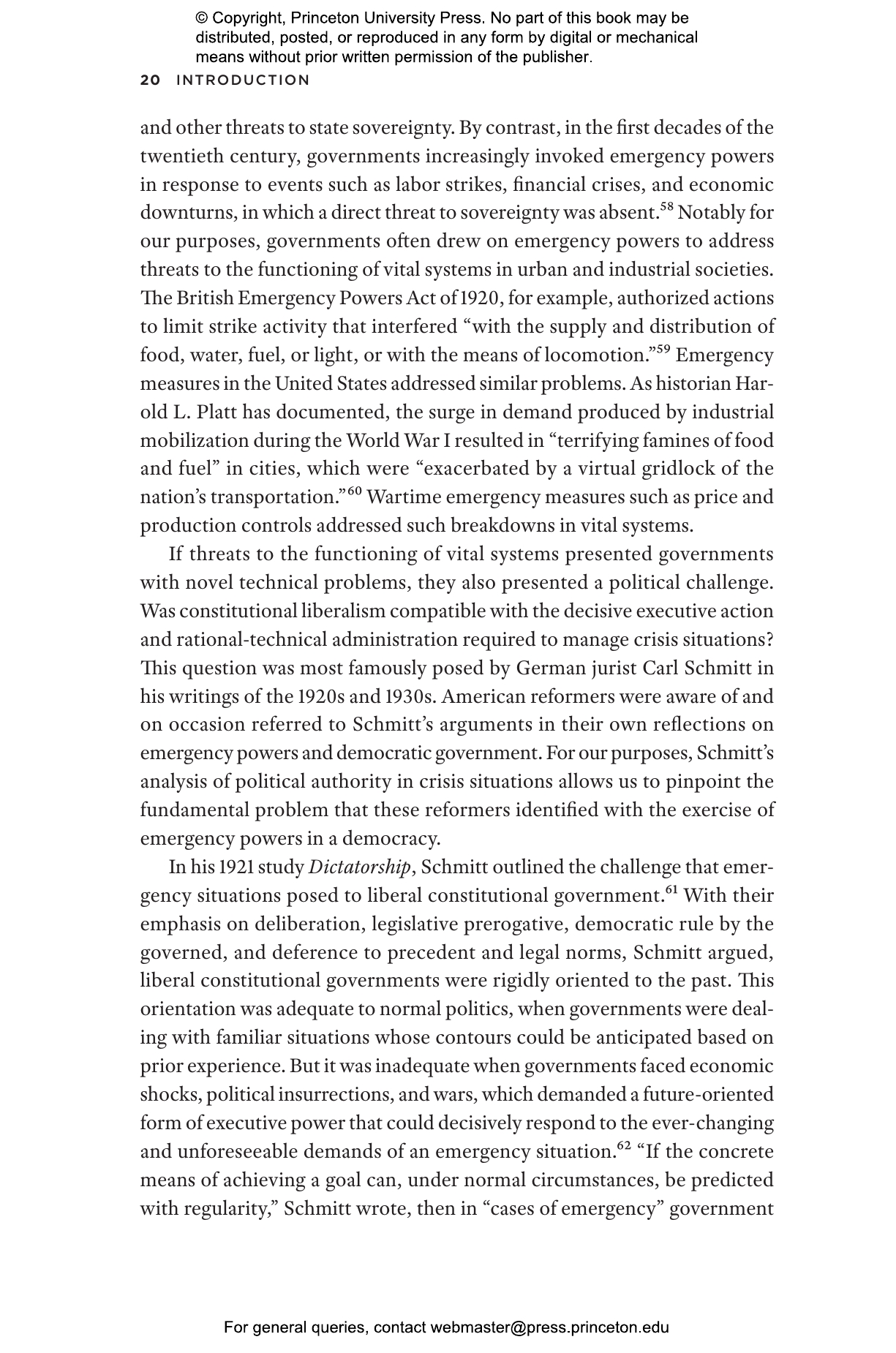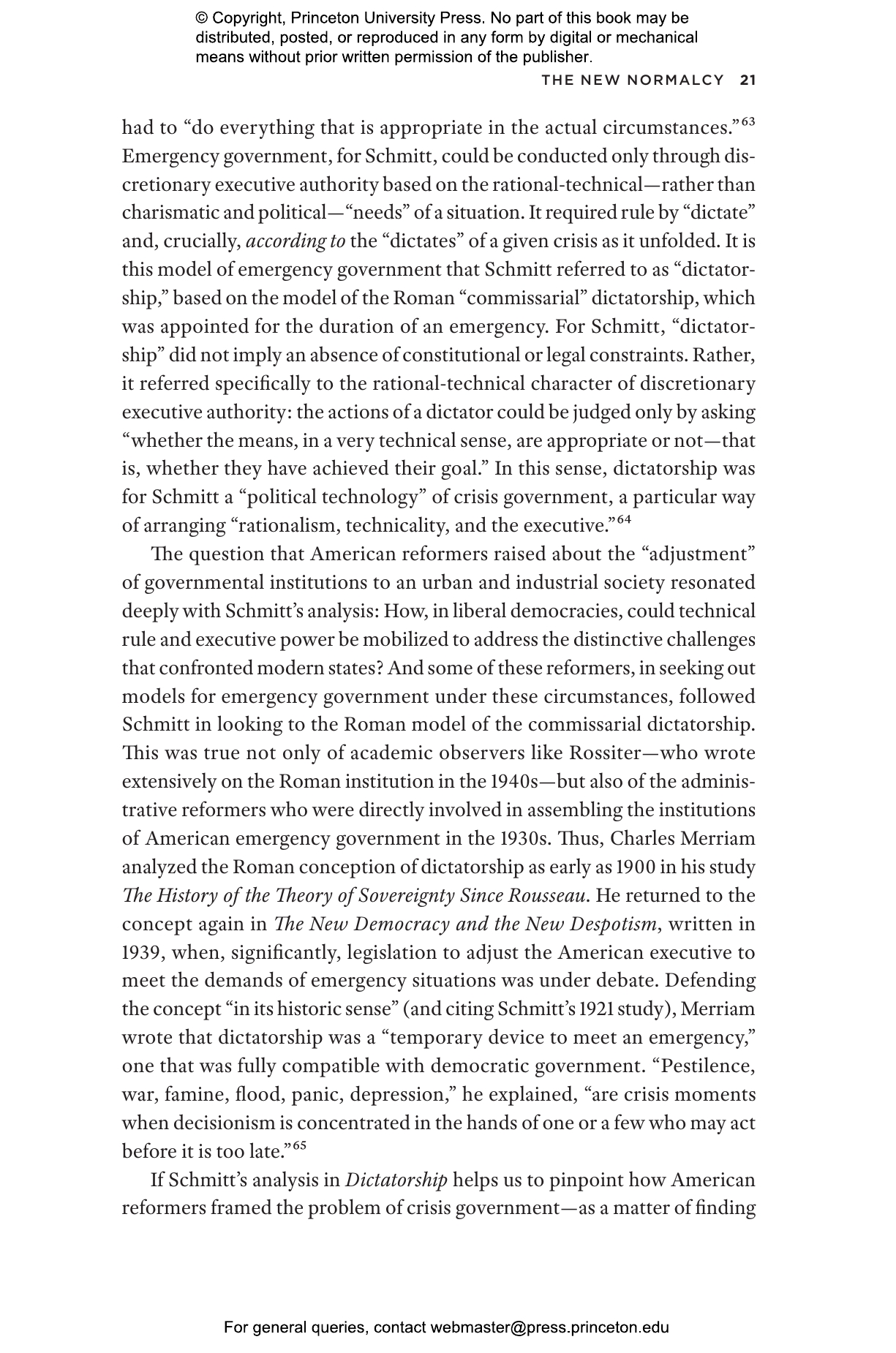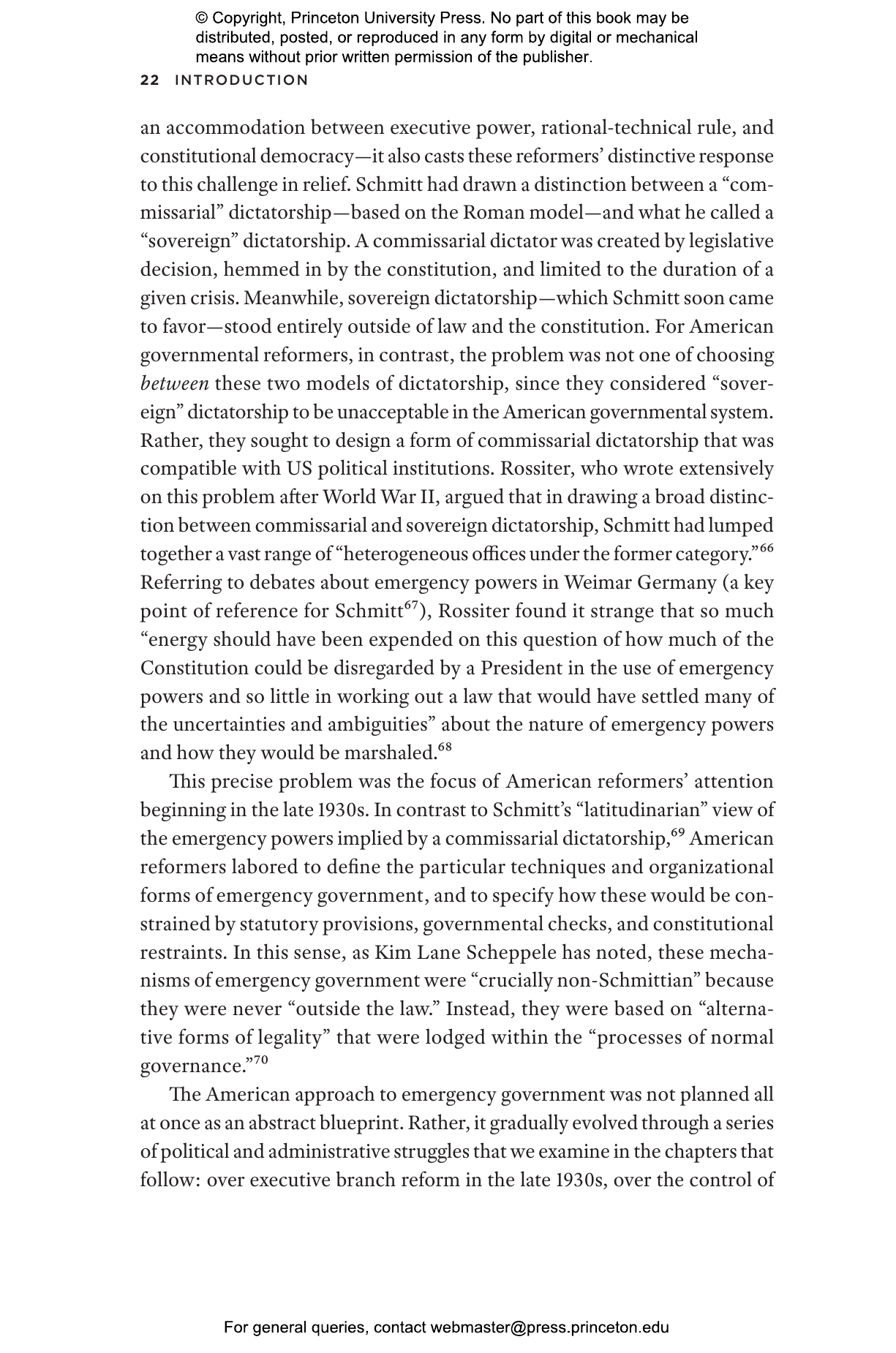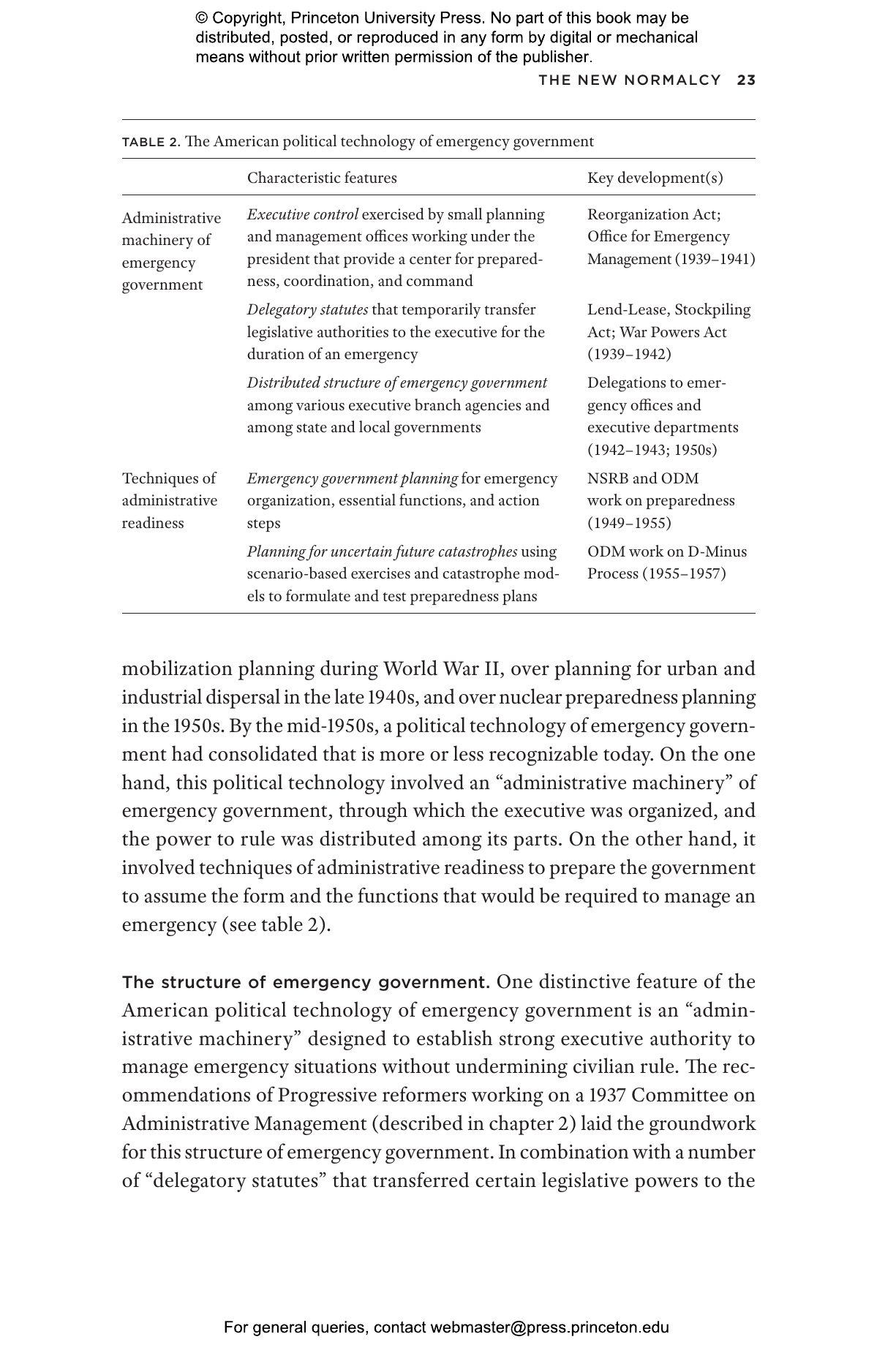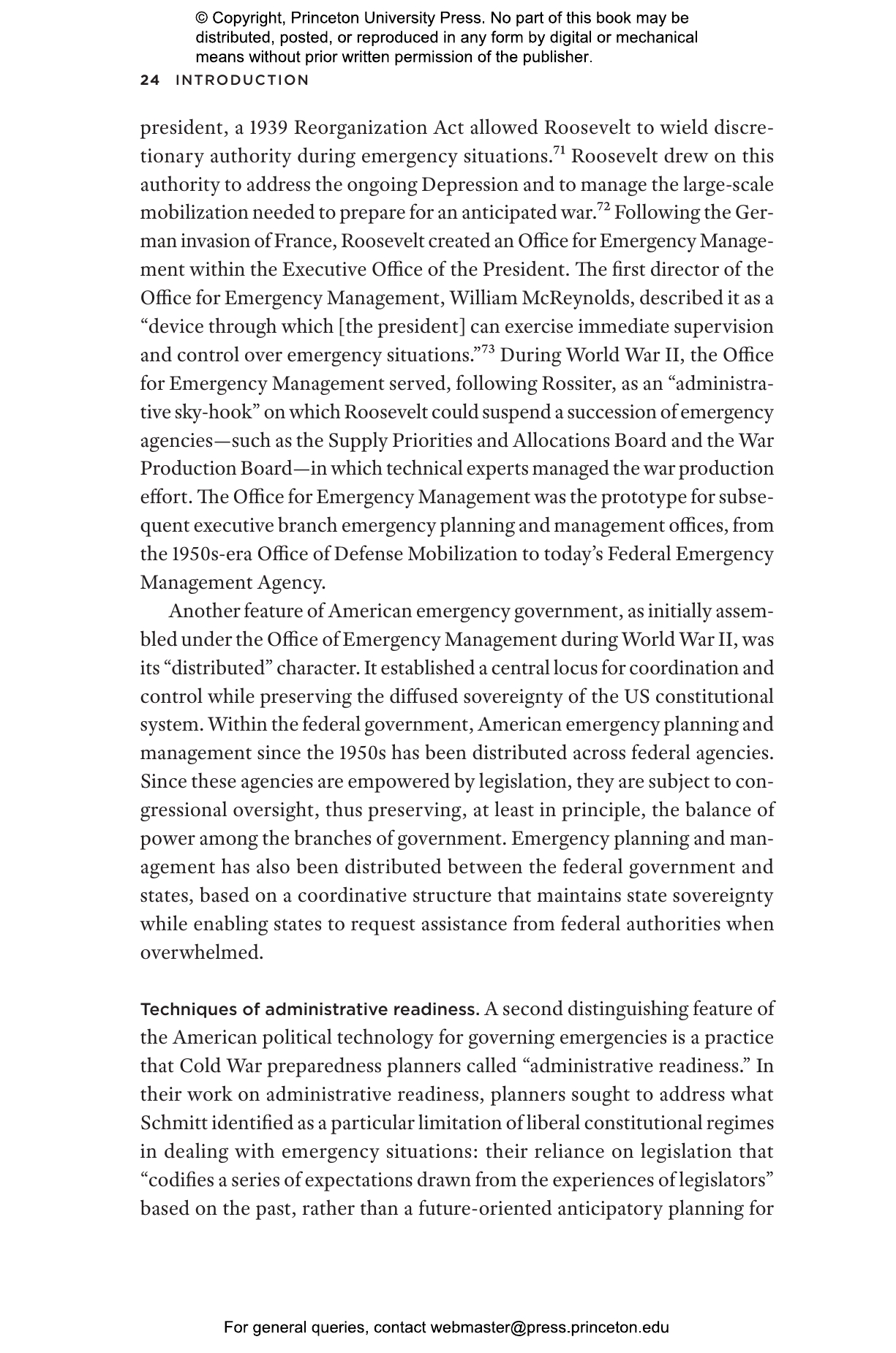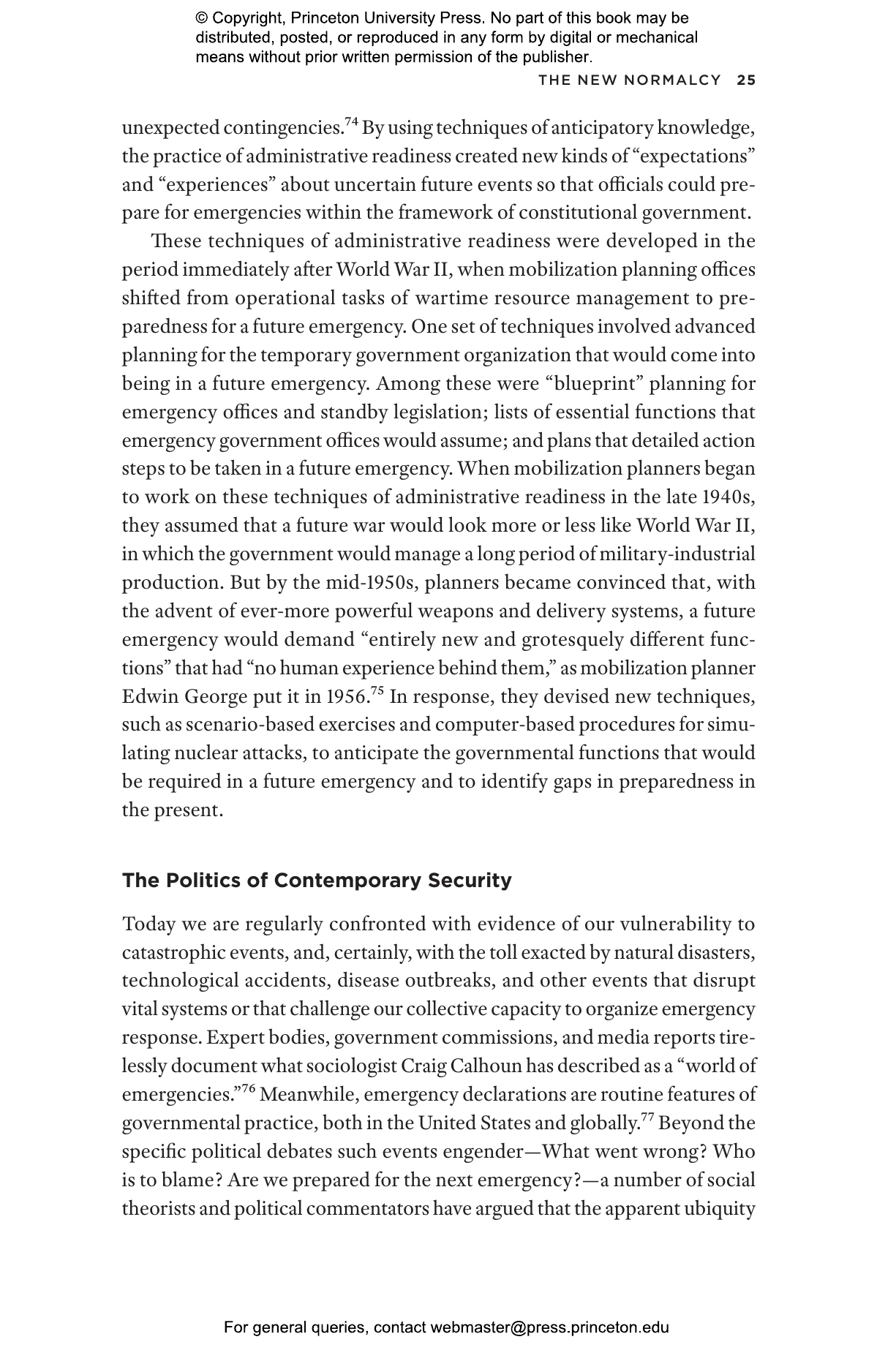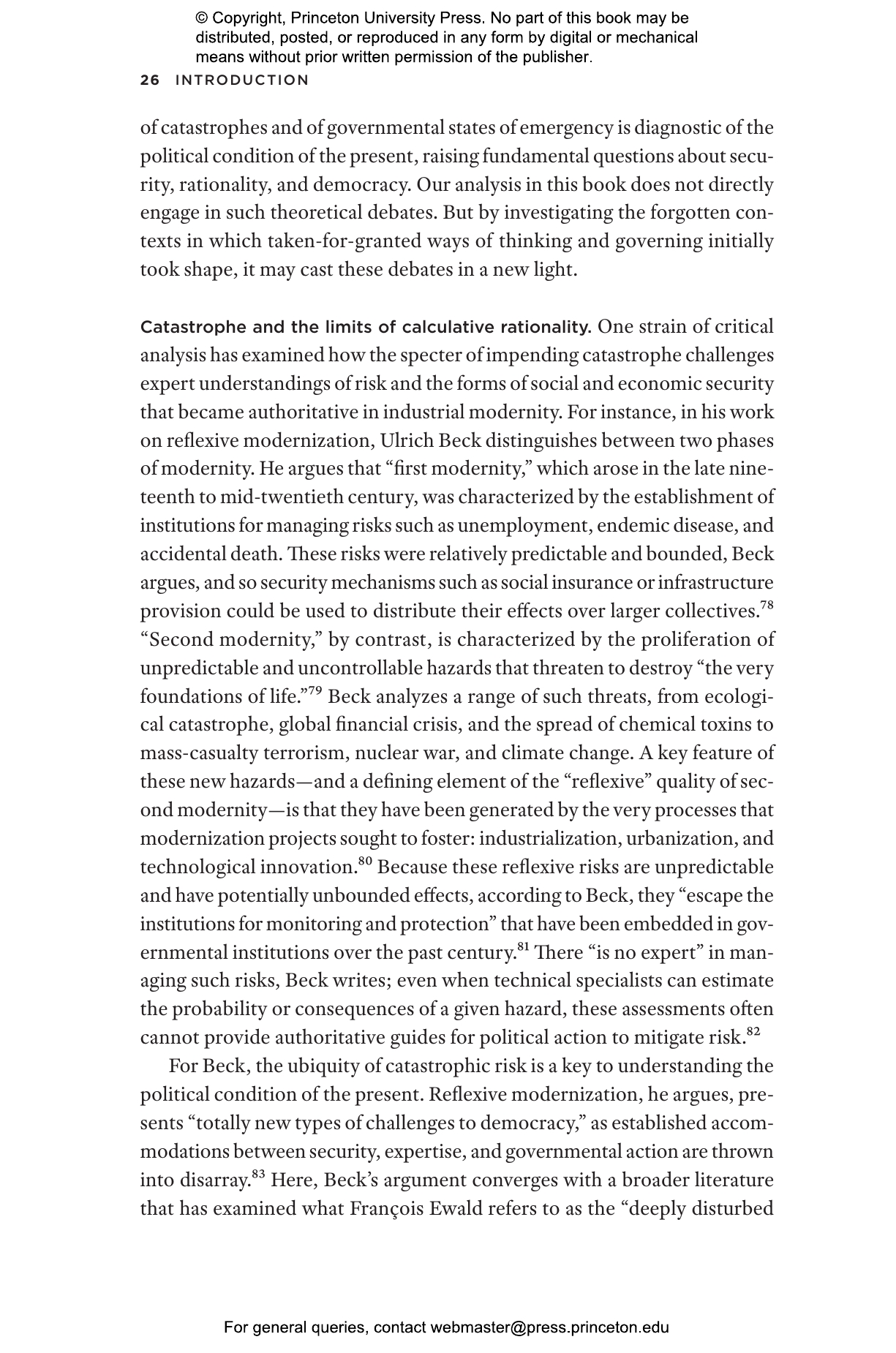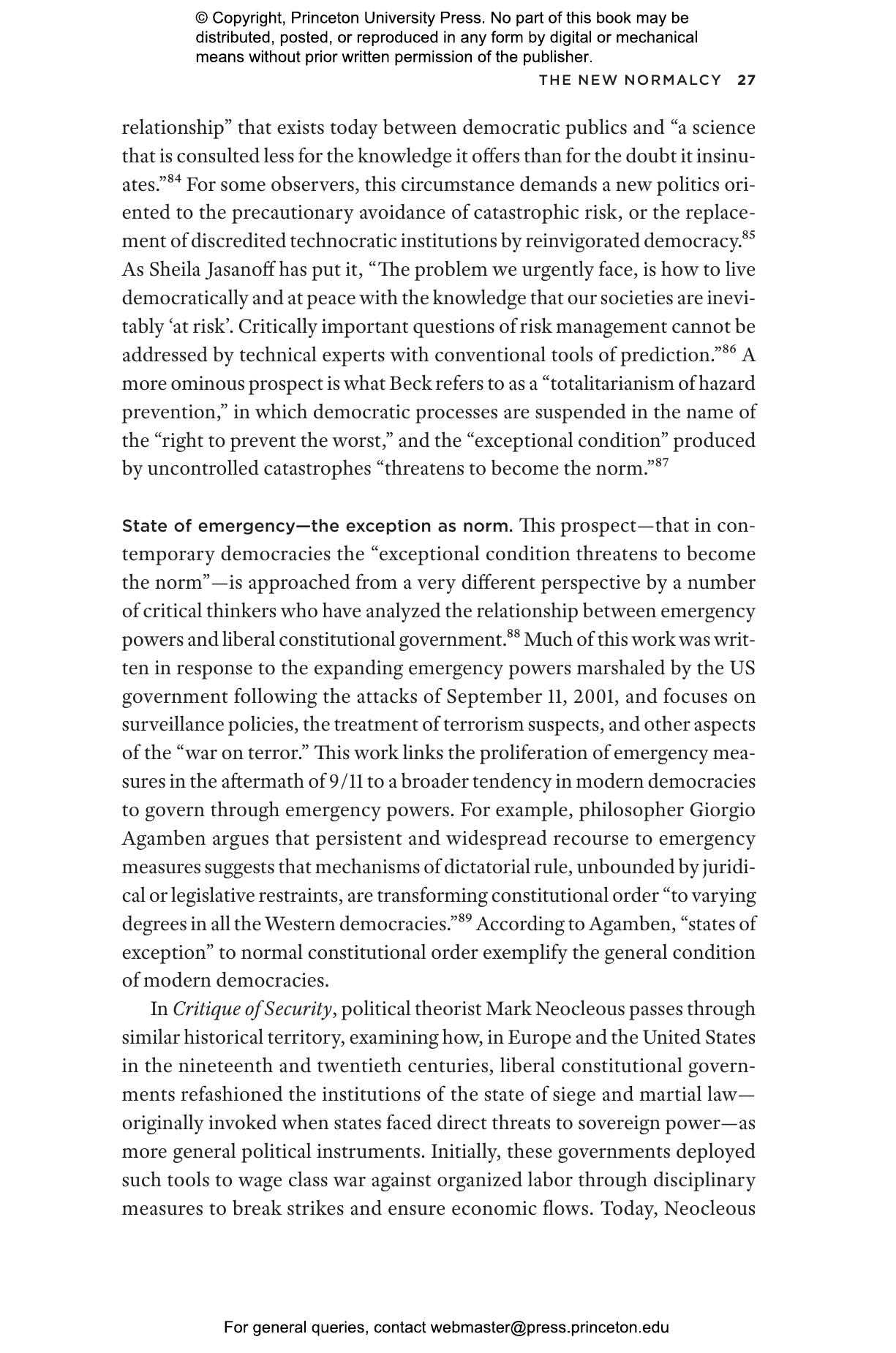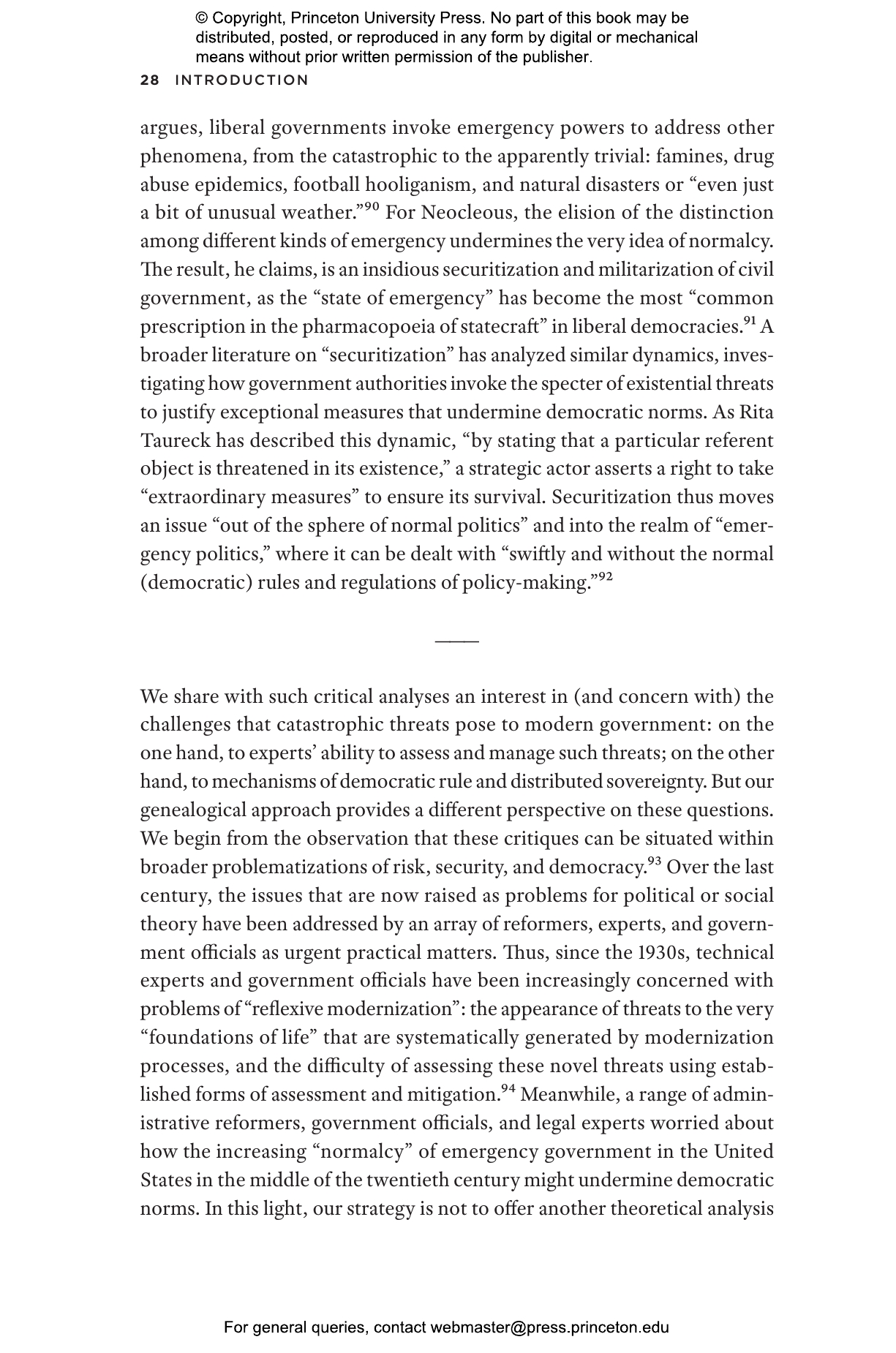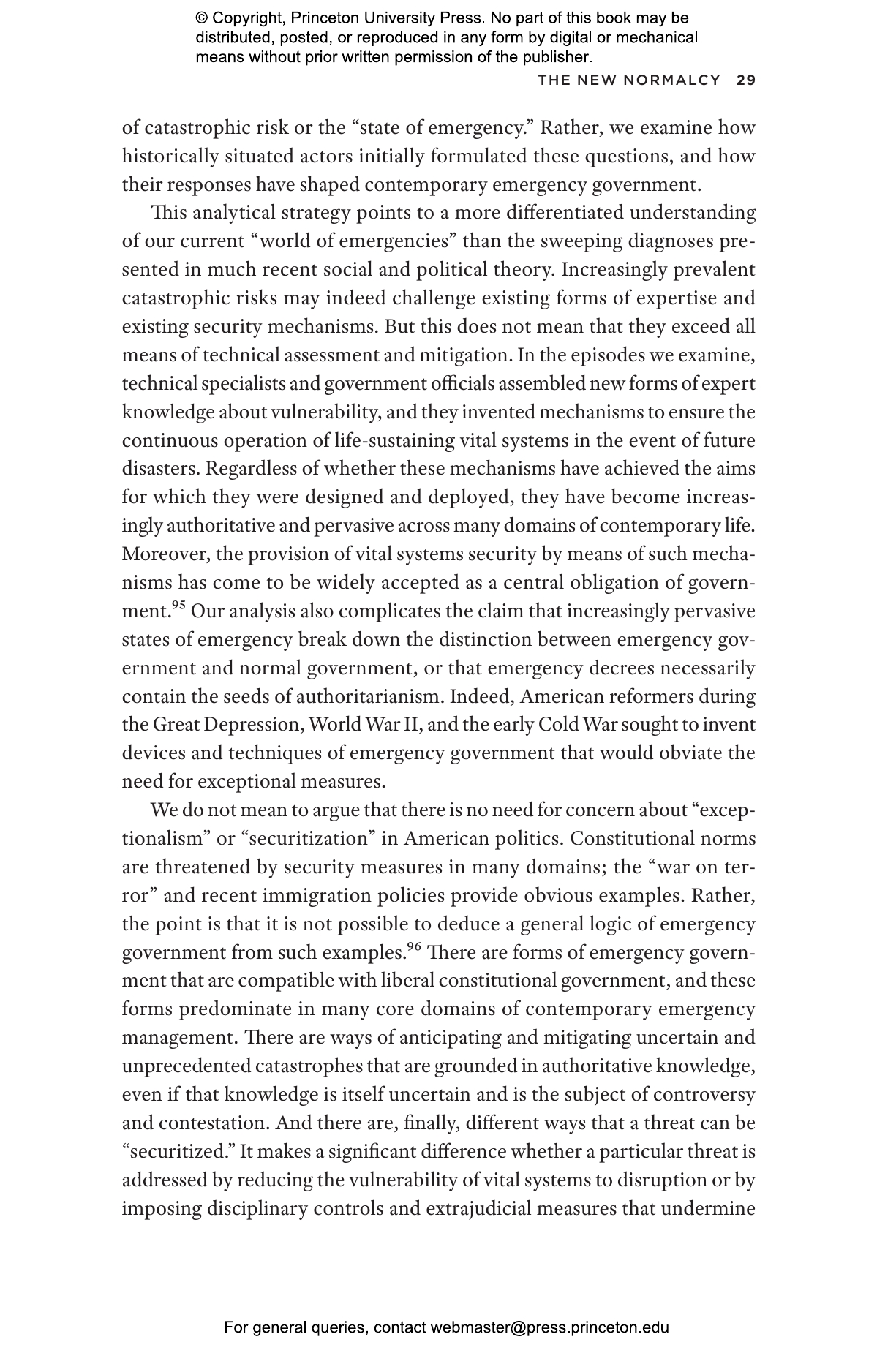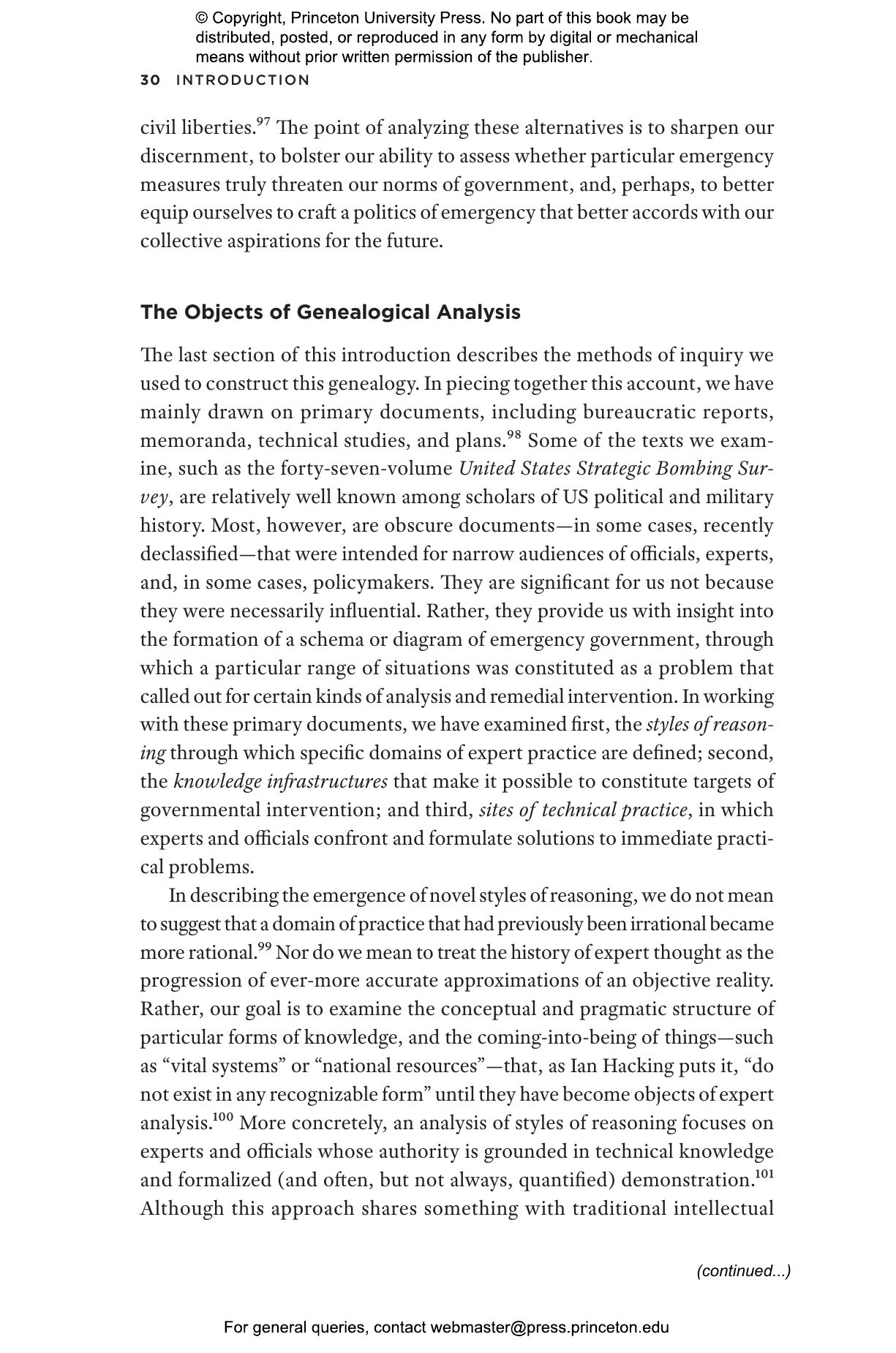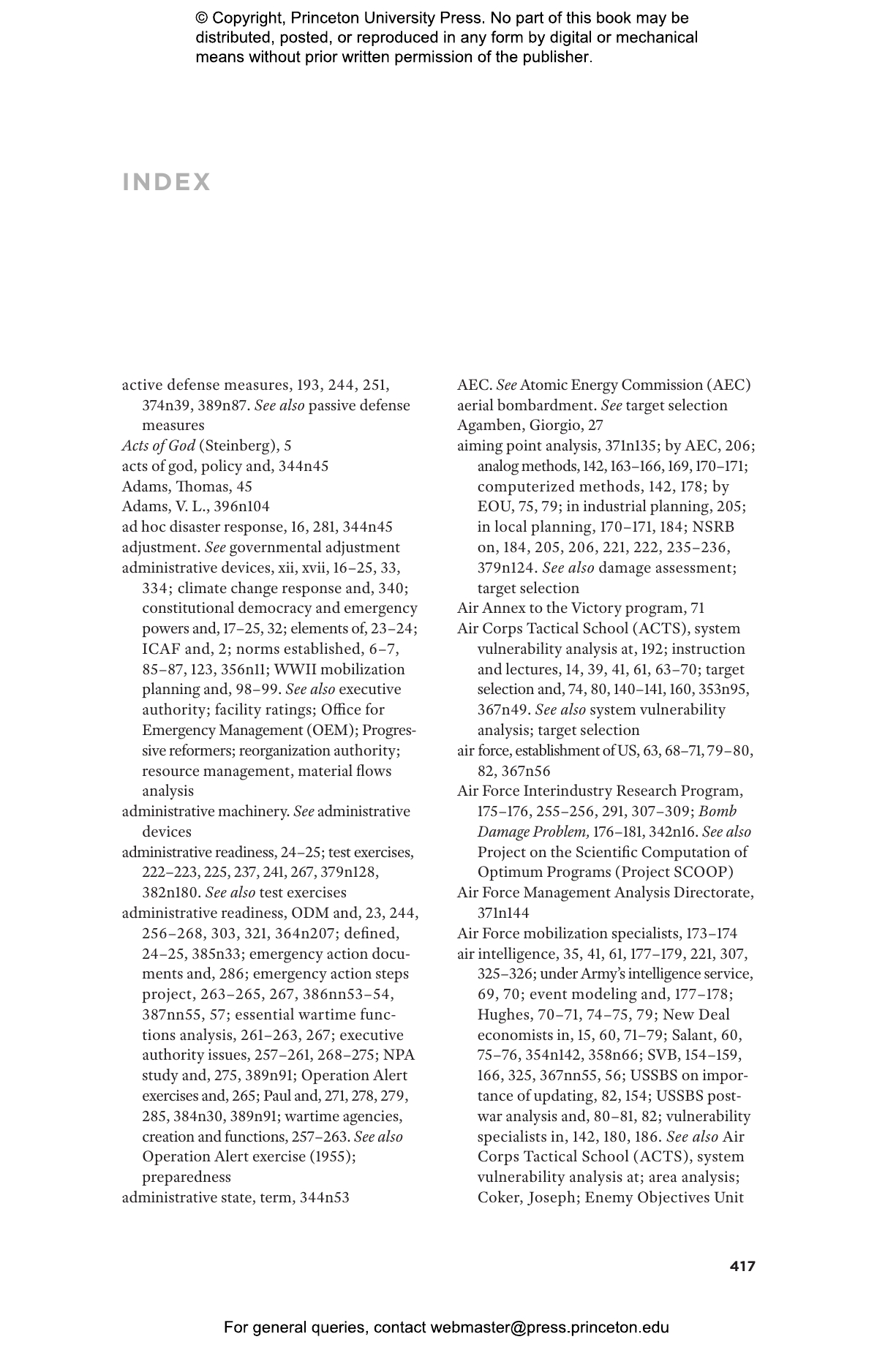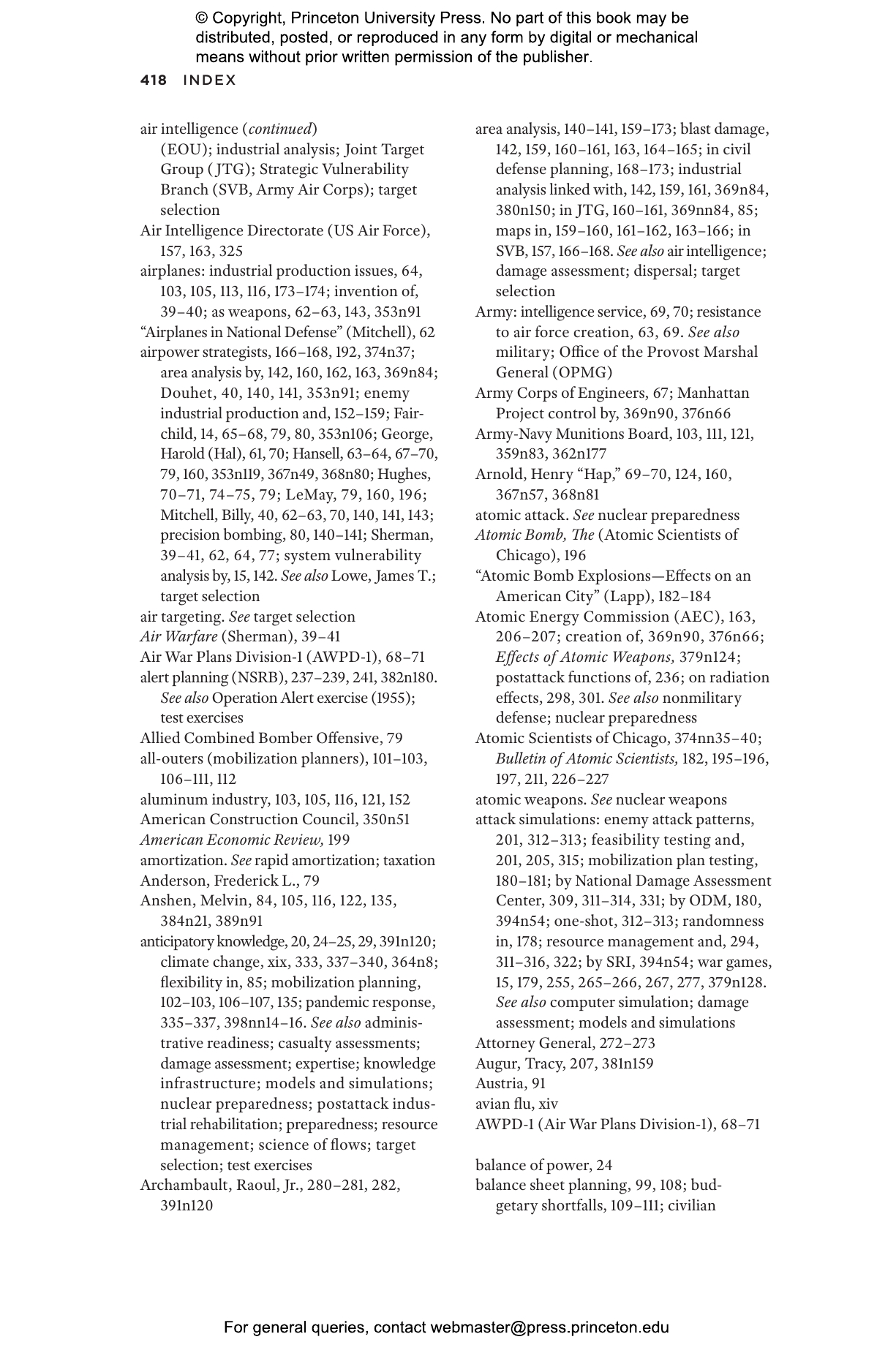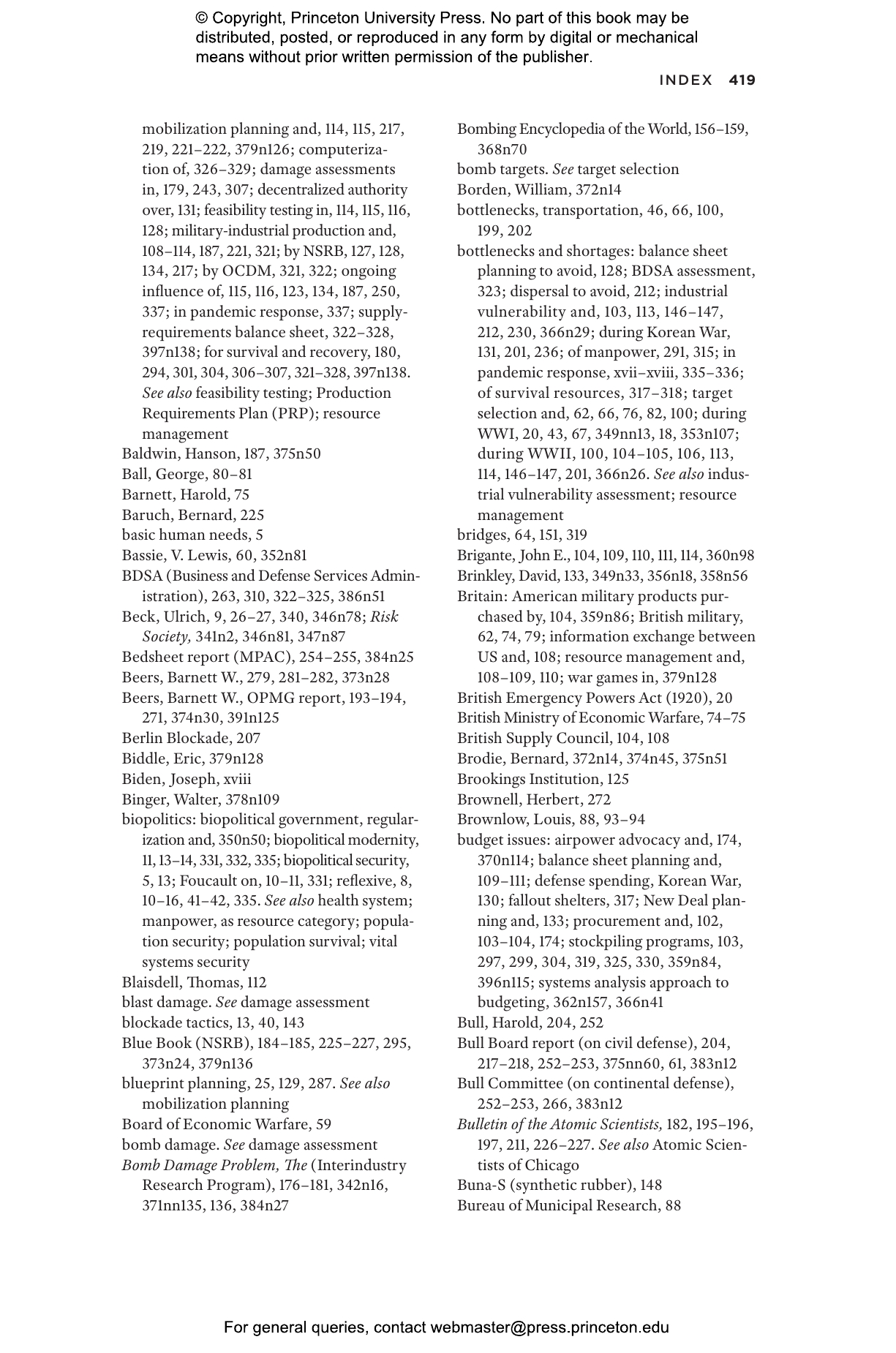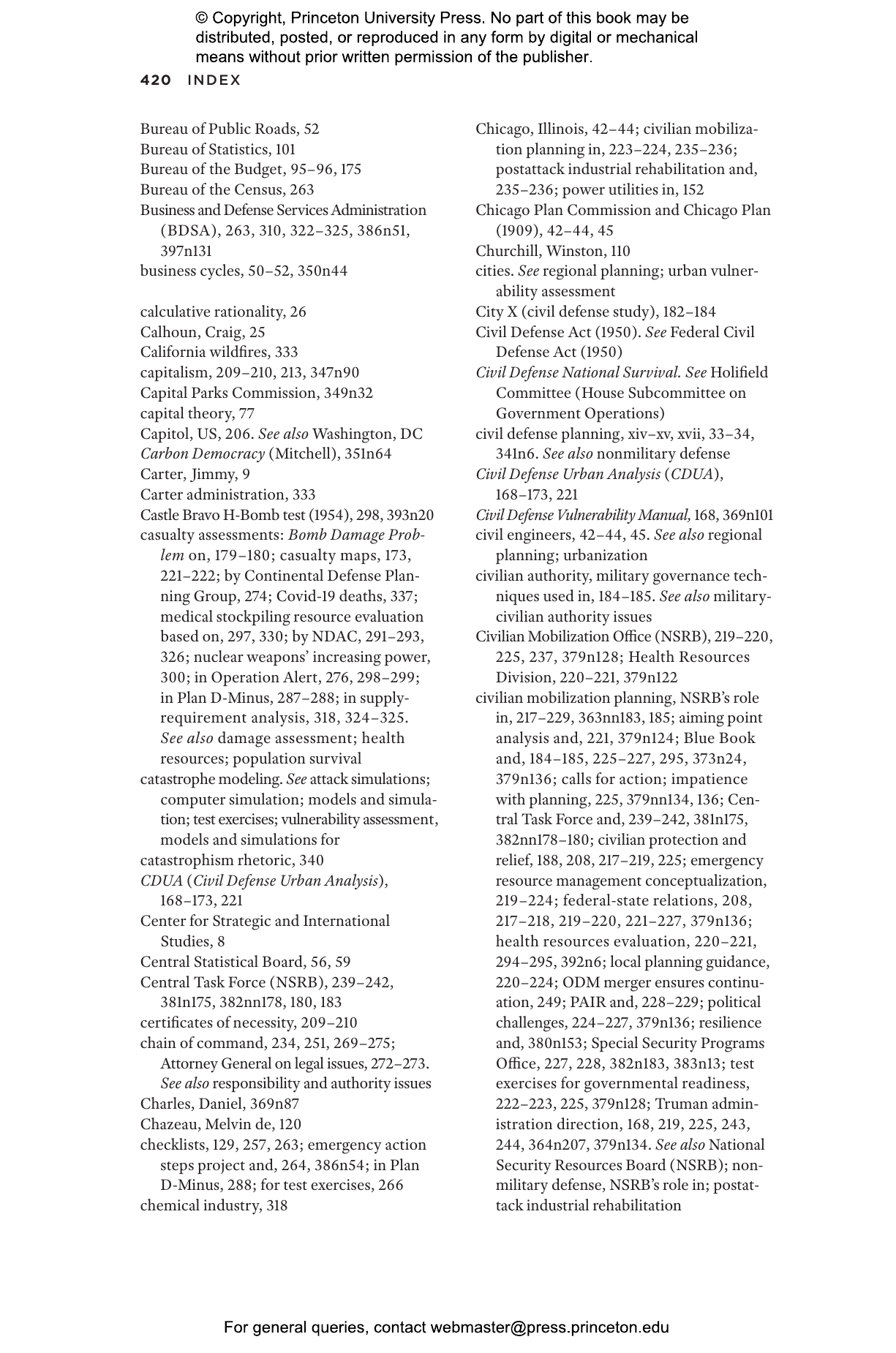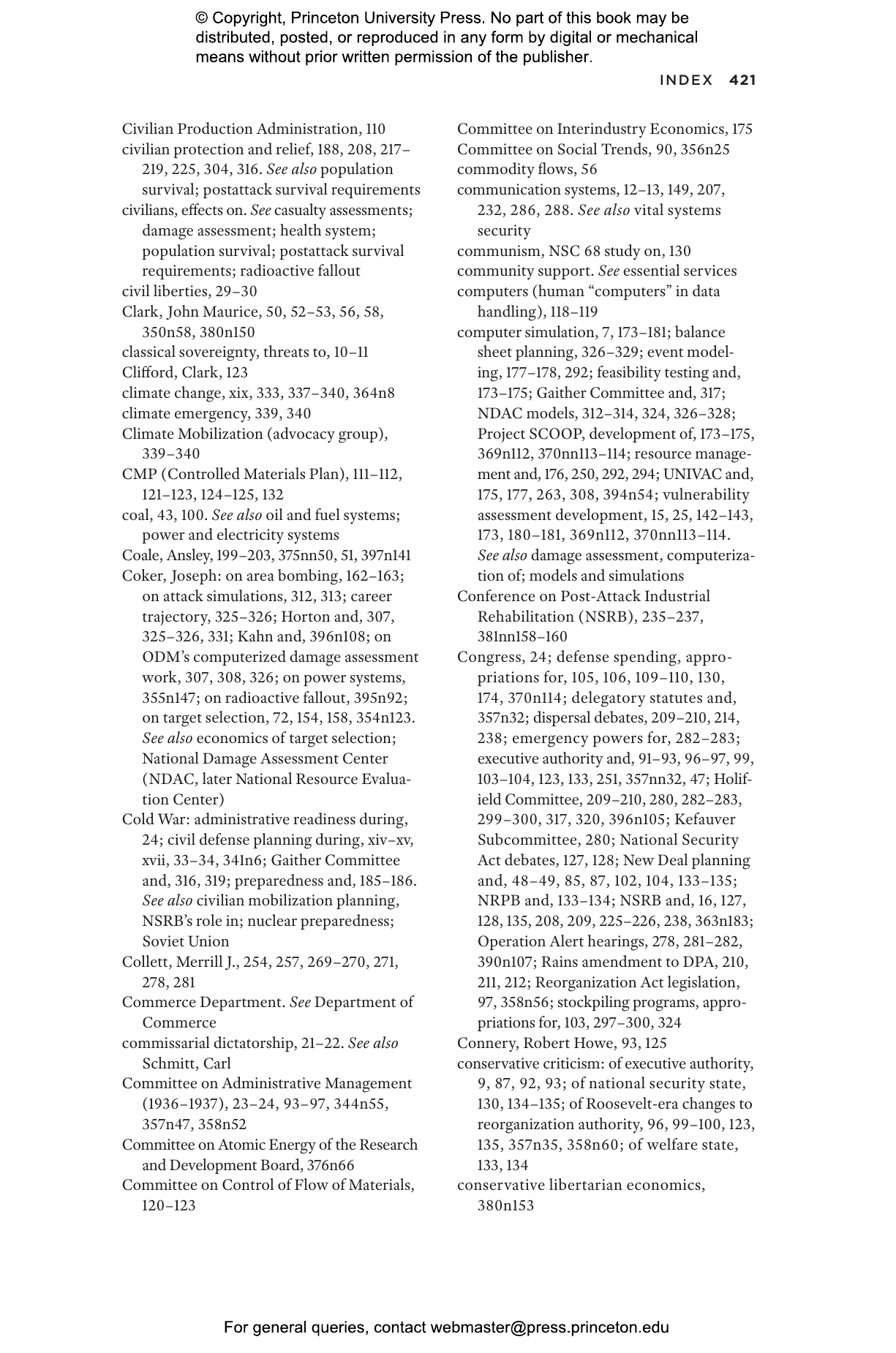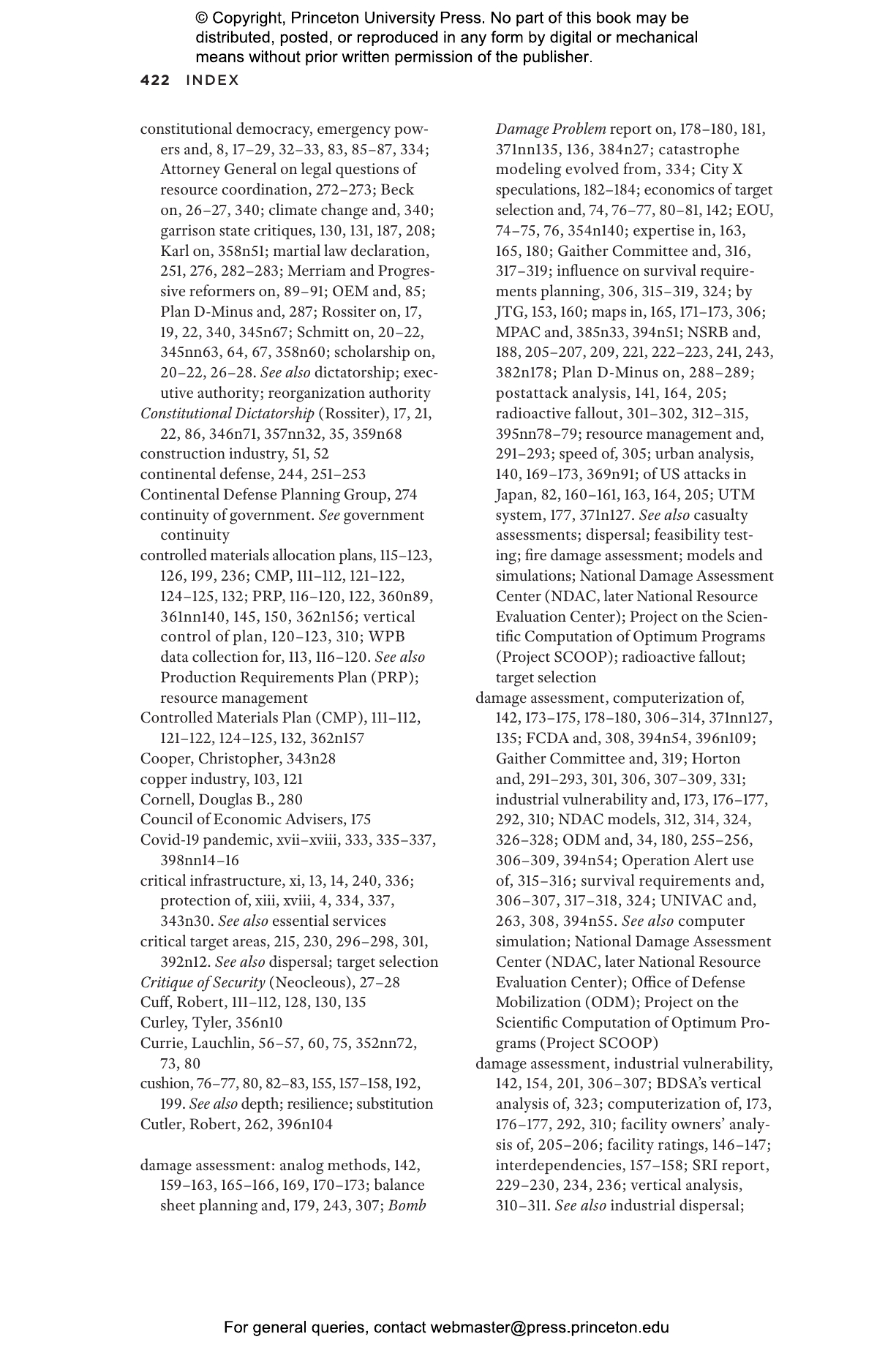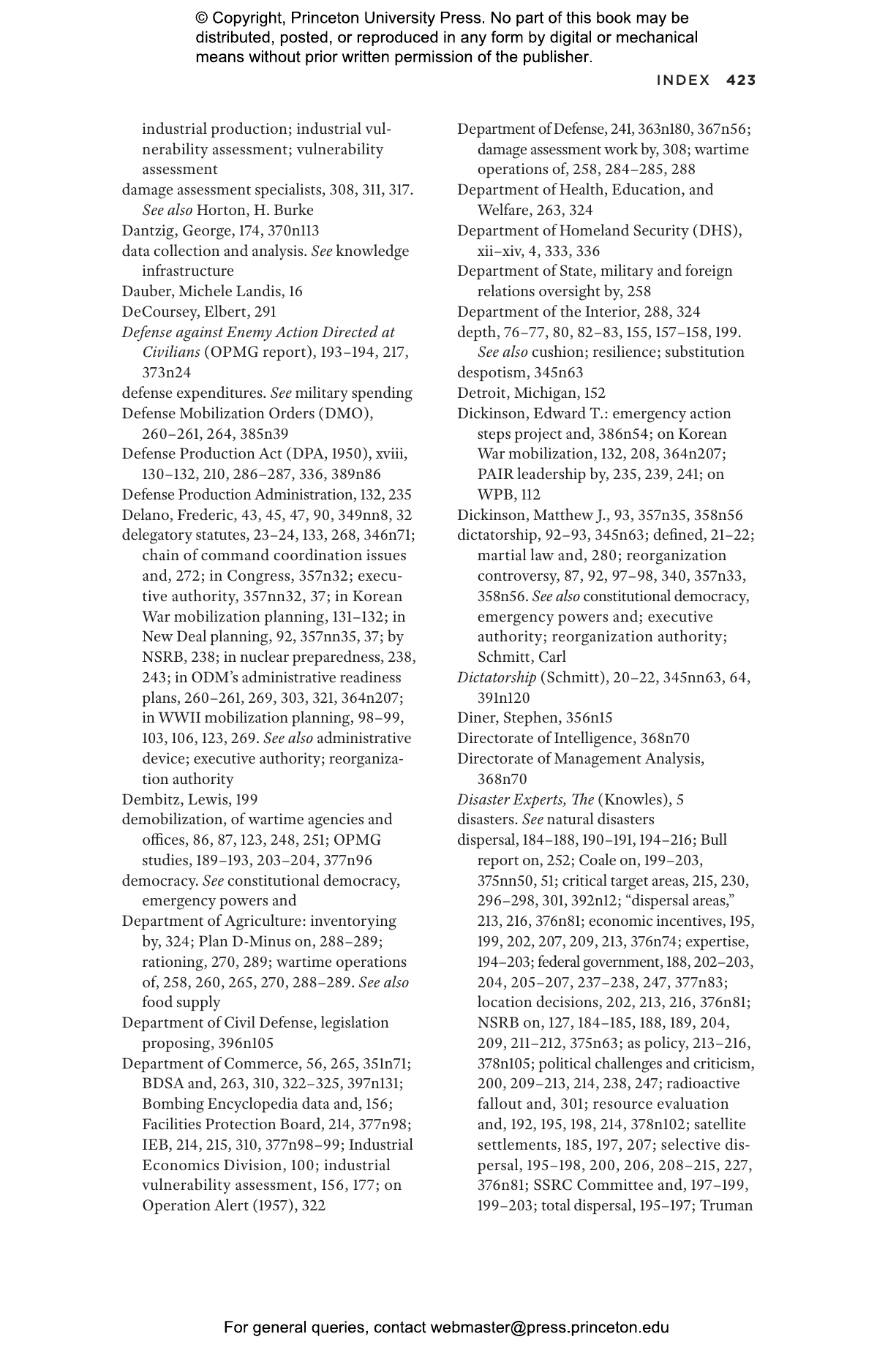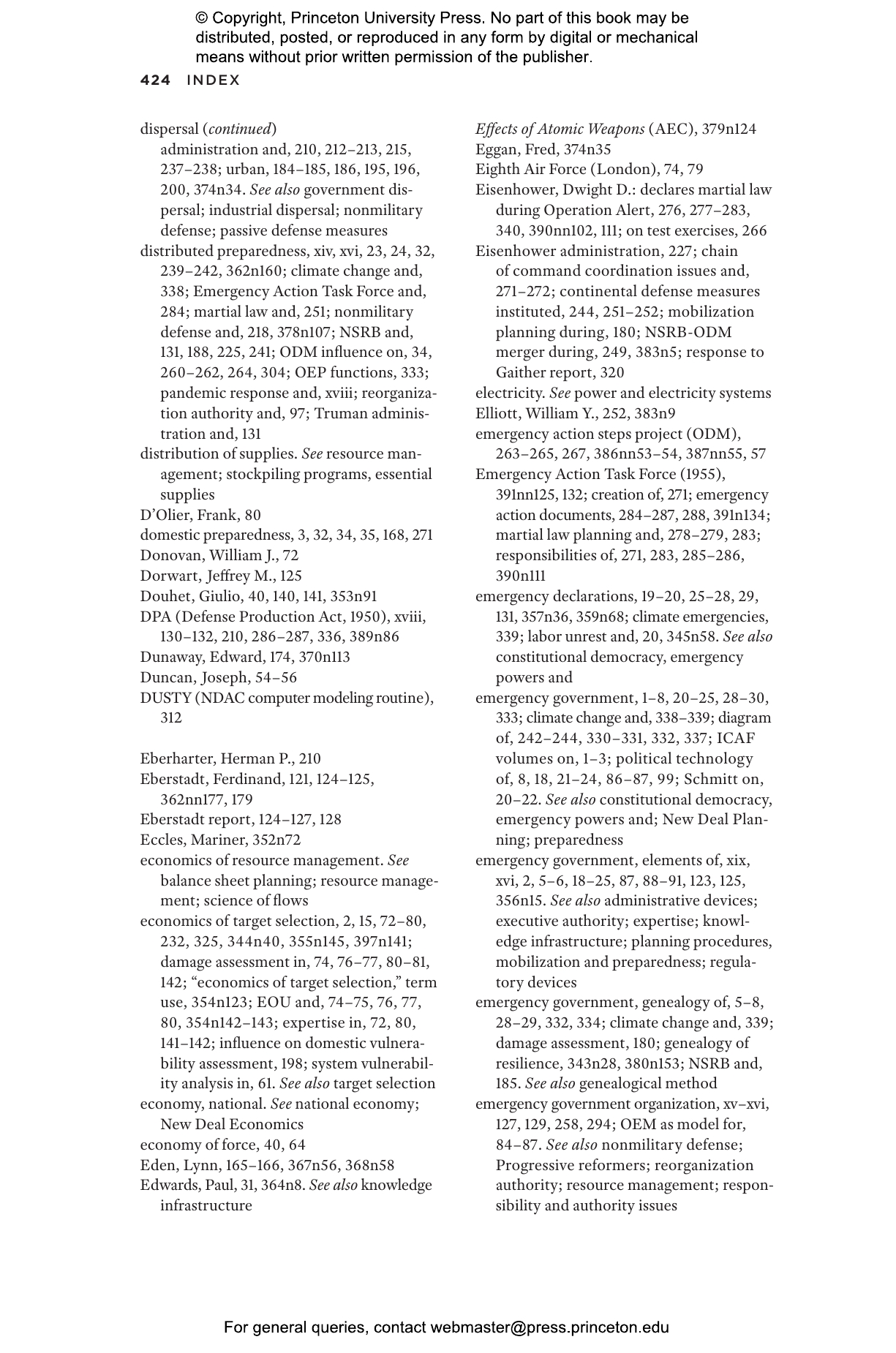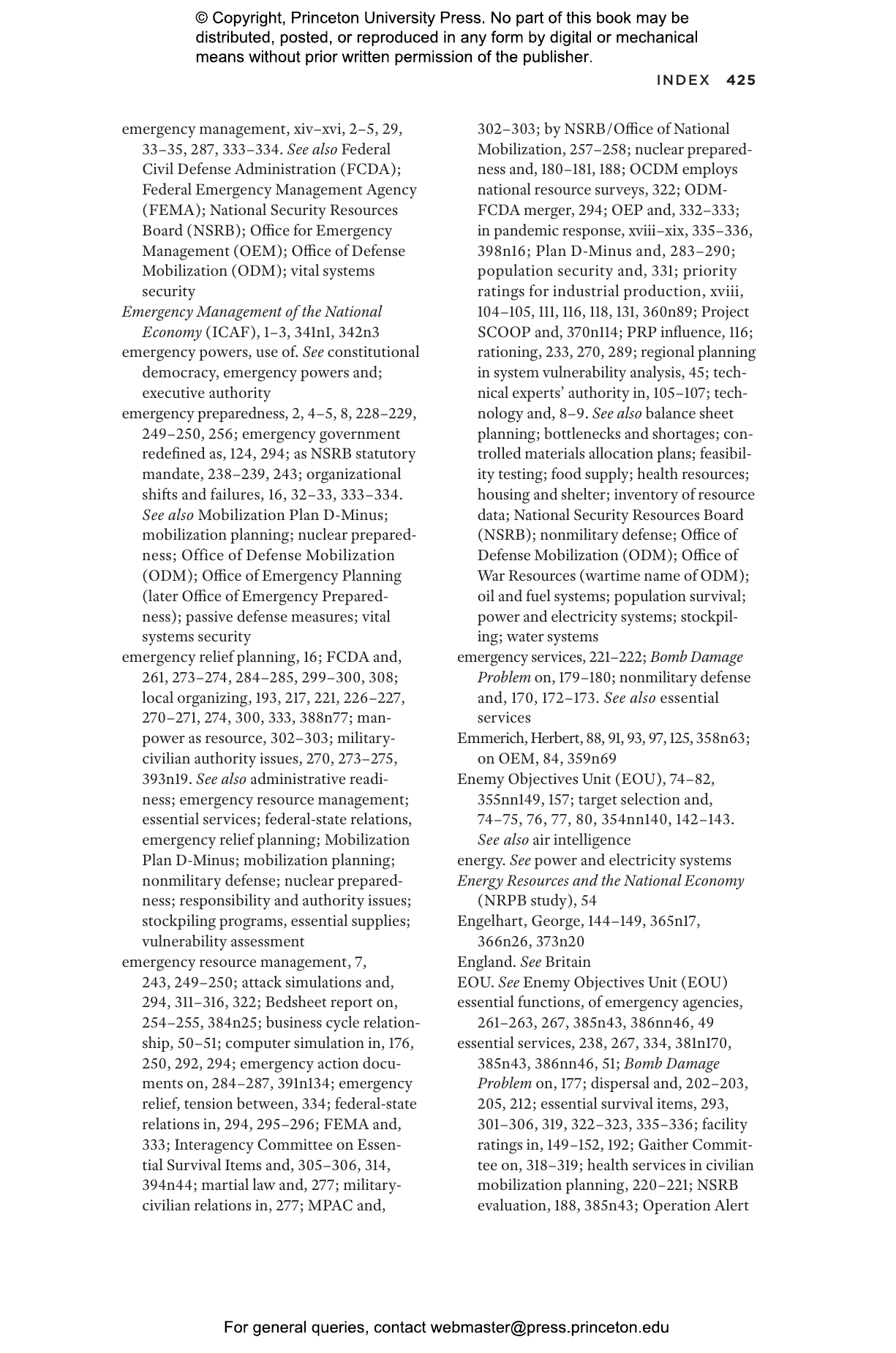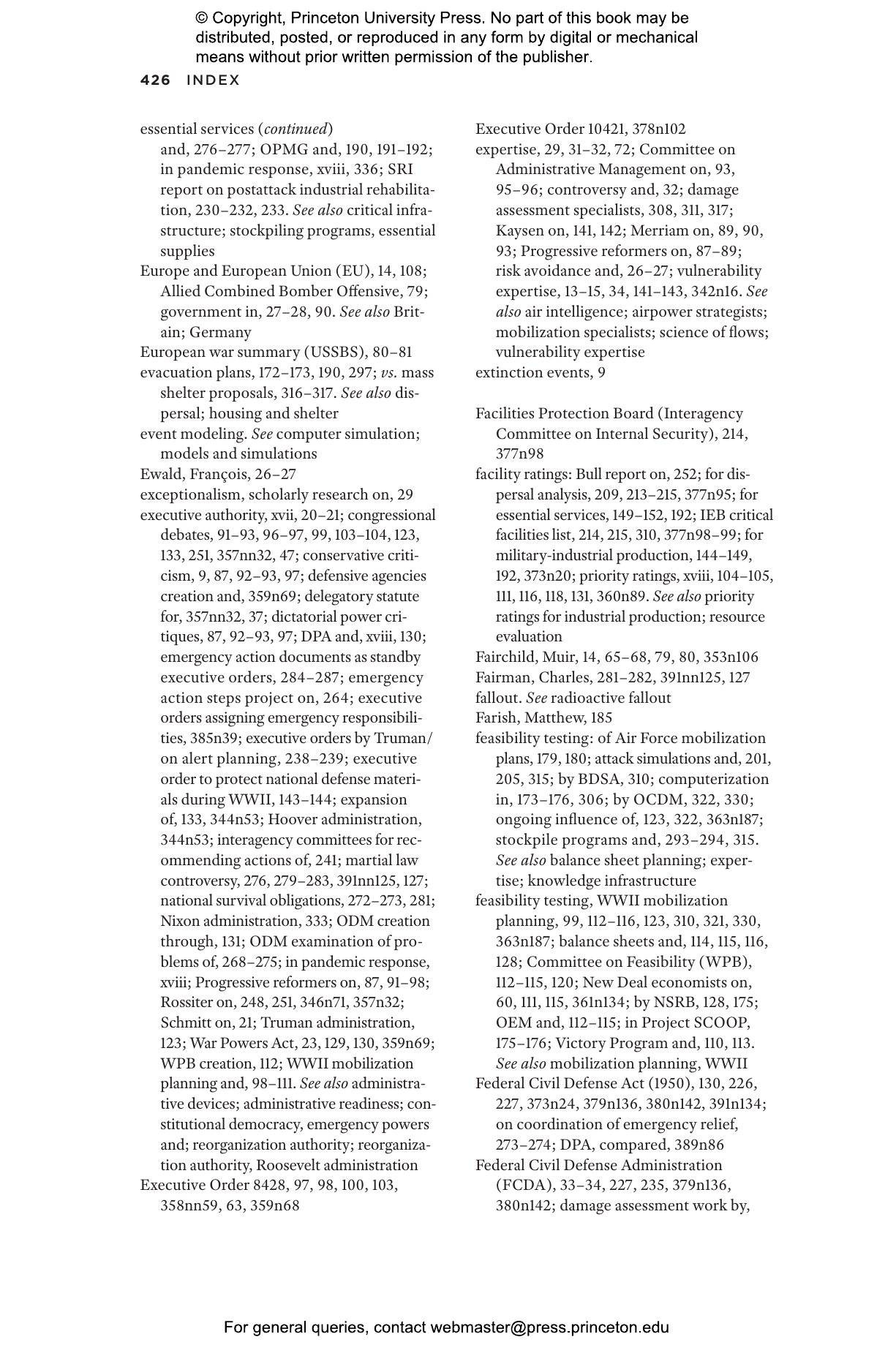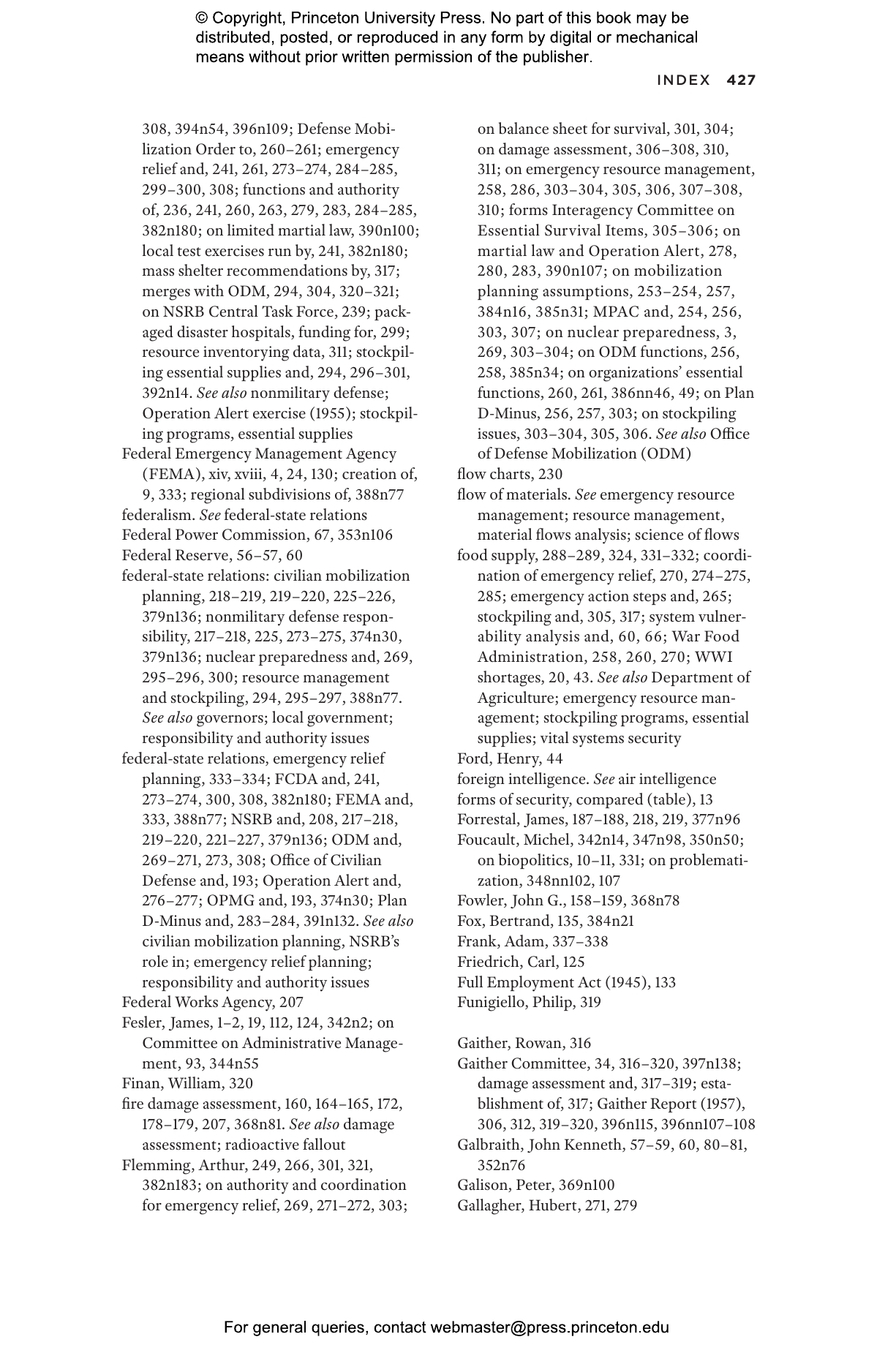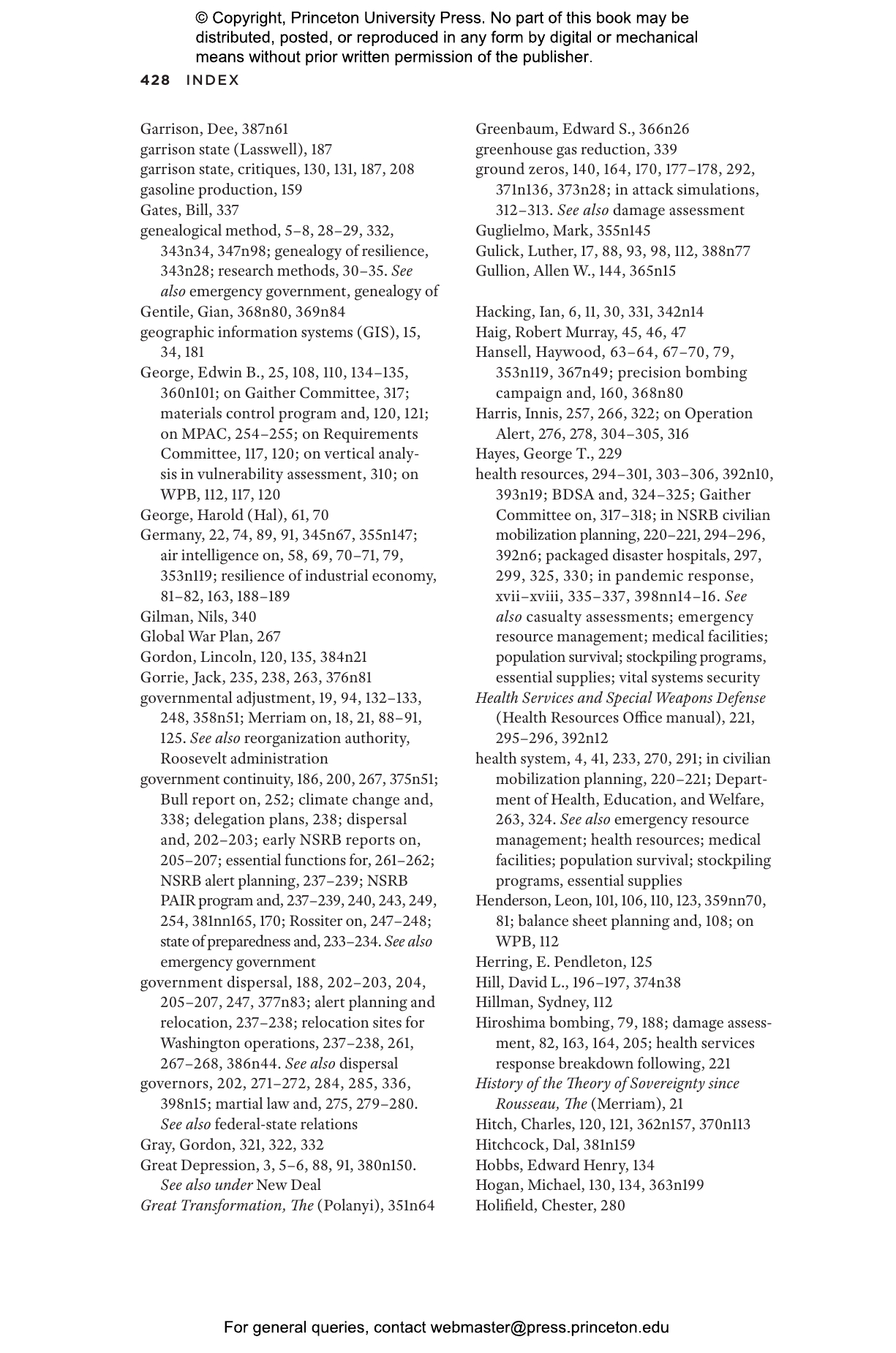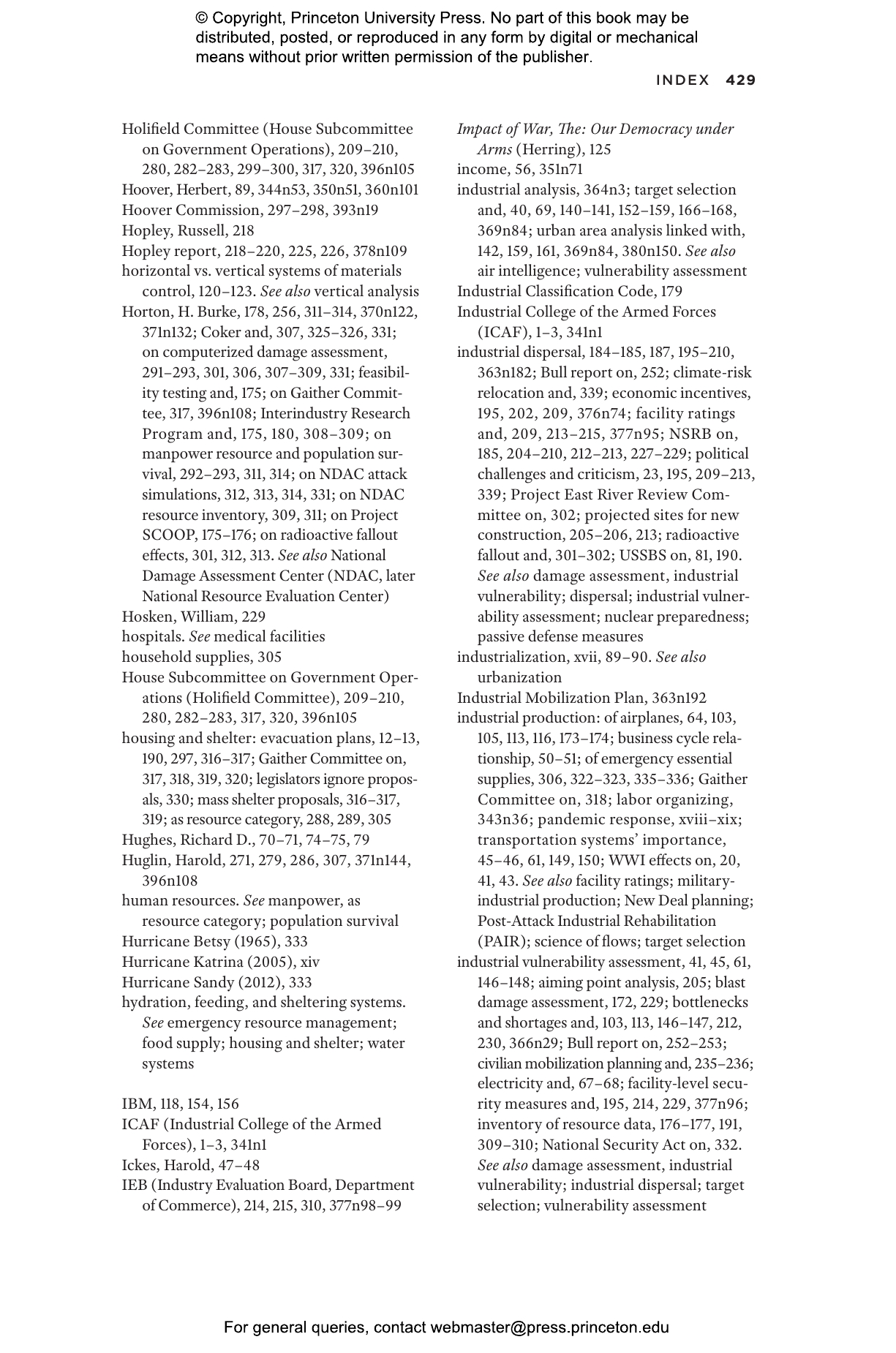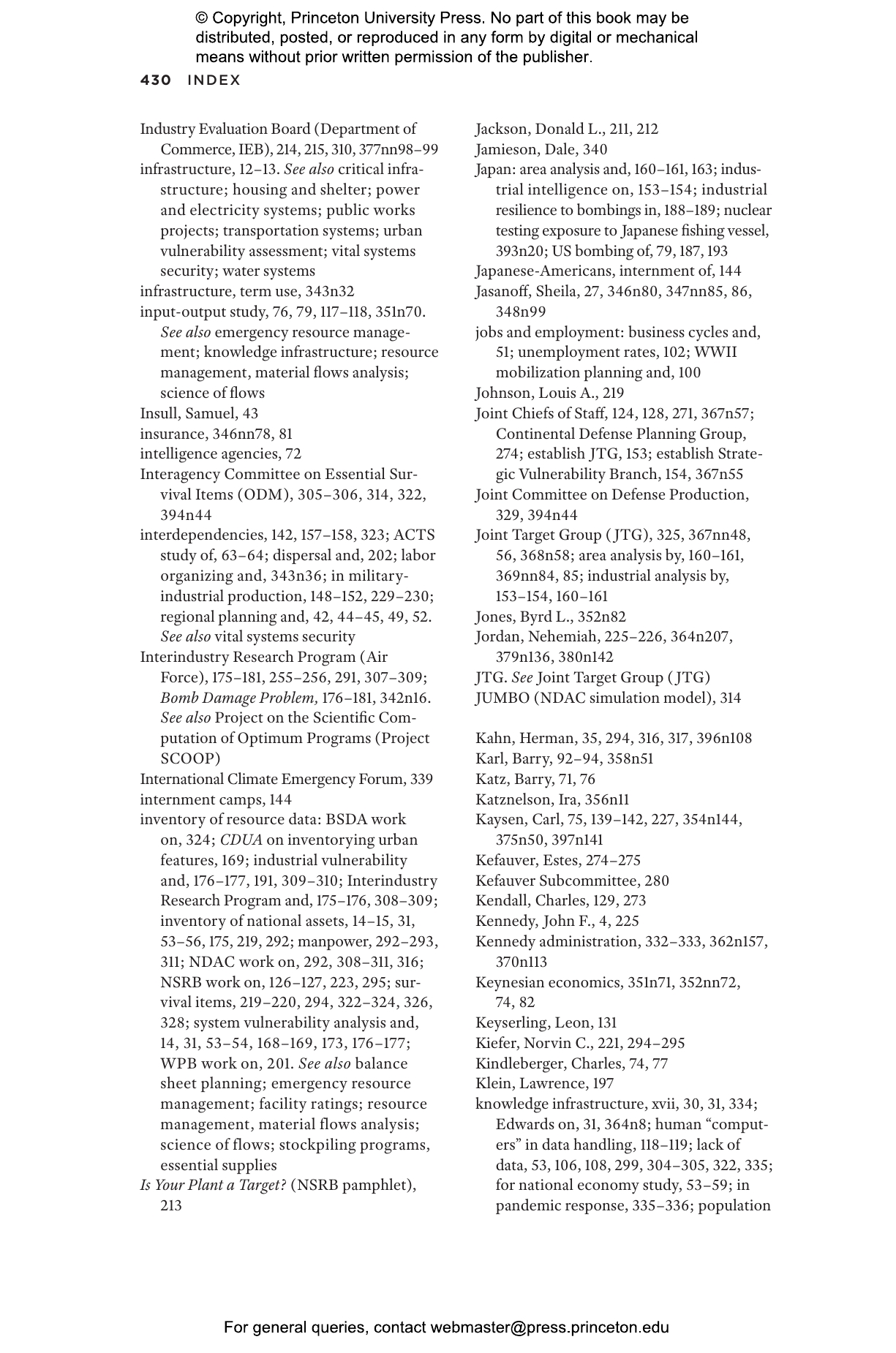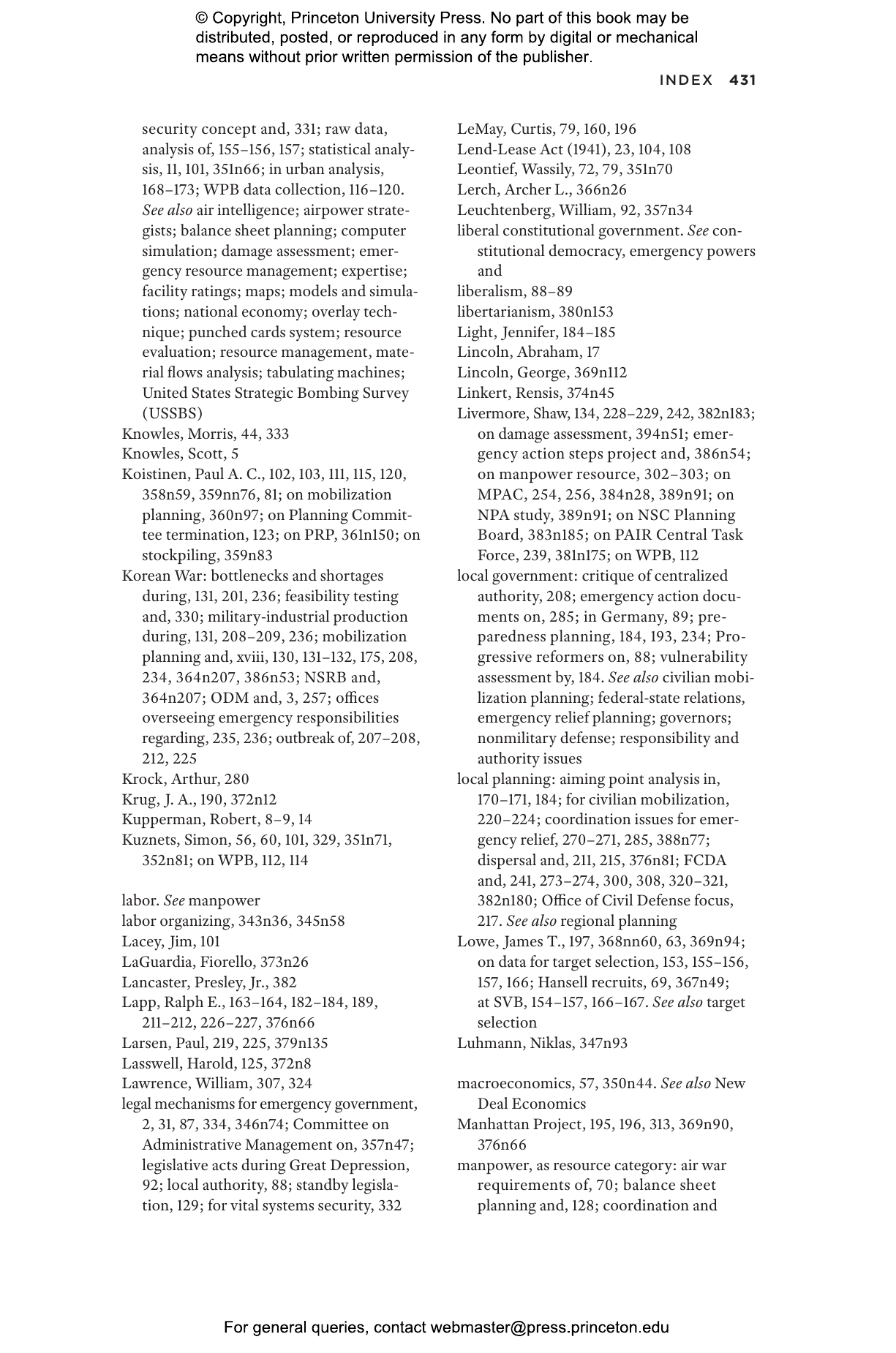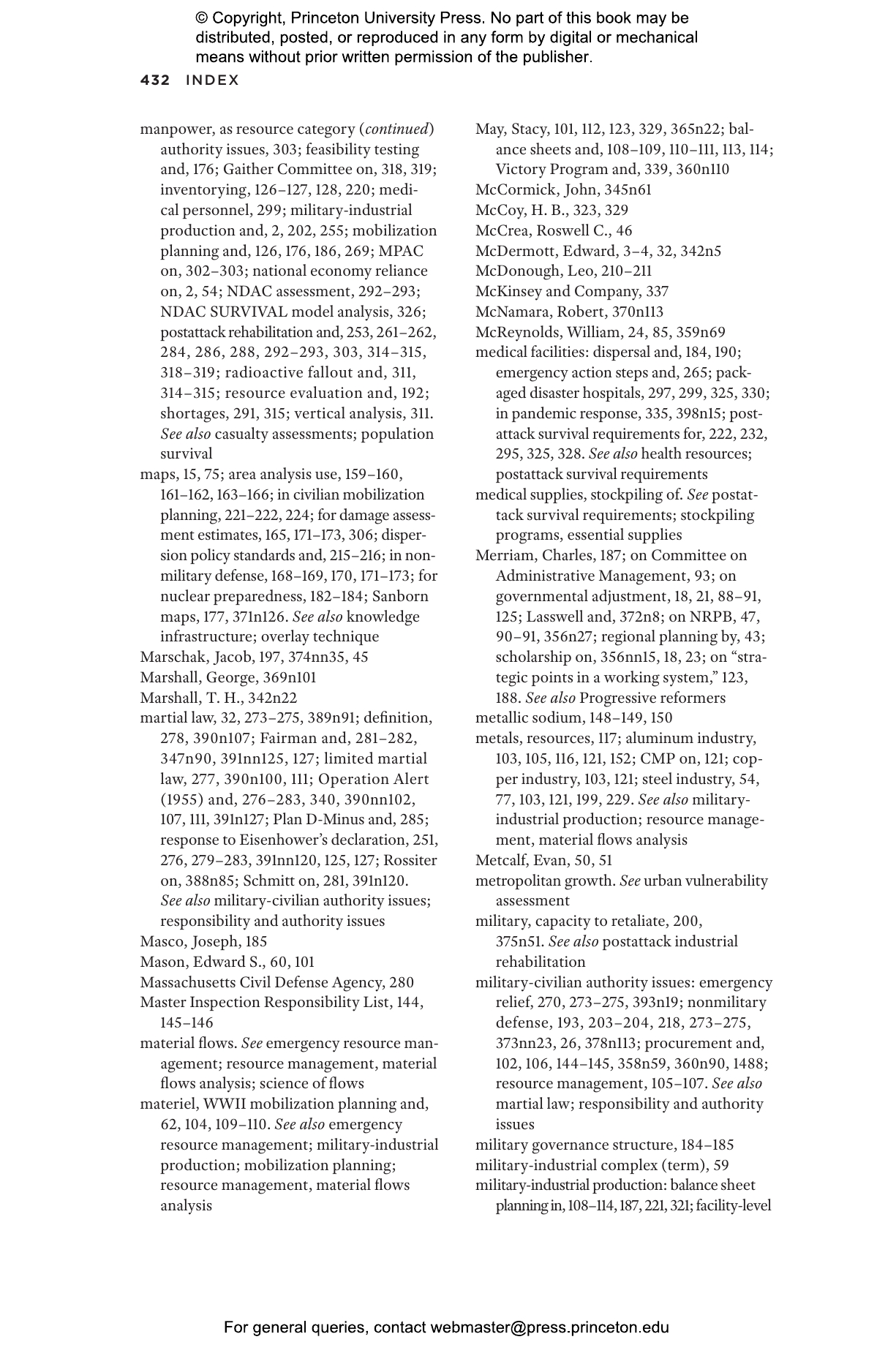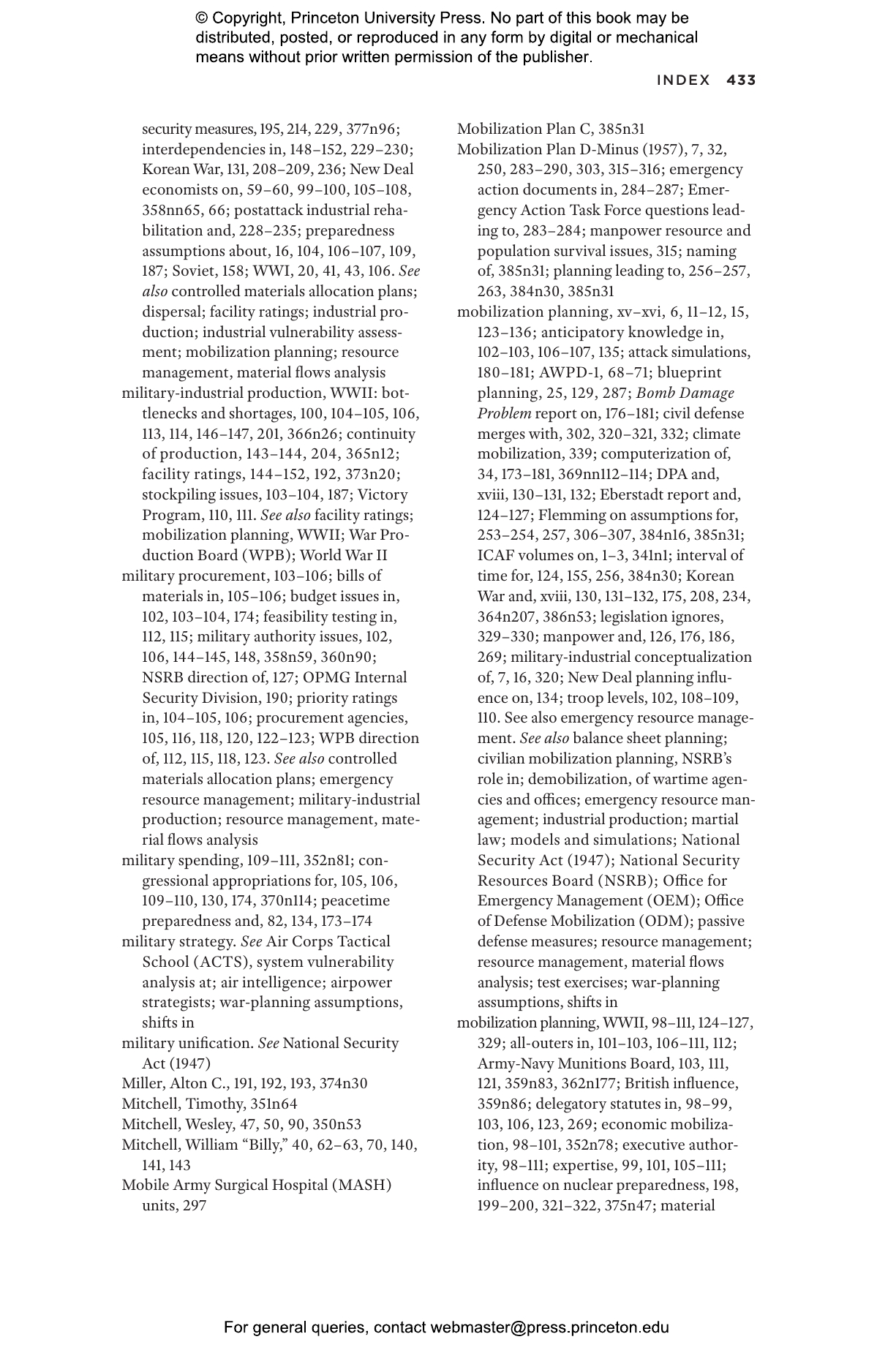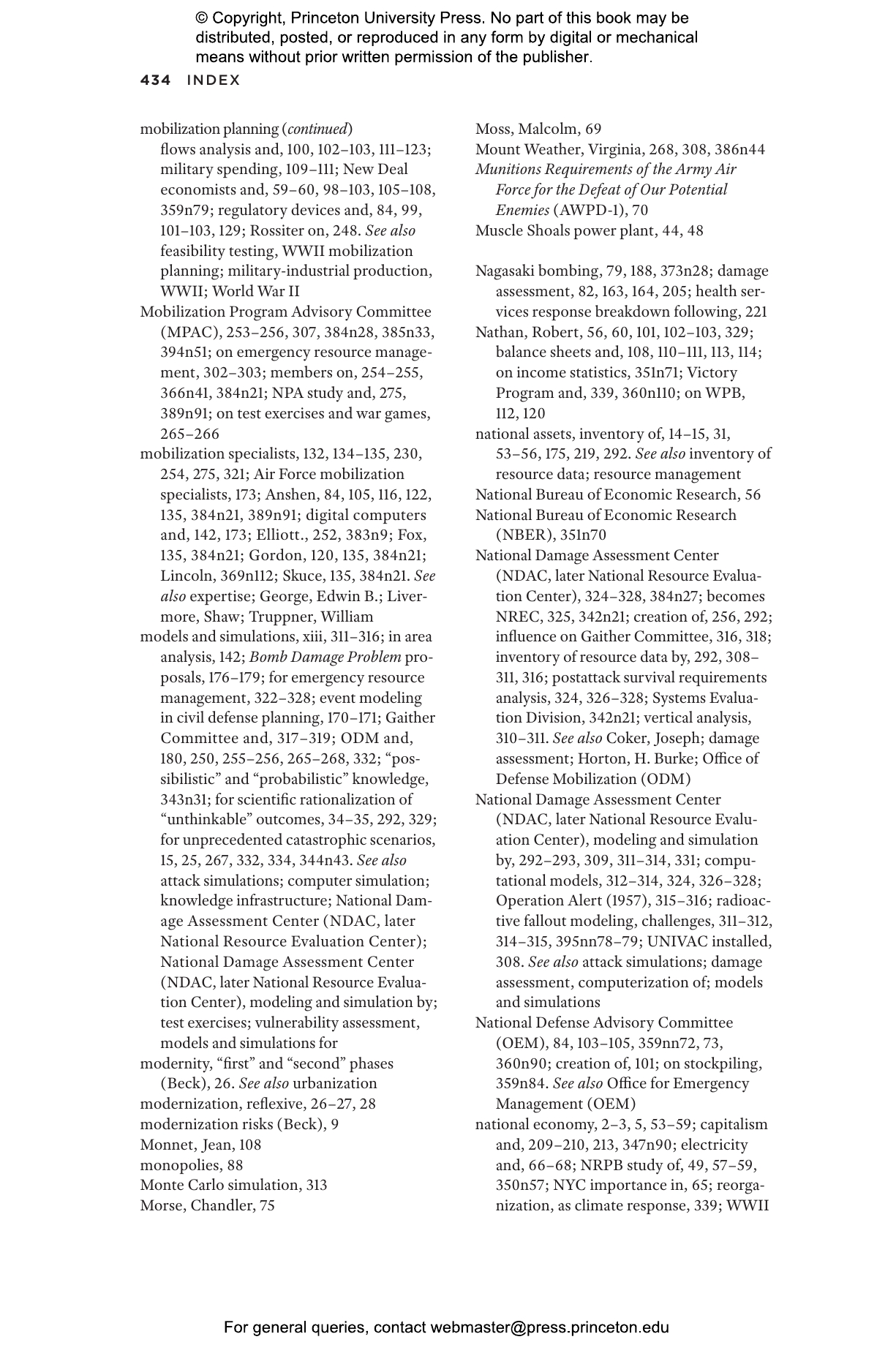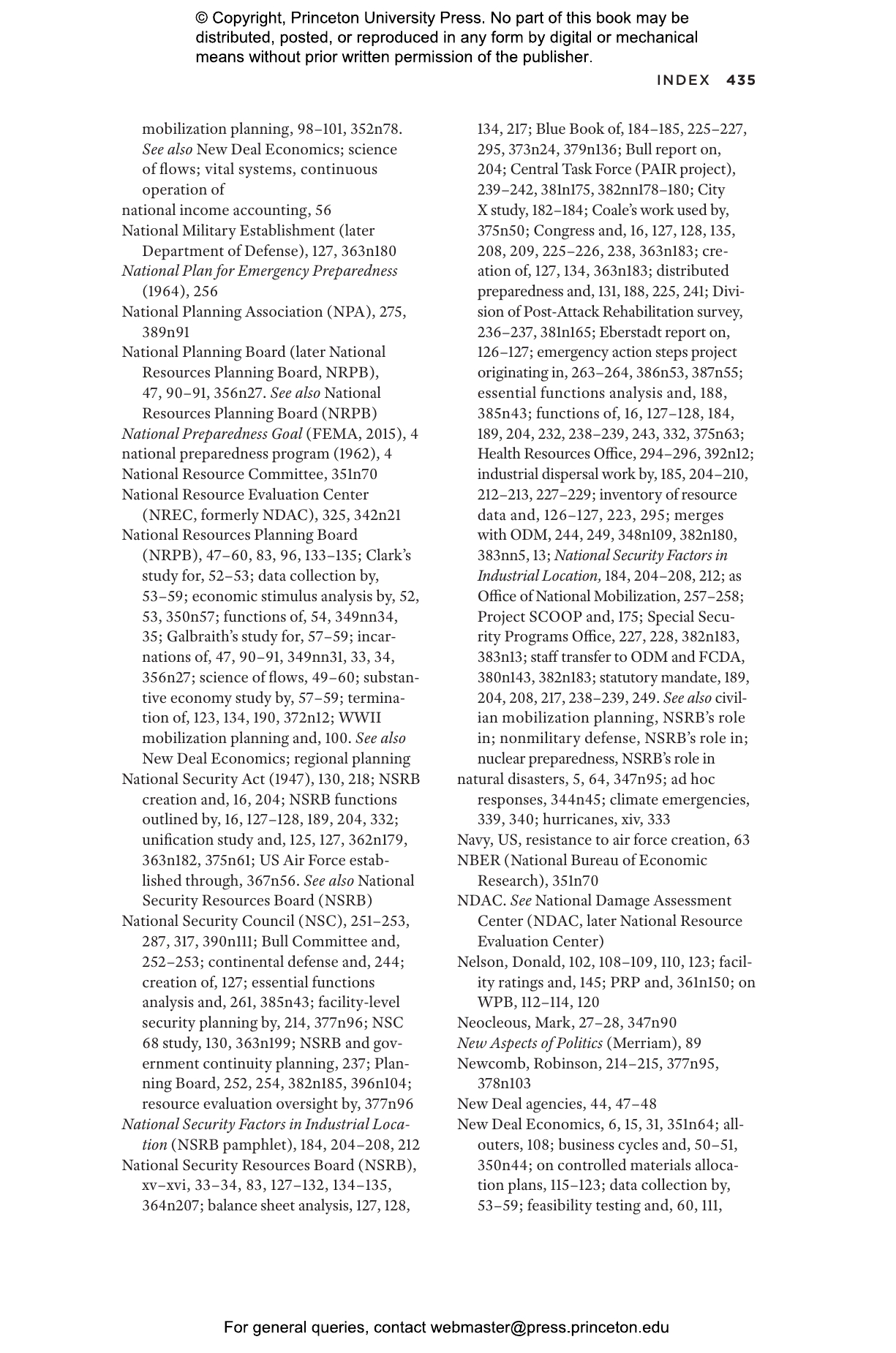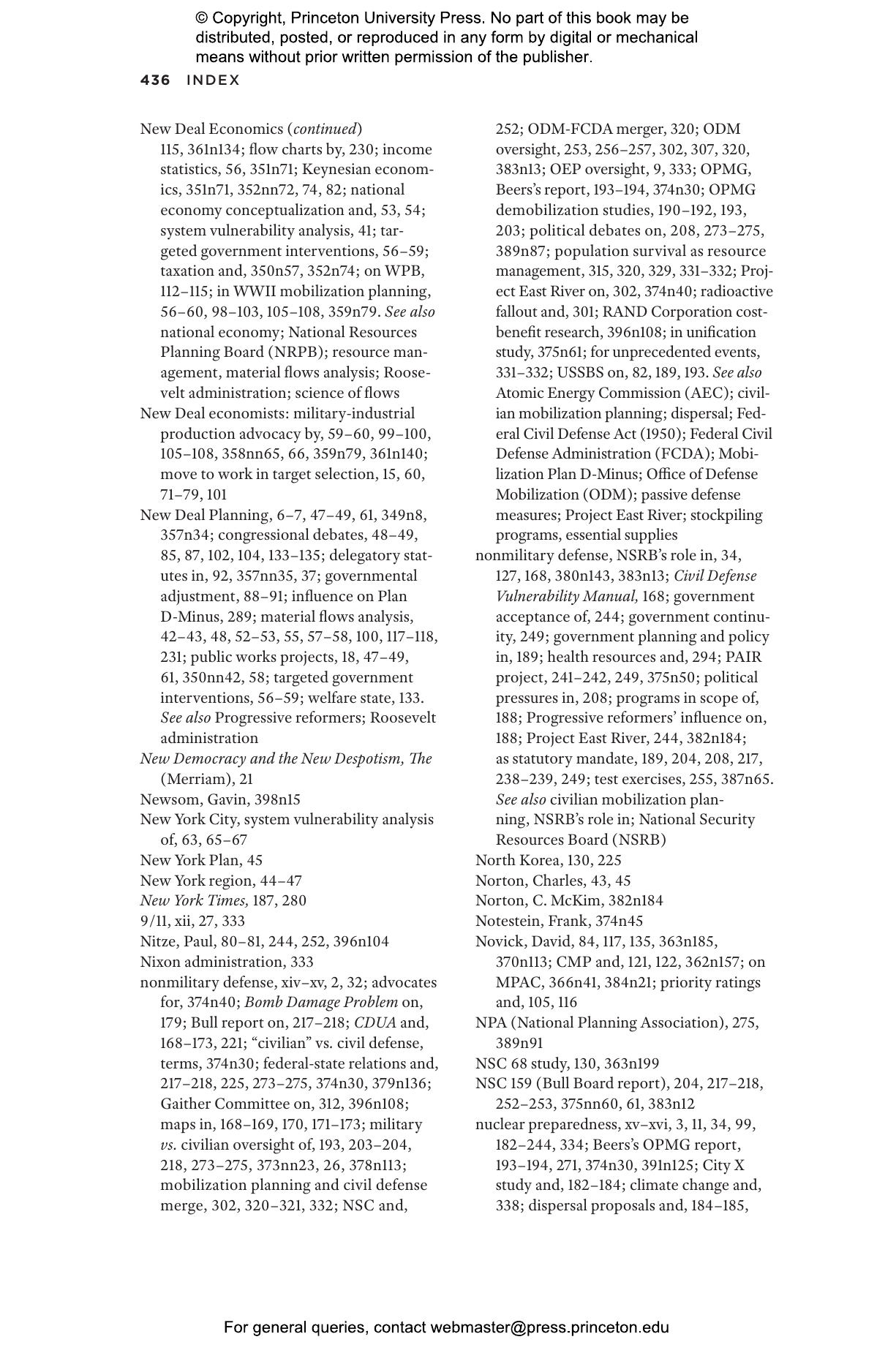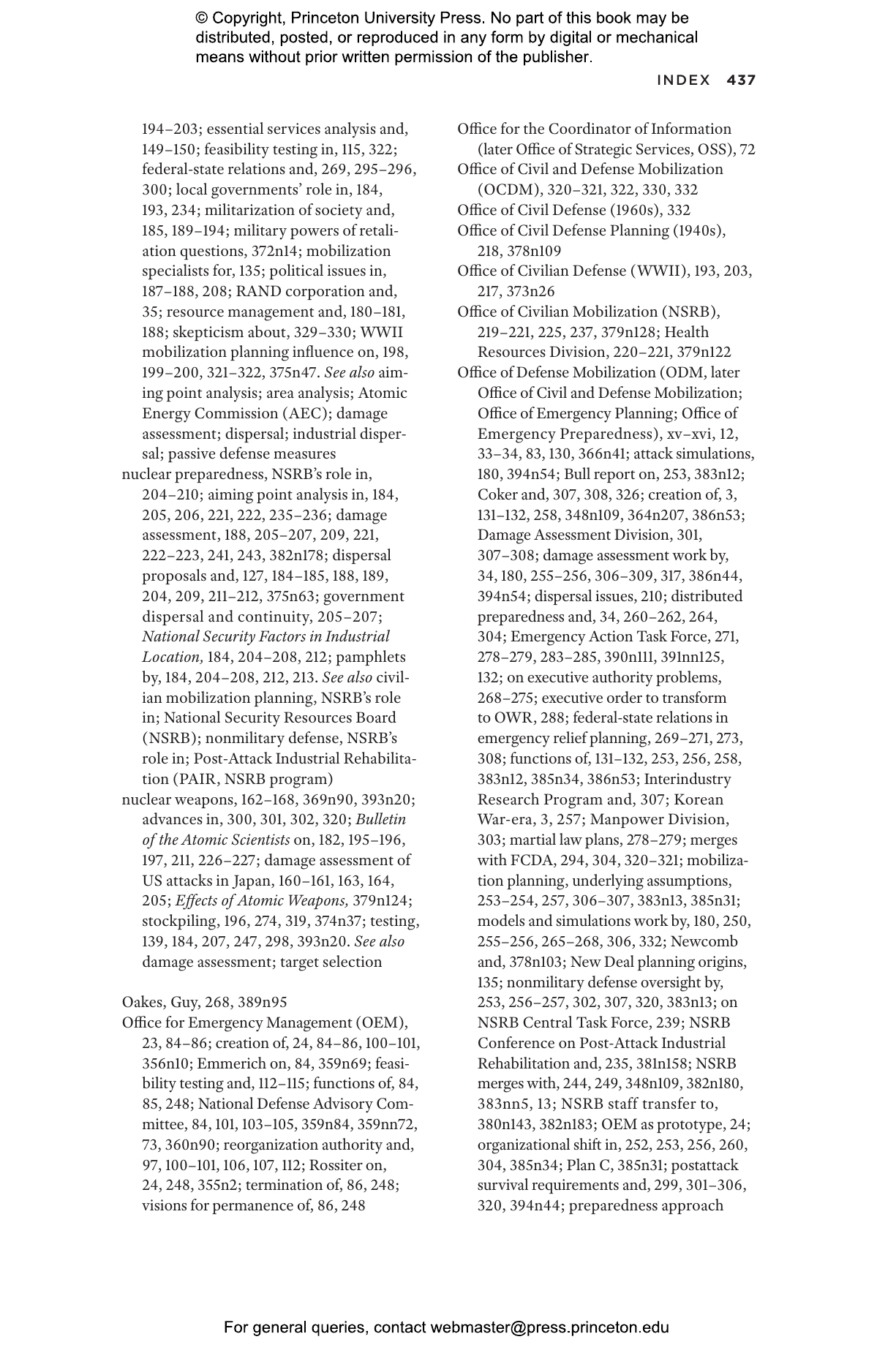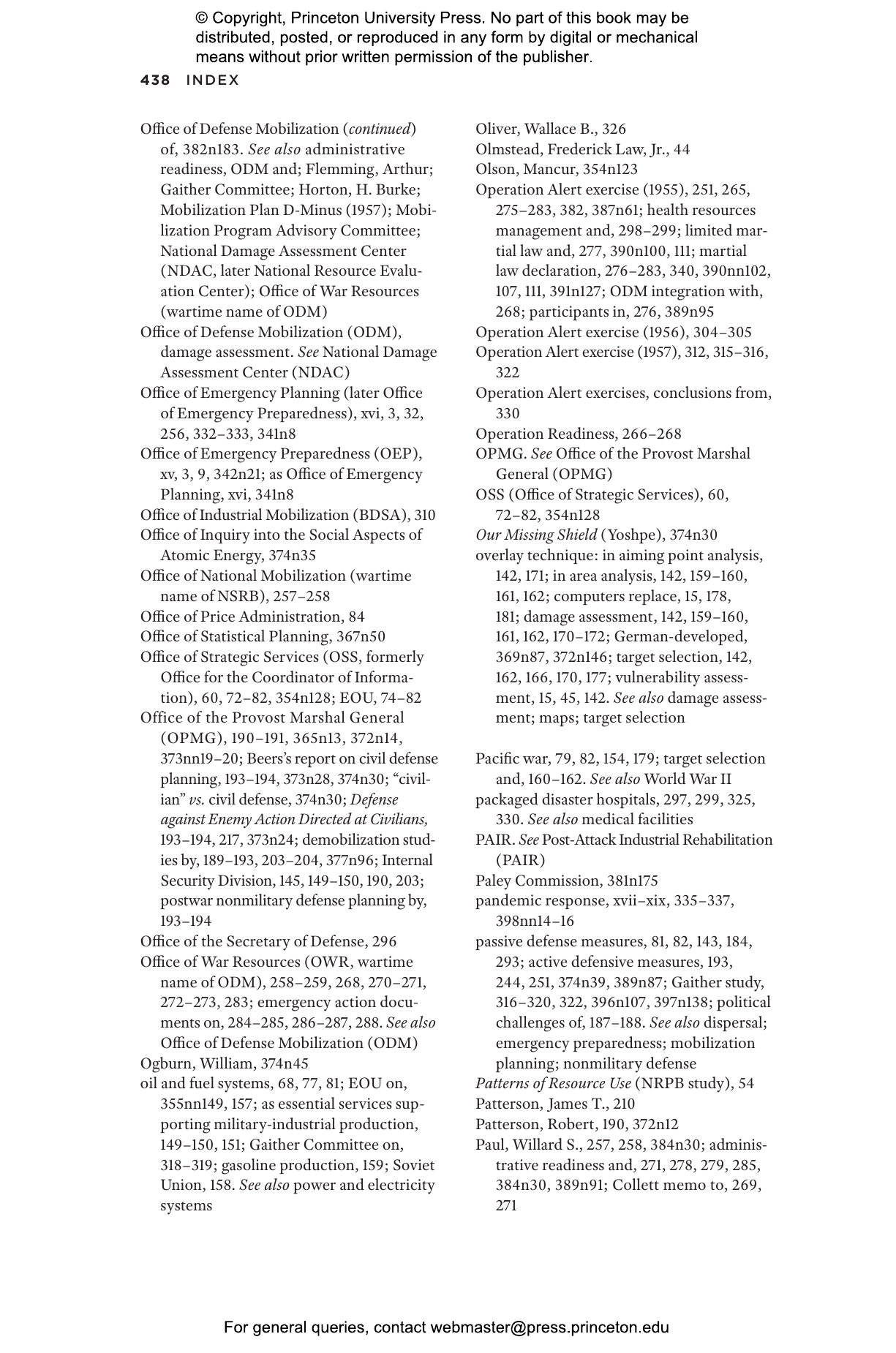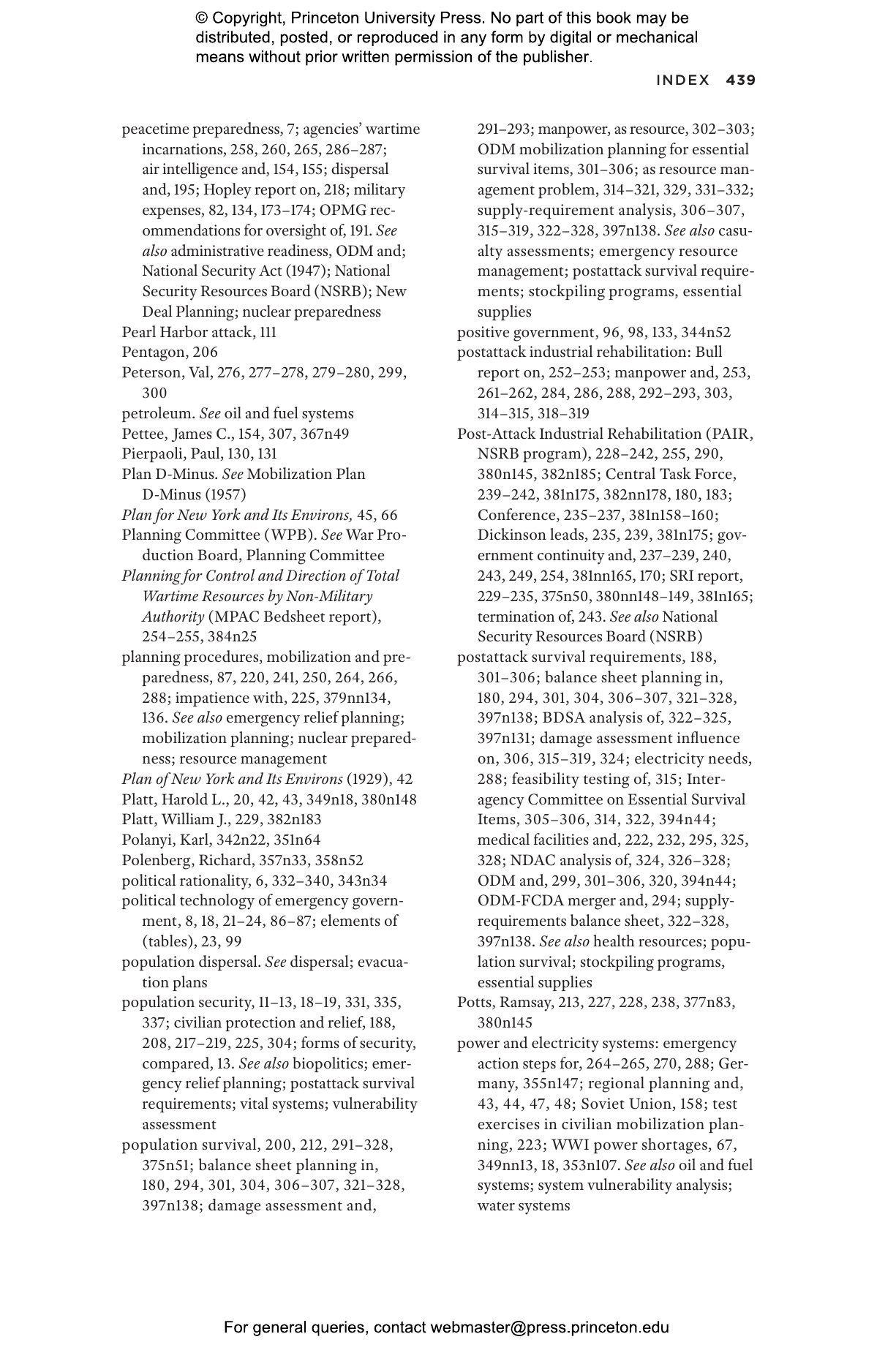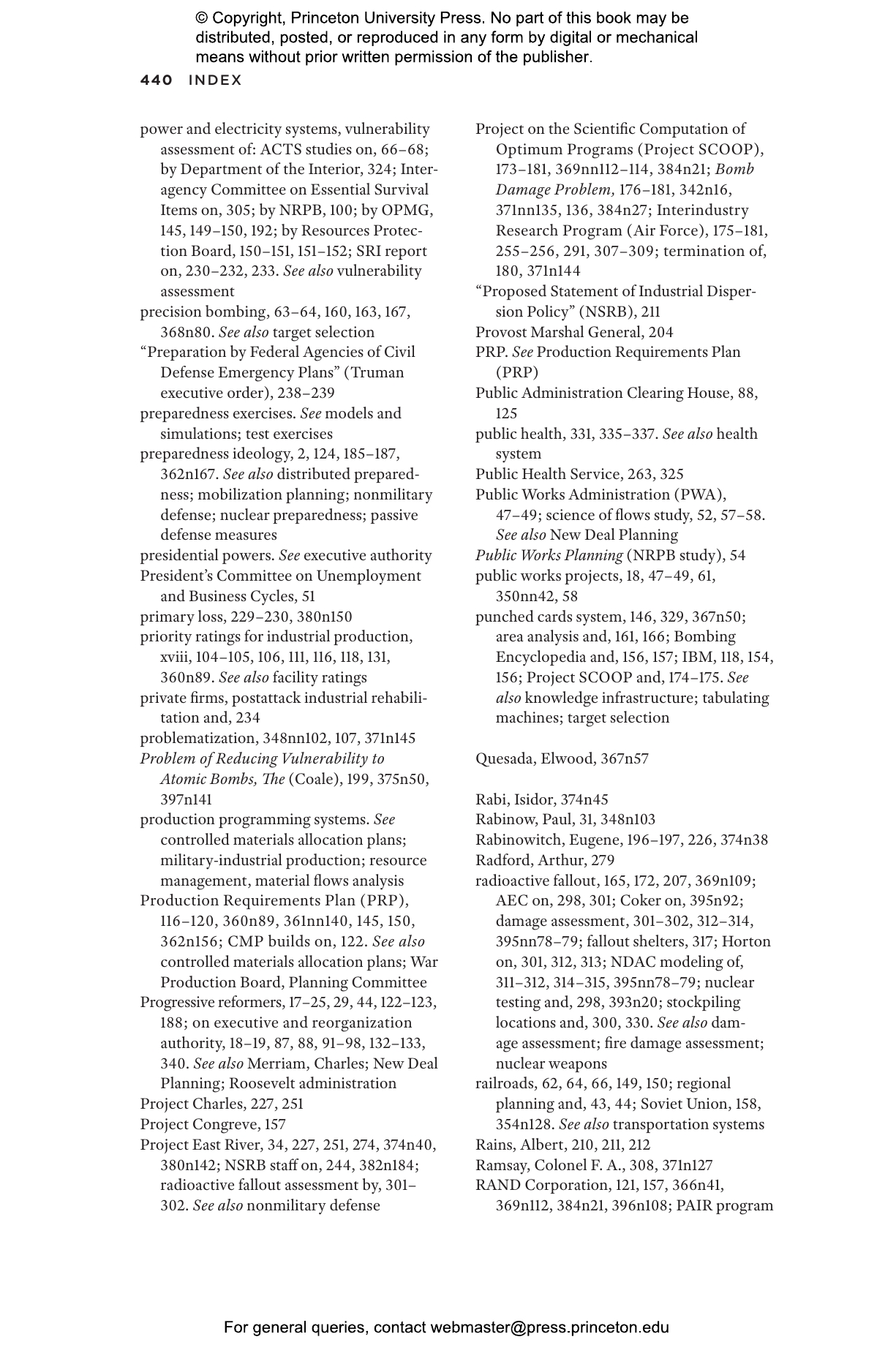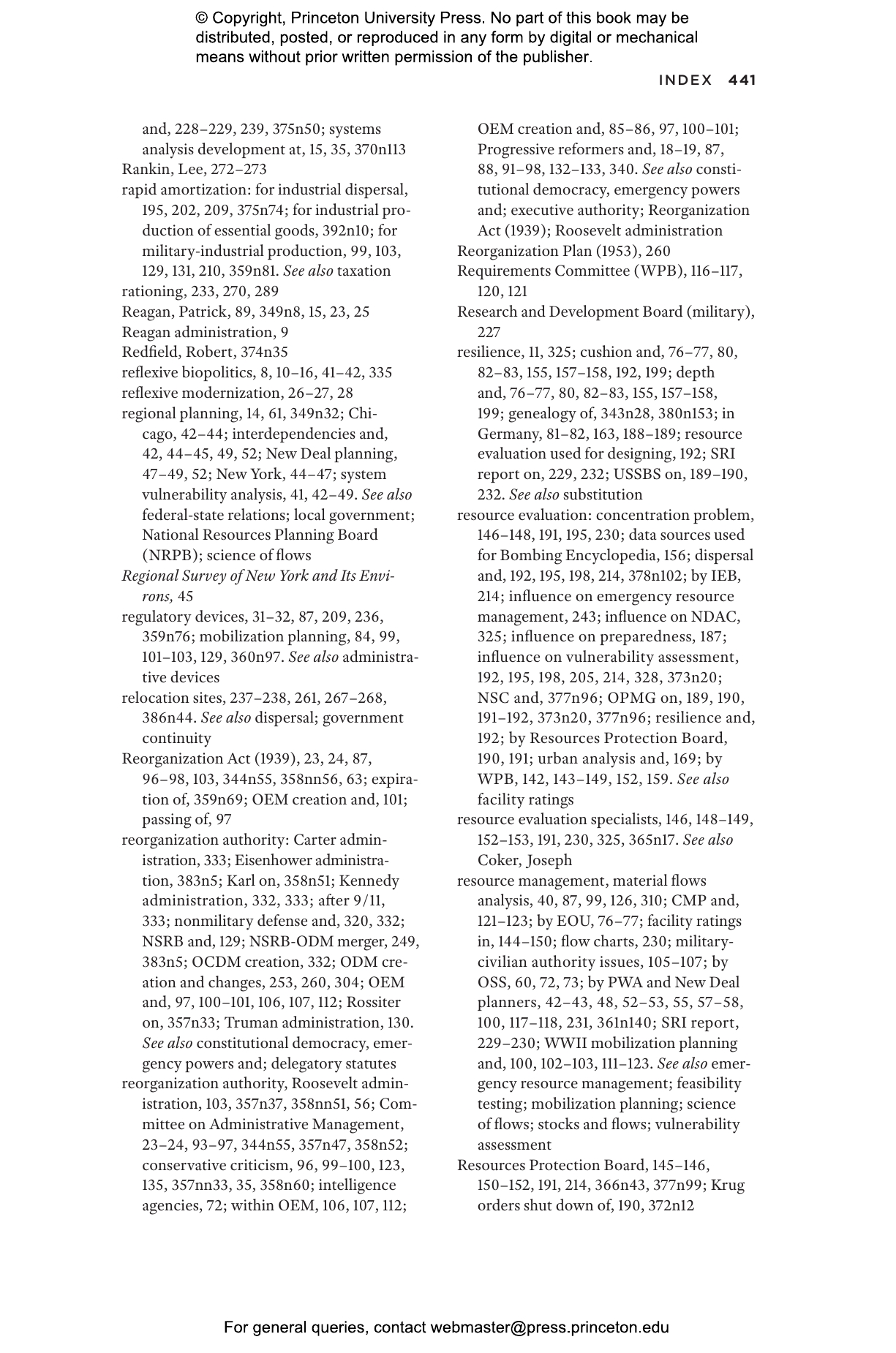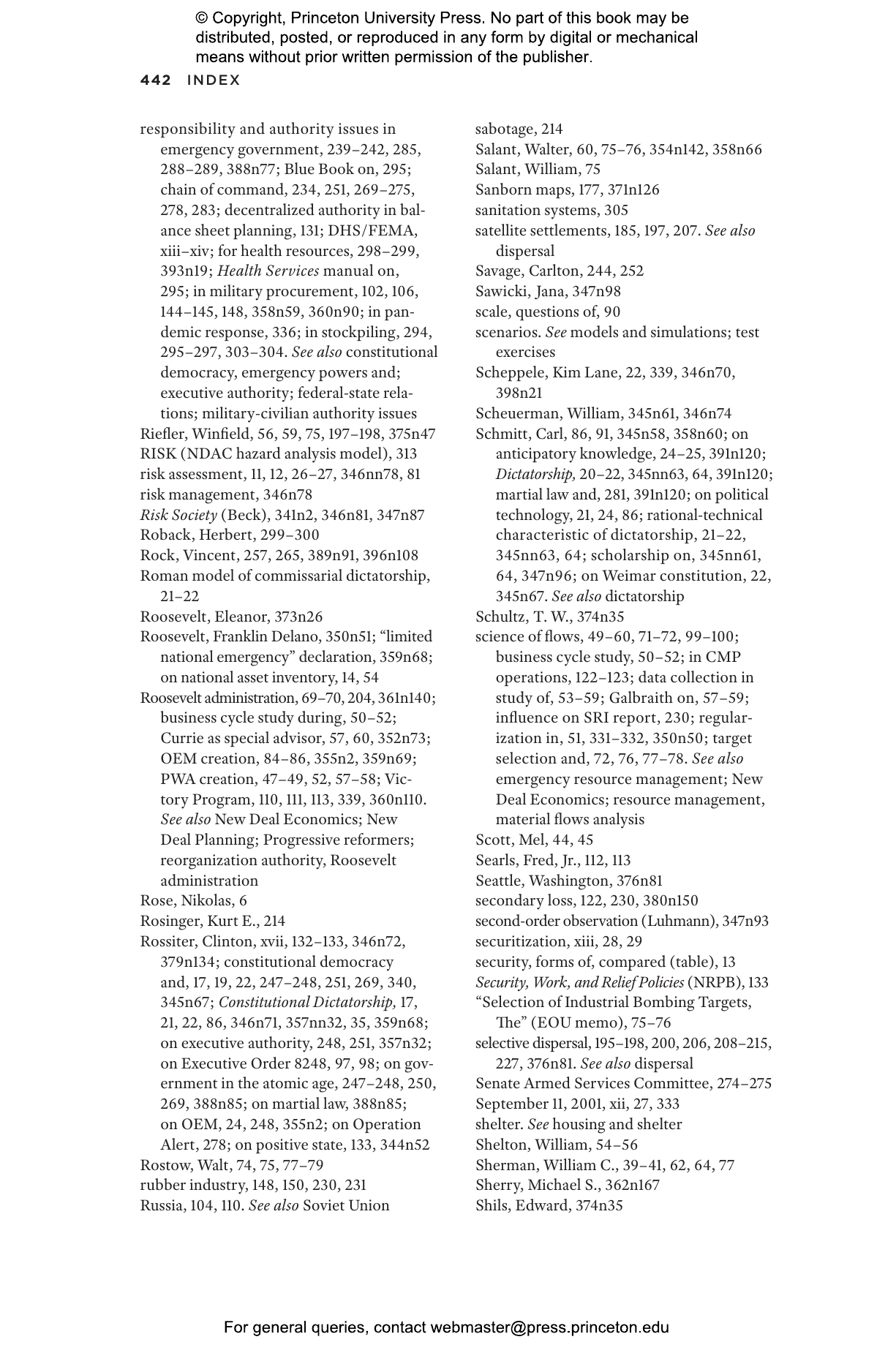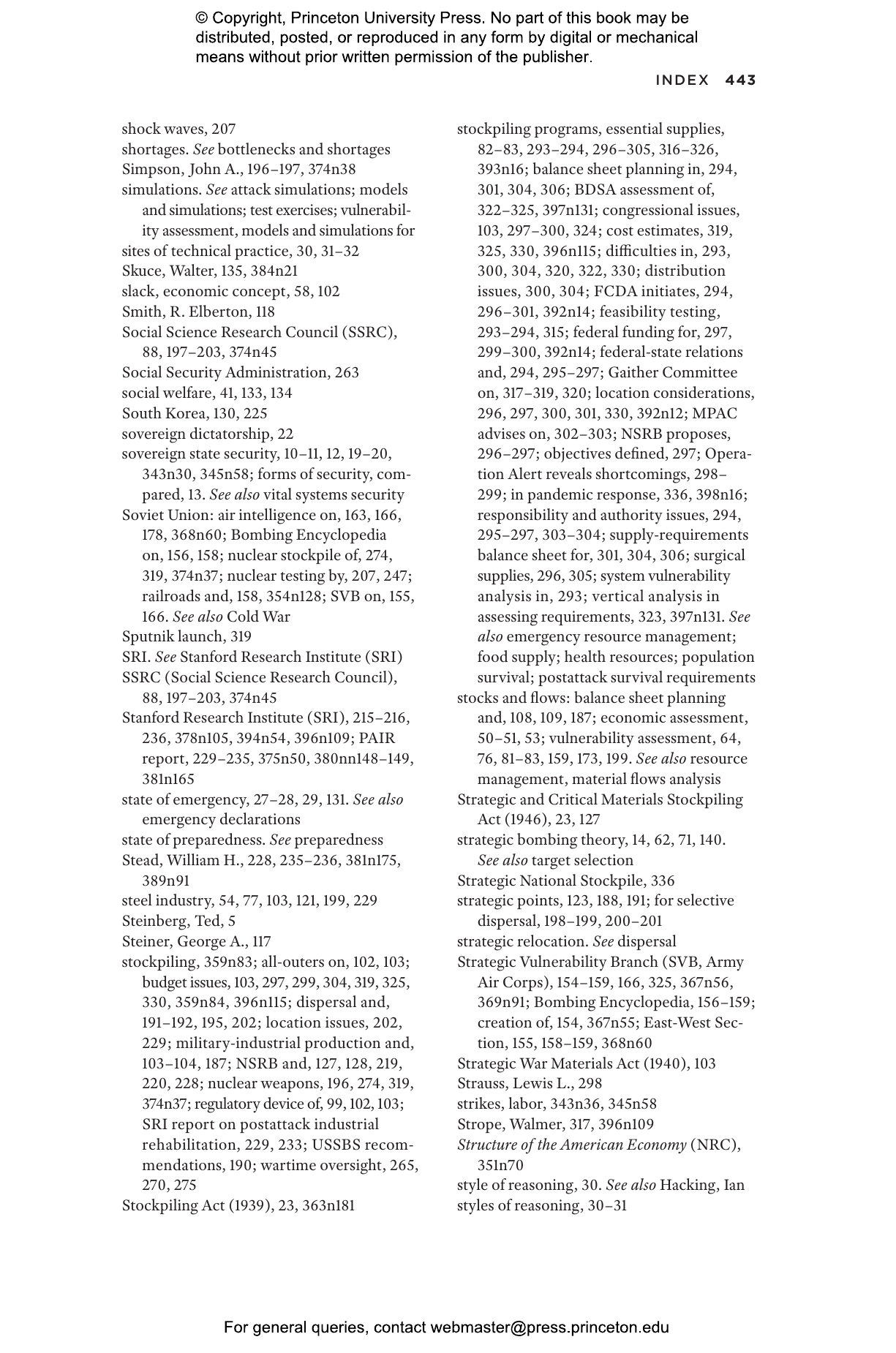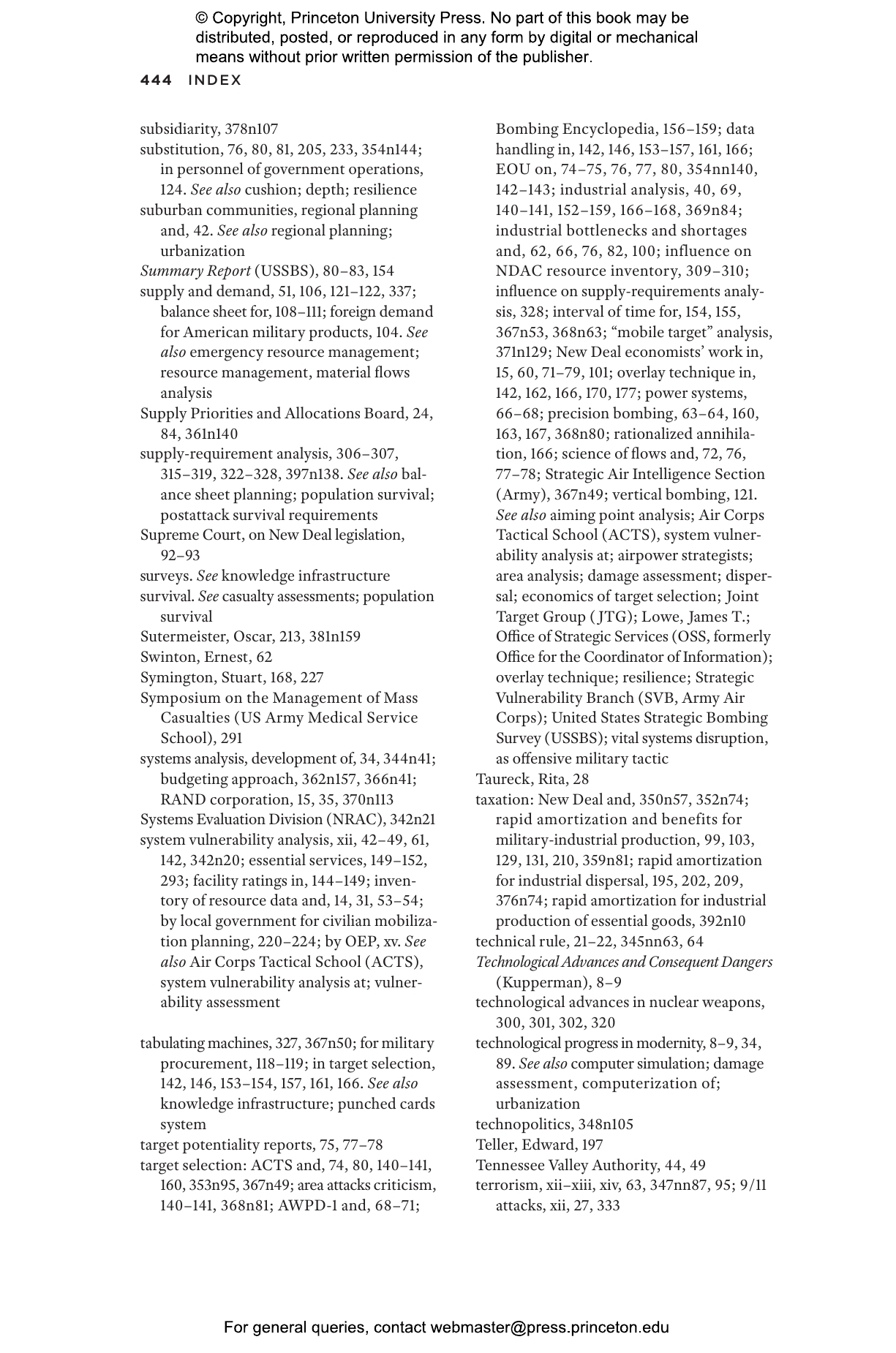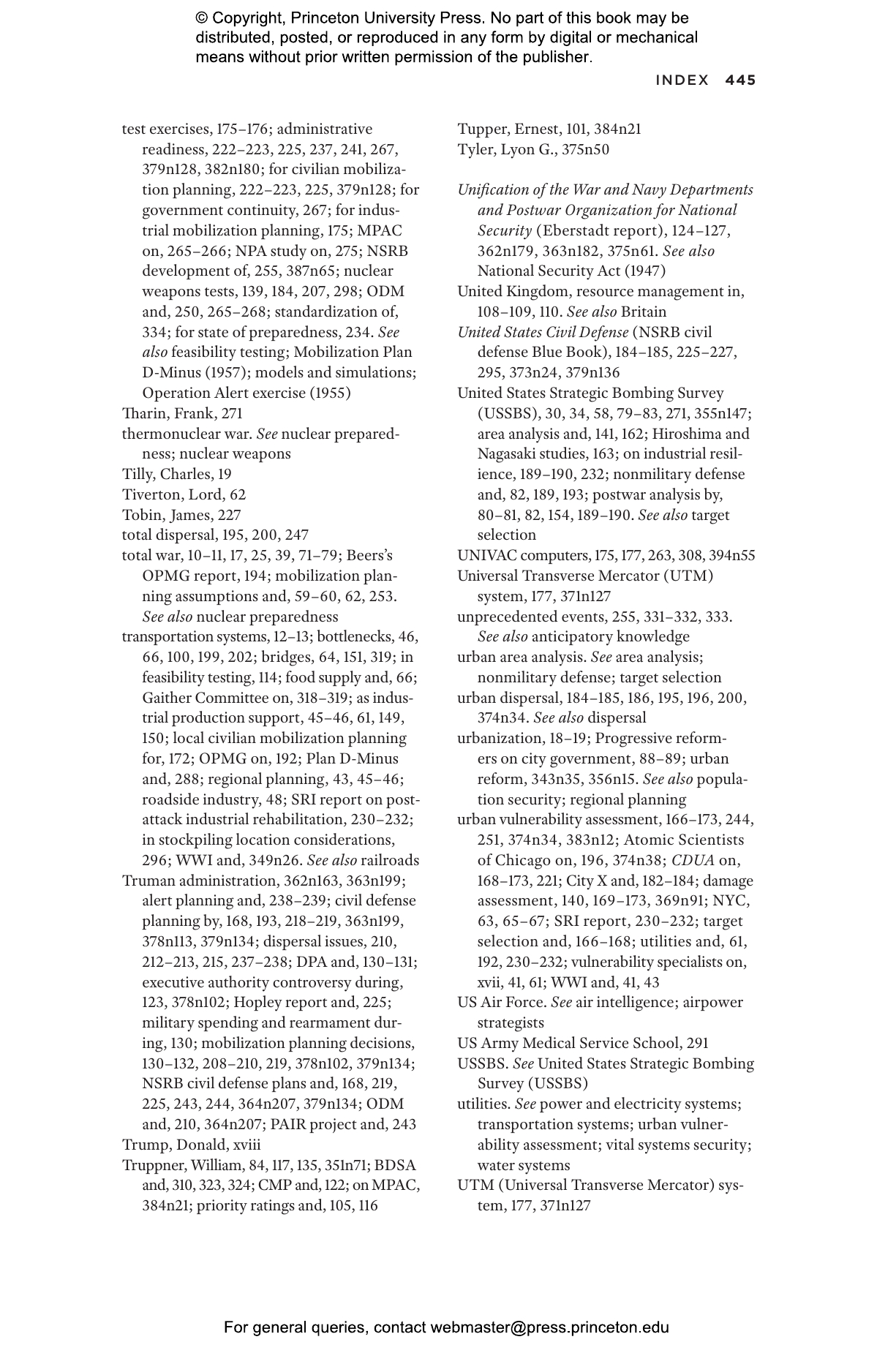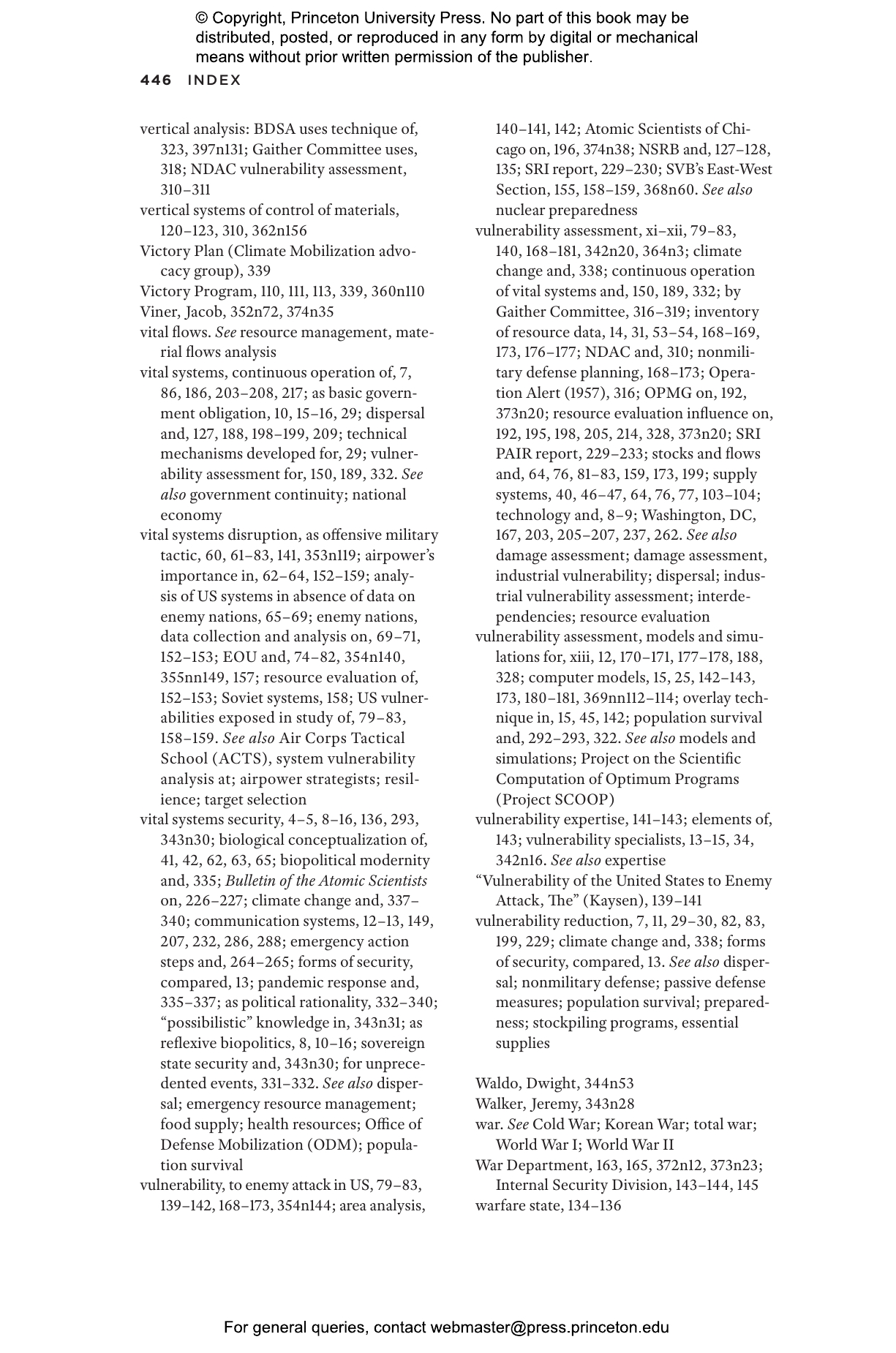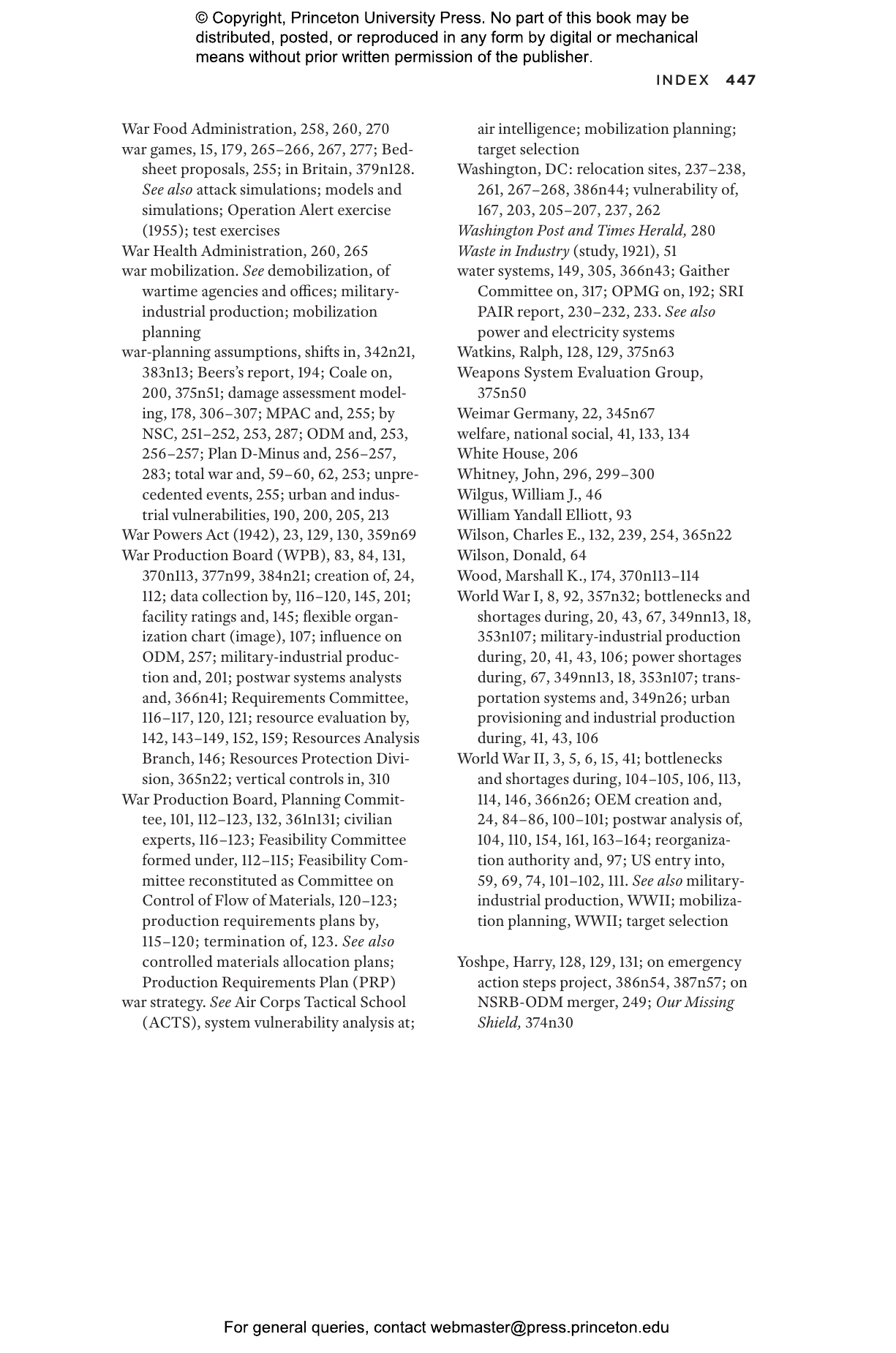From pandemic disease, to the disasters associated with global warming, to cyberattacks, today we face an increasing array of catastrophic threats. It is striking that, despite the diversity of these threats, experts and officials approach them in common terms: as future events that threaten to disrupt the vital, vulnerable systems upon which modern life depends.
The Government of Emergency tells the story of how this now taken-for-granted way of understanding and managing emergencies arose. Amid the Great Depression, World War II, and the Cold War, an array of experts and officials working in obscure government offices developed a new understanding of the nation as a complex of vital, vulnerable systems. They invented technical and administrative devices to mitigate the nation’s vulnerability, and organized a distinctive form of emergency government that would make it possible to prepare for and manage potentially catastrophic events.
Through these conceptual and technical inventions, Stephen Collier and Andrew Lakoff argue, vulnerability was defined as a particular kind of problem, one that continues to structure the approach of experts, officials, and policymakers to future emergencies.
"A scholarly tour de force. . . . For those seeking specialization in the anthropology of crises, disasters, and emergencies, this book is required reading."—Roberto E. Barrios, American Anthropologist
"A monumental achievement."—Kathleen Tierney, American Journal of Sociology
"The Government of Emergency is a thrilling intellectual history . . . [and] an important contribution to a growing line of scholarship that critically approaches the concept of ‘disaster’ itself."—Ryan Hagen, The British Journal of Sociology
"A must-read for scholars interested in emergencies, infrastructure, security, STS, expertise and political anthropology of the contemporary."—Asya Karaseva, Social Anthropology
“The Government of Emergency is a truly compelling account of the consolidation of a new normative regime of government, one in which vital systems security is a permanent function of the everyday operations of the state. This book is a must-read for our understanding and appreciation of the governmental obligation to protect and sustain life, a crucial insight in this time of global pandemic.”—Janet Roitman, author of Anti-Crisis
“This original, eye-opening book provides indispensable background to the hopeless, fallible, yet crucial work of coping with modernity’s reflexive risks. Collier and Lakoff unearth the obscure federal agencies that gamed out survival strategies for America’s essential systems—what we now call 'infrastructures'—during the Great Depression, World War II, and the early Cold War.”—Paul N. Edwards, author of A Vast Machine
“It is now commonplace to say that emergencies are becoming normal, but this was not always so. Collier and Lakoff show how this transition was a matter of redeploying governmental apparatus as well as facing new vulnerabilities. The Government of Emergency is crucial reading for an era of pandemics and climate change, when preparedness is constantly demanded and seldom delivered.”—Craig Calhoun, Arizona State University
“Collier and Lakoff offer new thinking on the ways in which a range of phenomena, from economic shocks to nuclear disaster, became objects of governance and expertise, with consequences for national and urban politics. This lucidly written book brings the history of disaster management to life.”—Marieke de Goede, author of Speculative Security
“Collier and Lakoff explore how the Truman and Eisenhower presidencies shaped planning around infrastructure vulnerability during the Cold War and the eras of emergency management and homeland security that followed. The Government of Emergency offers fresh perspectives on a relatively neglected period in postwar America.”—Patrick Roberts, author of Disasters and the American State: How Politicians, Bureaucrats, and the Public Prepare for the Unexpected
“An important account of the evolution of federal governance in times of emergency. The Government of Emergency is an invaluable origin story of the approach to preparedness that is still largely used today.”—Samantha Montano, author of Disasterology: Dispatches from the Frontlines of the Climate Crisis


